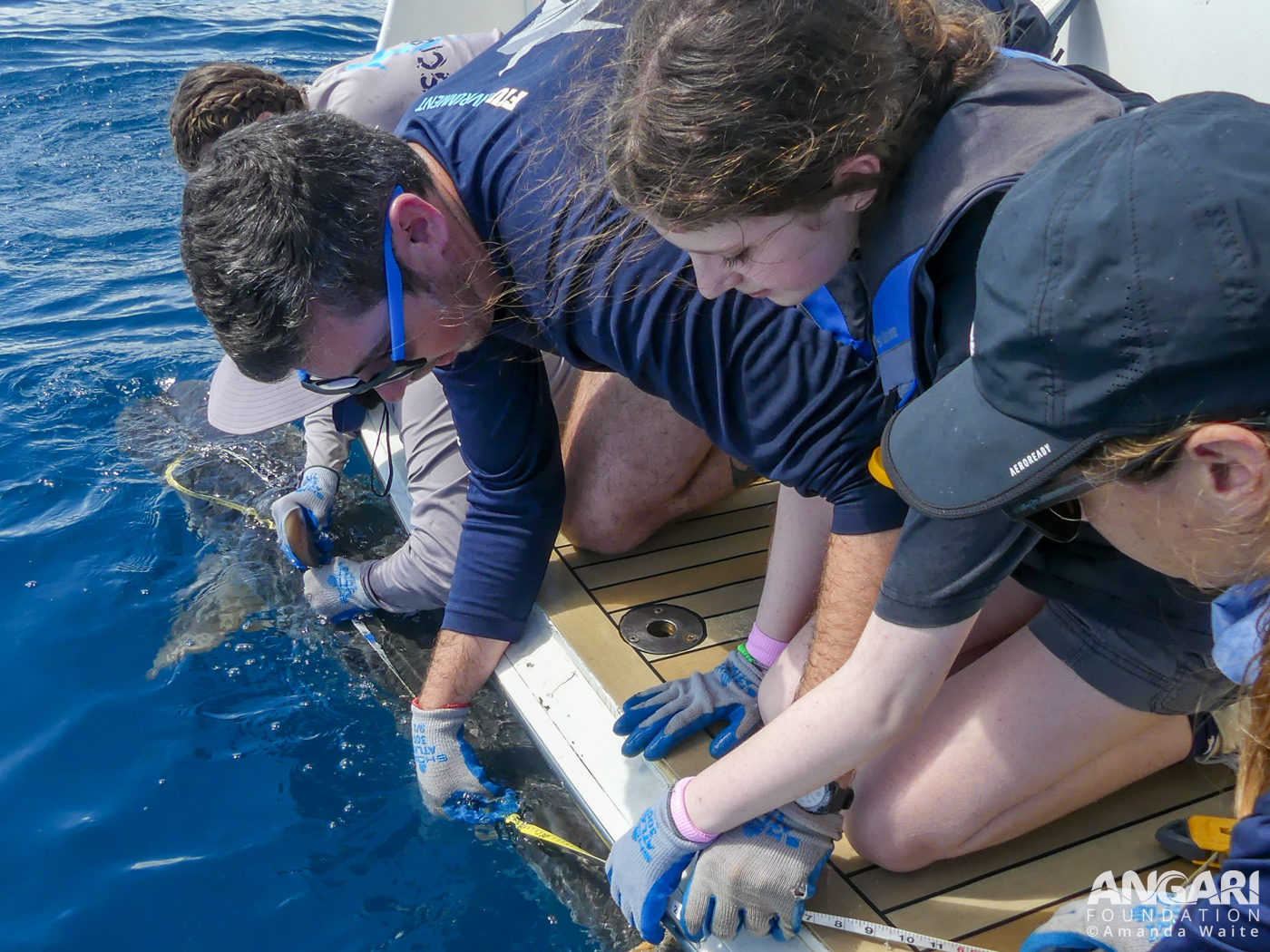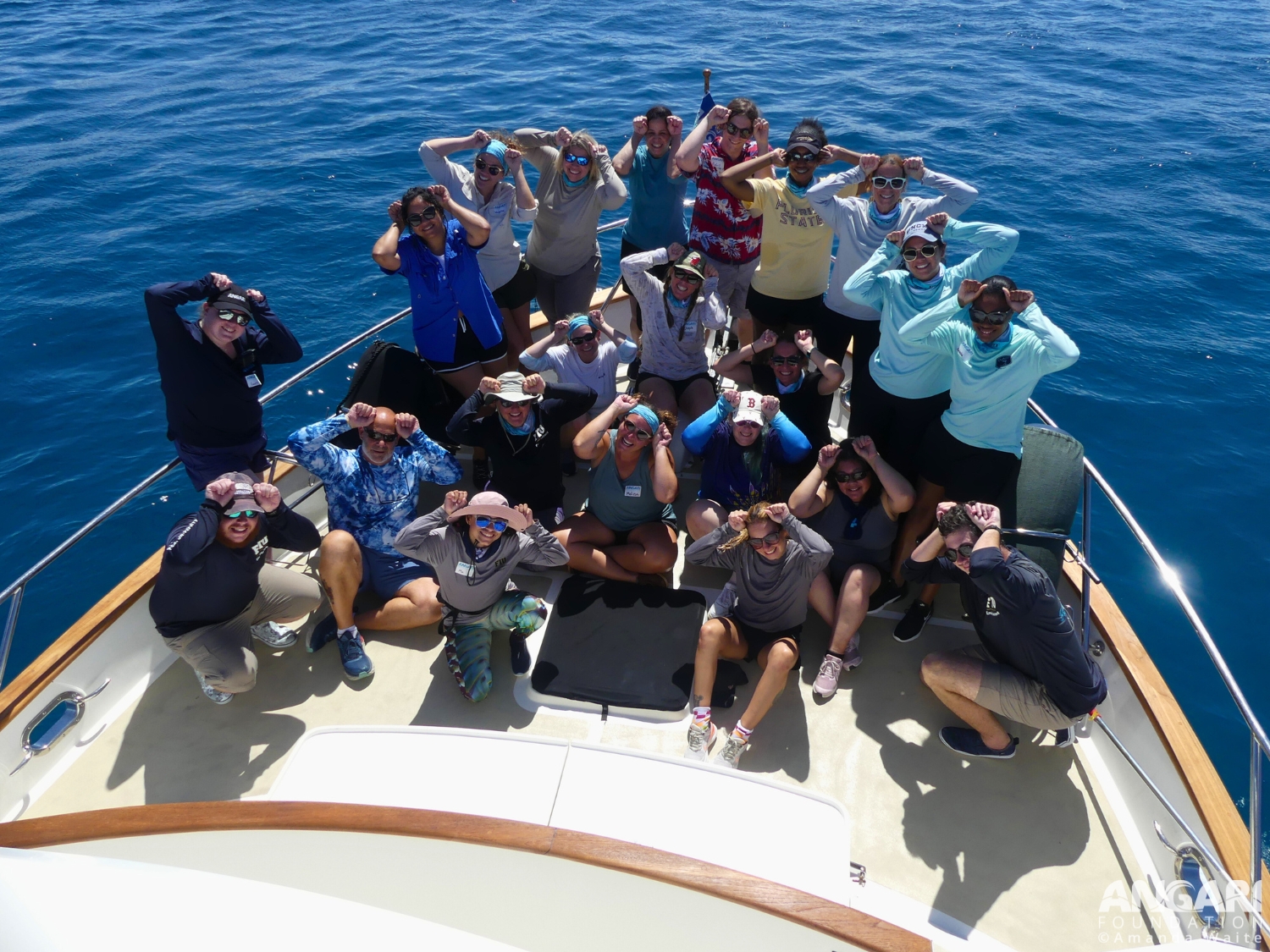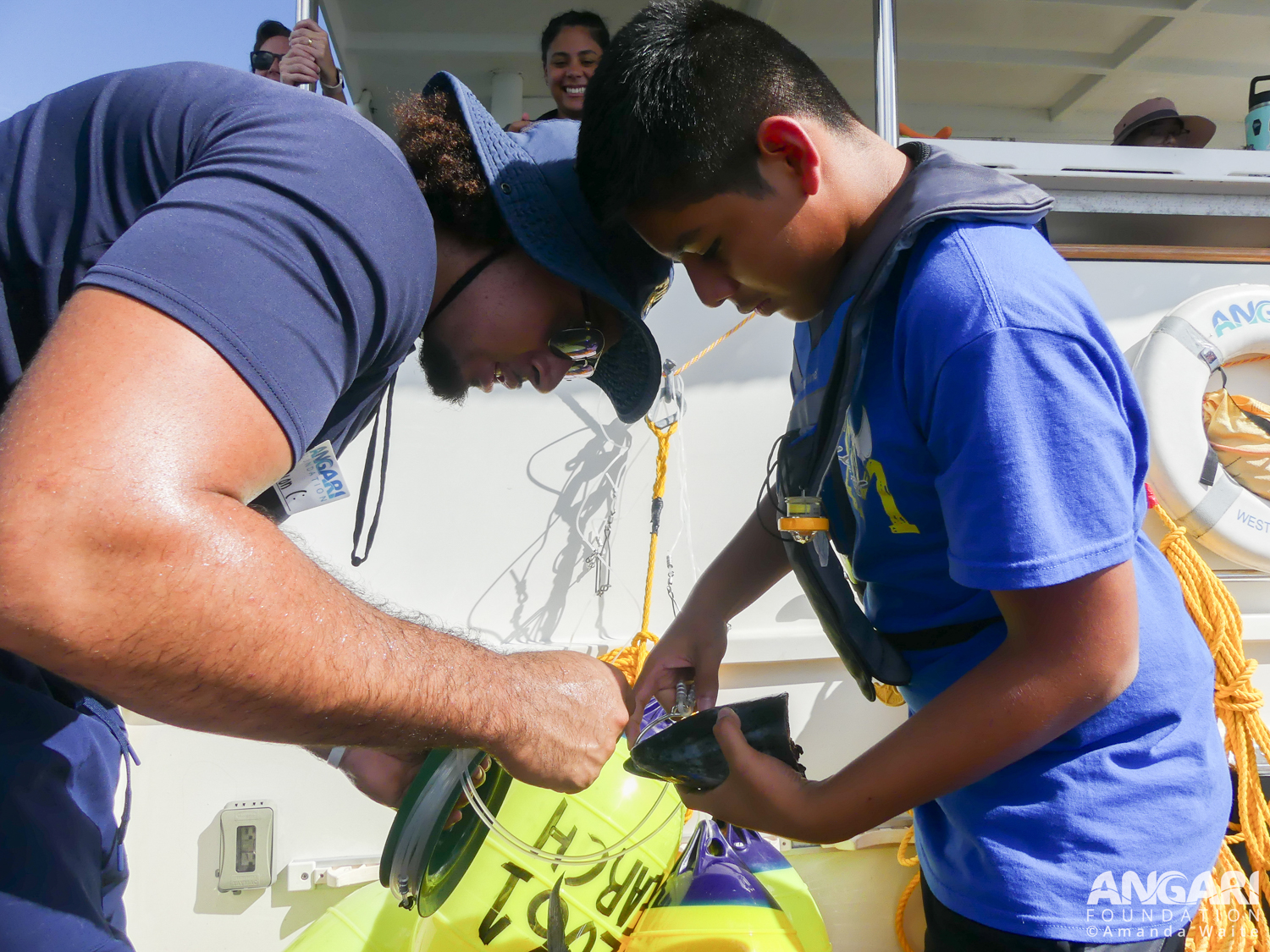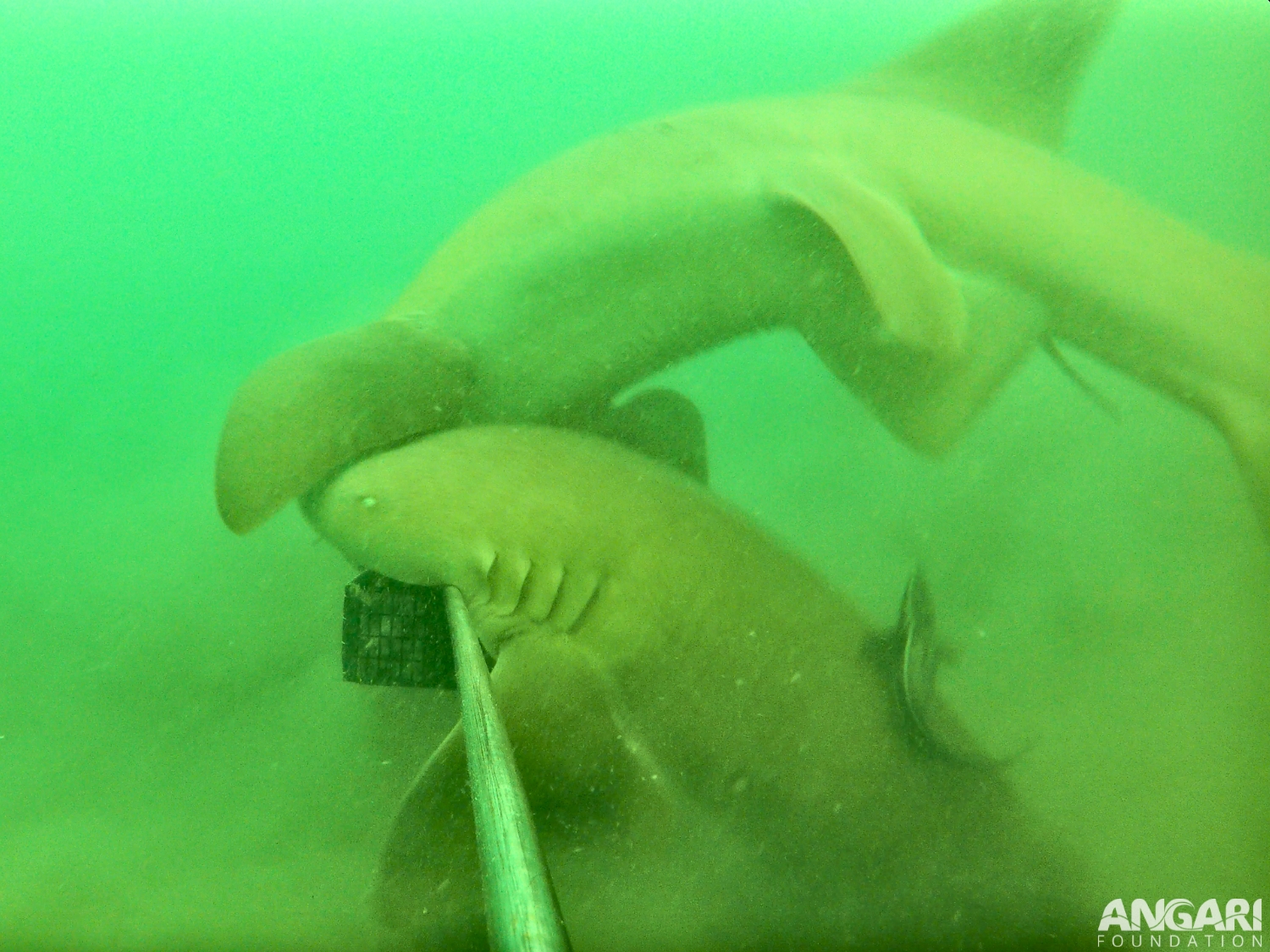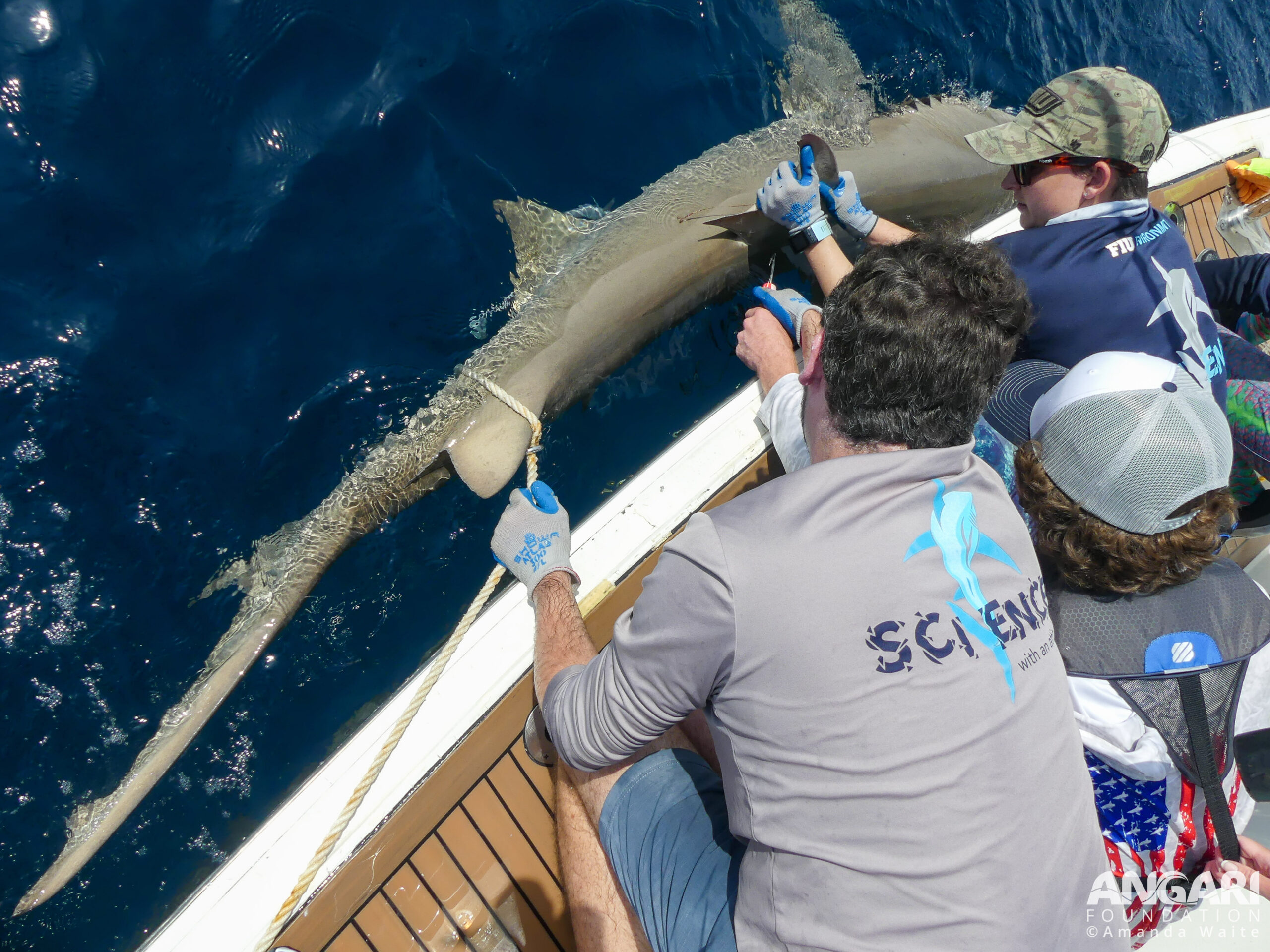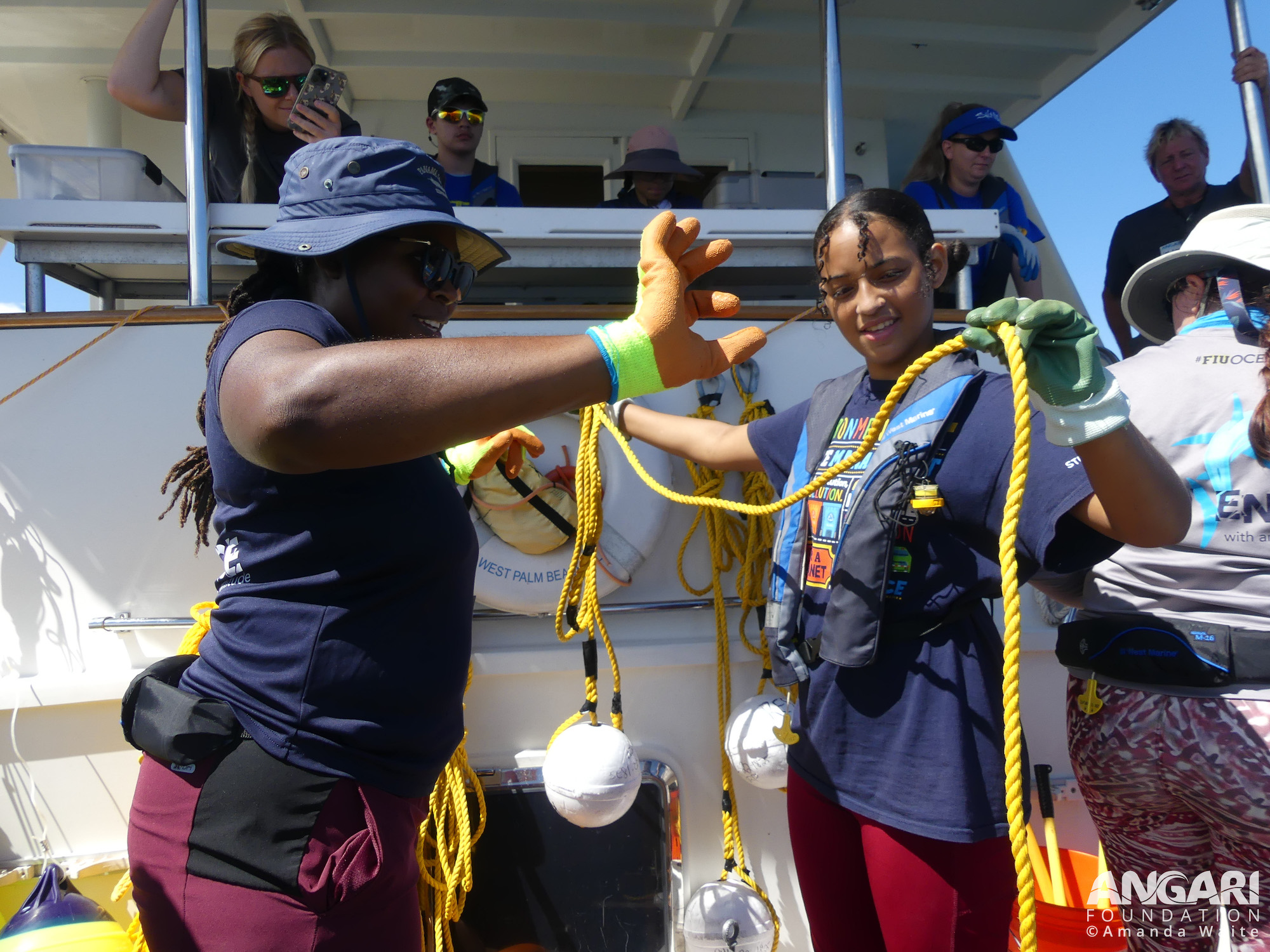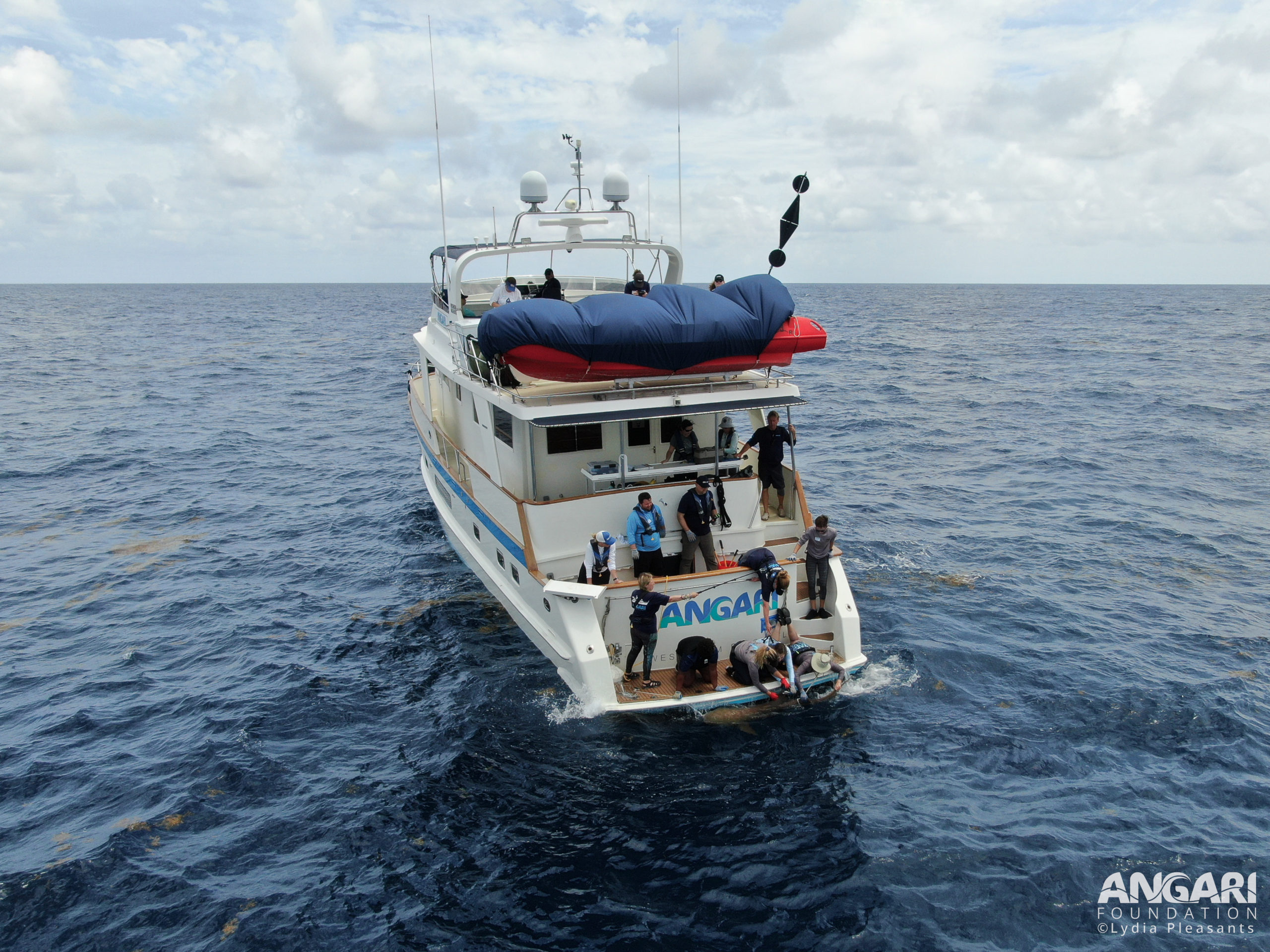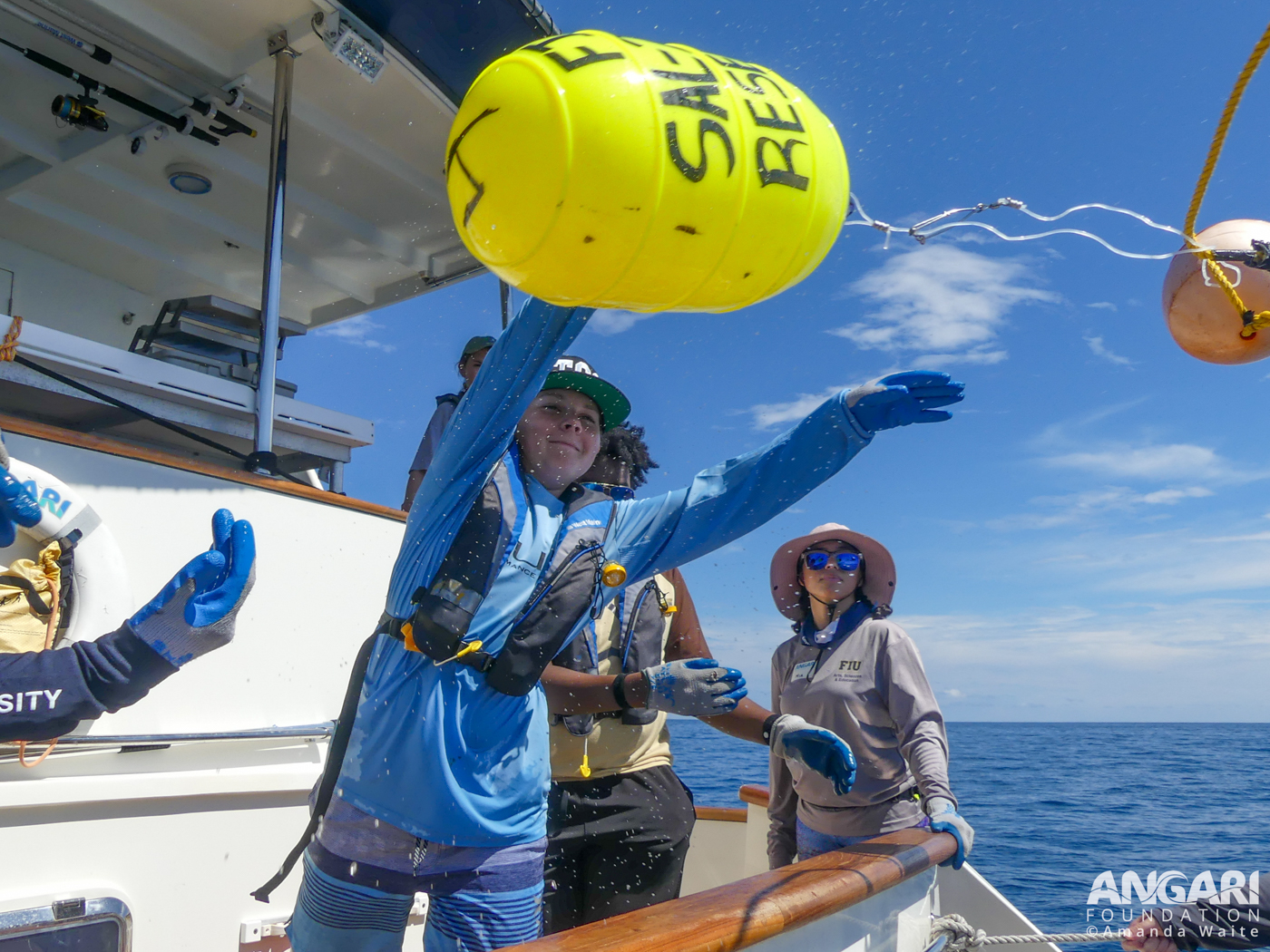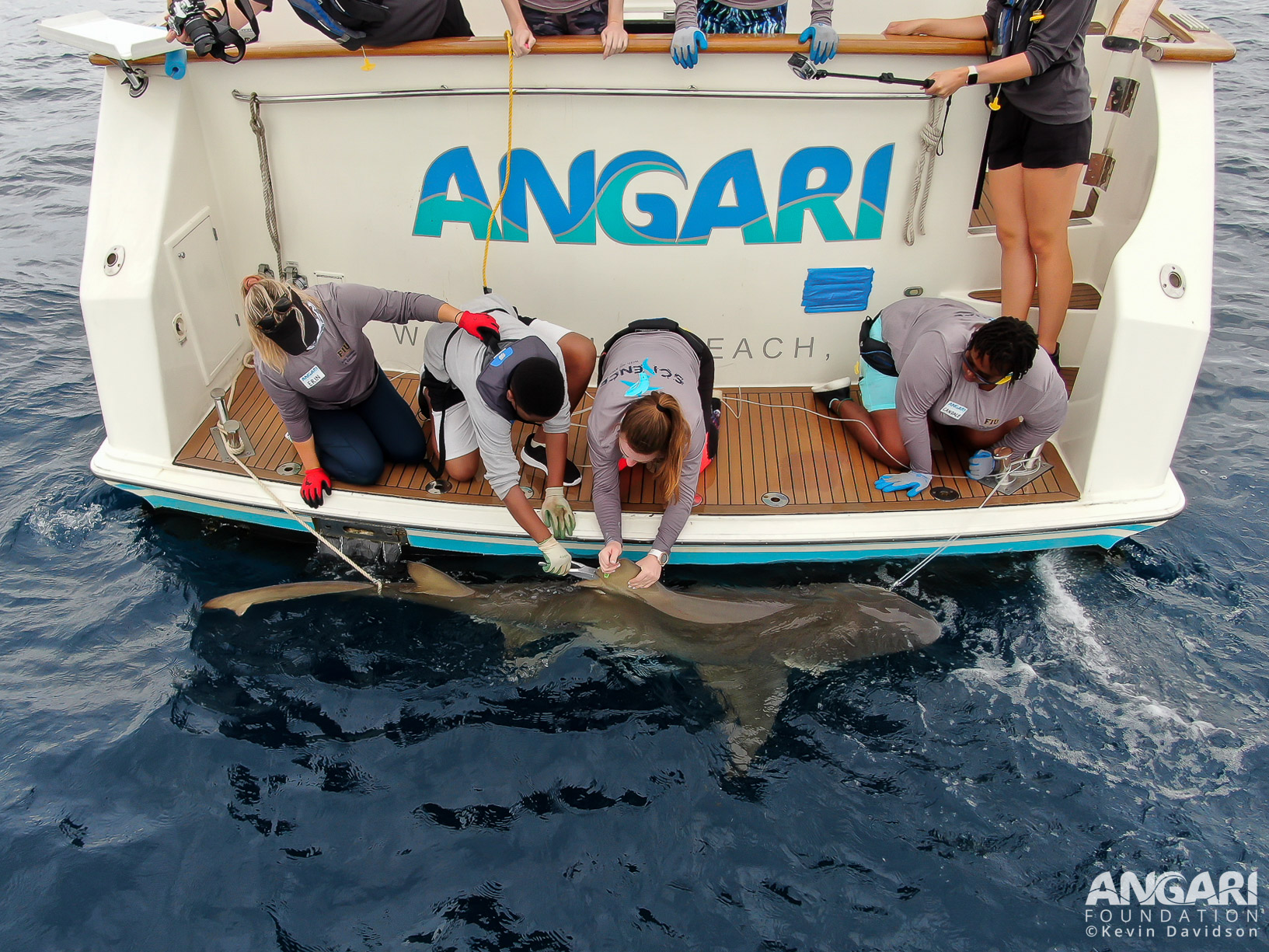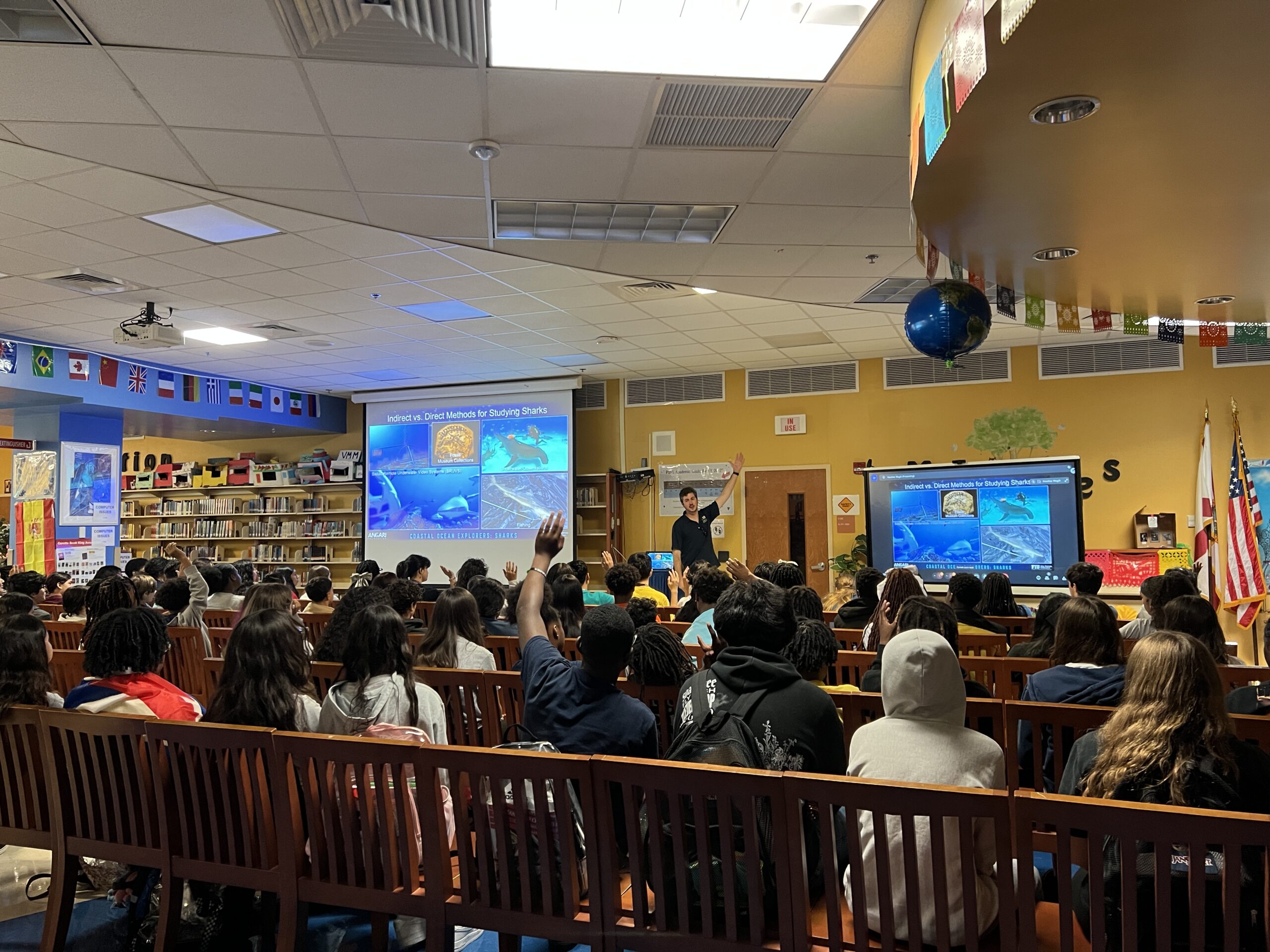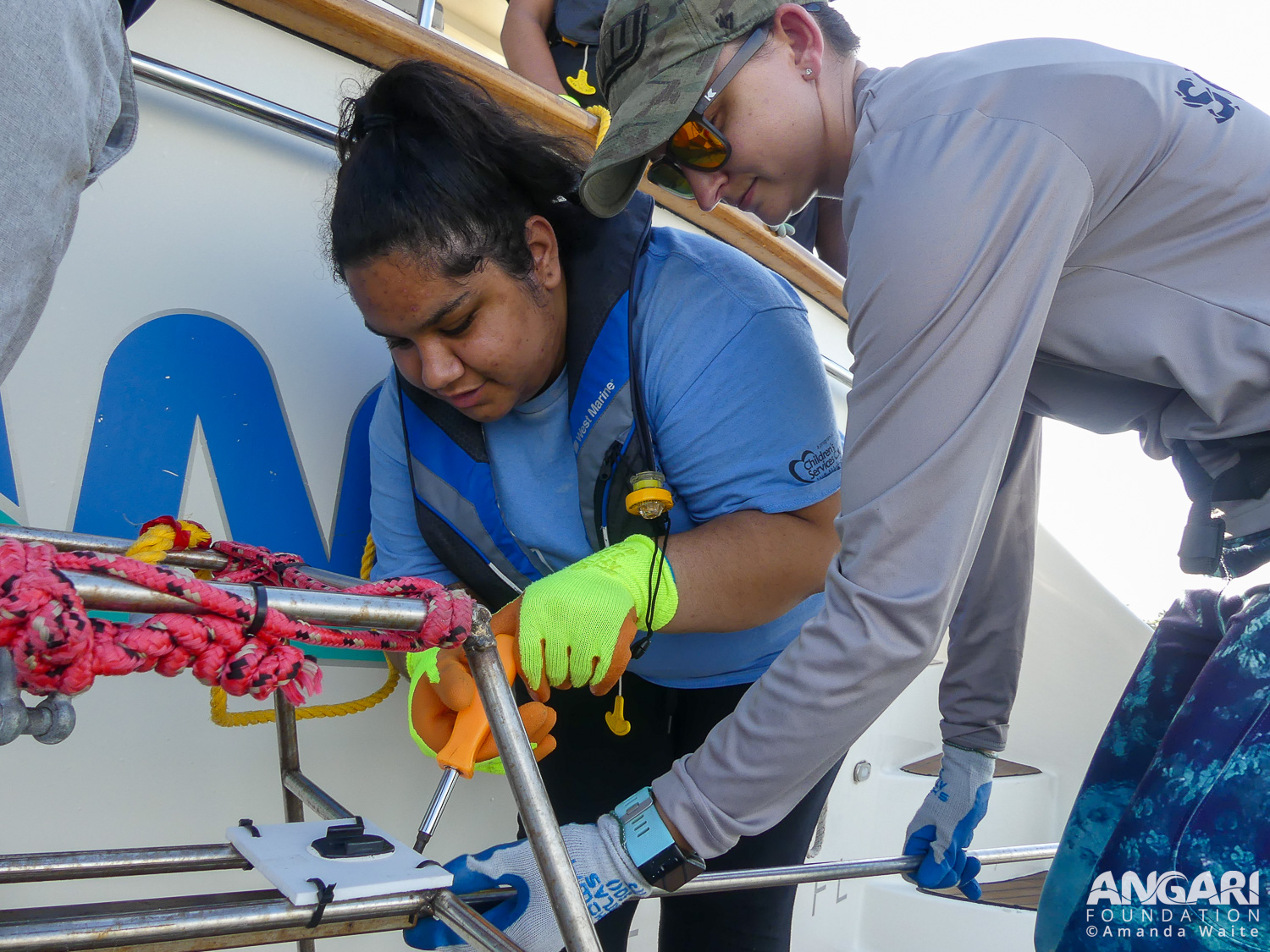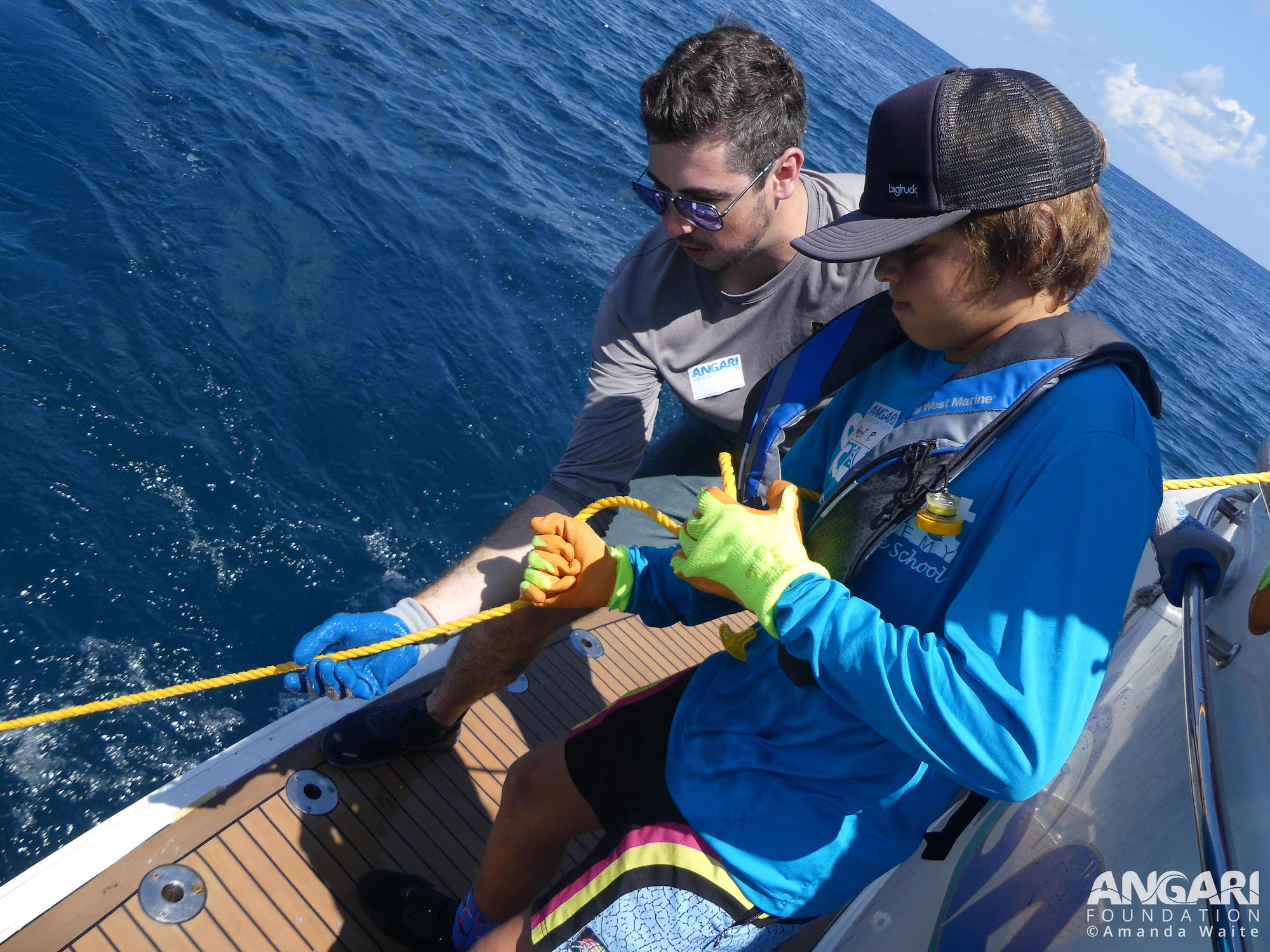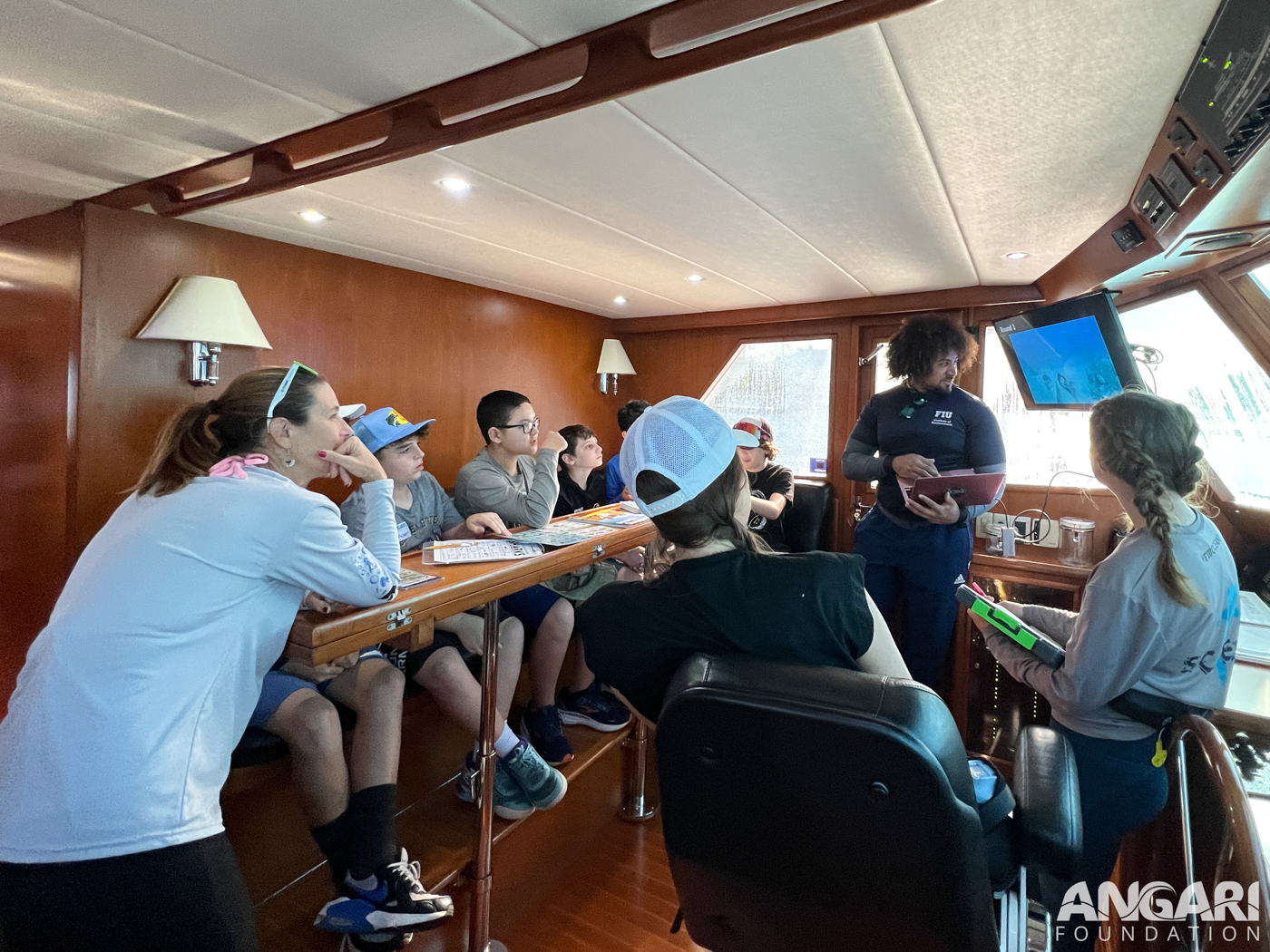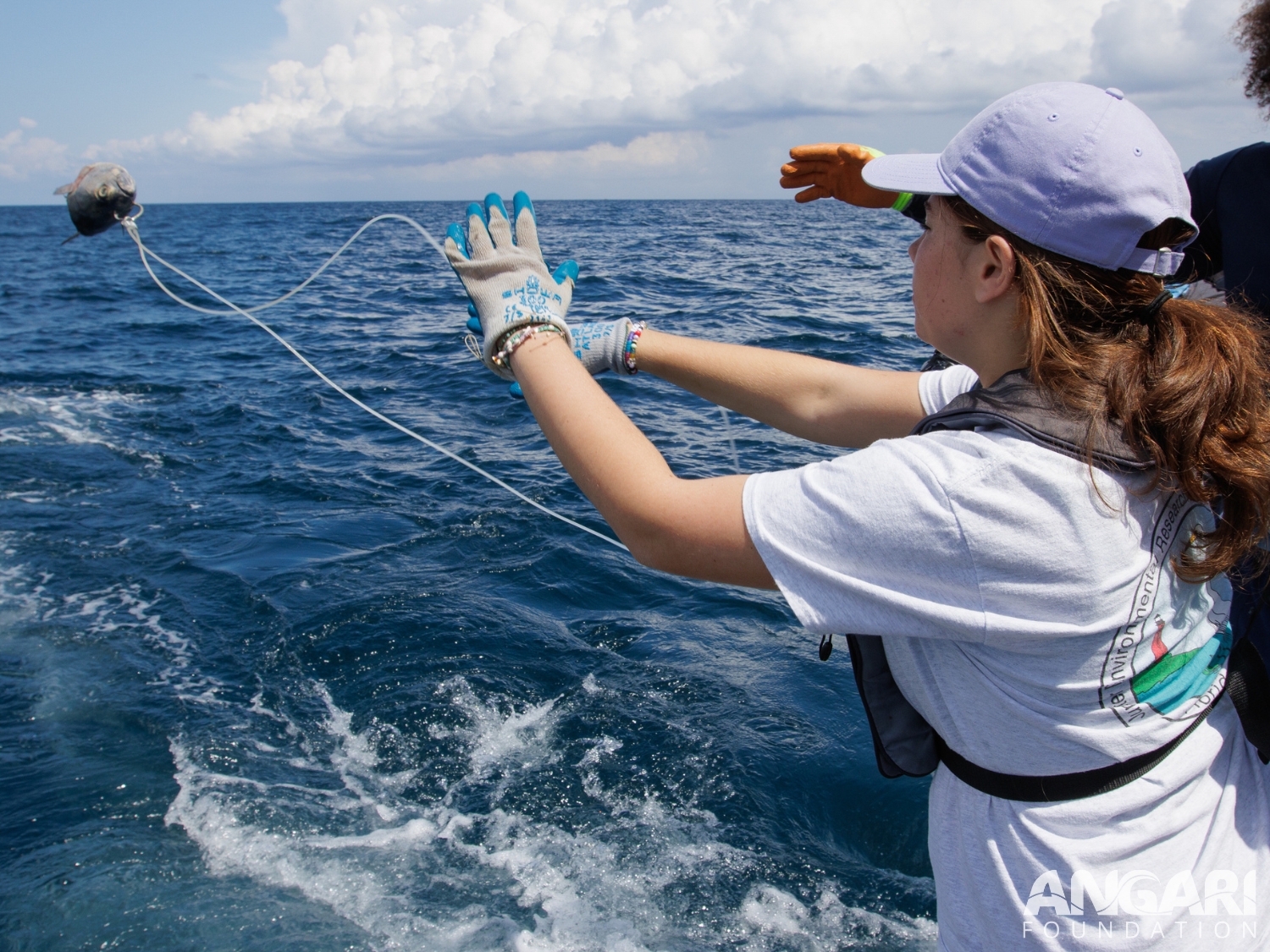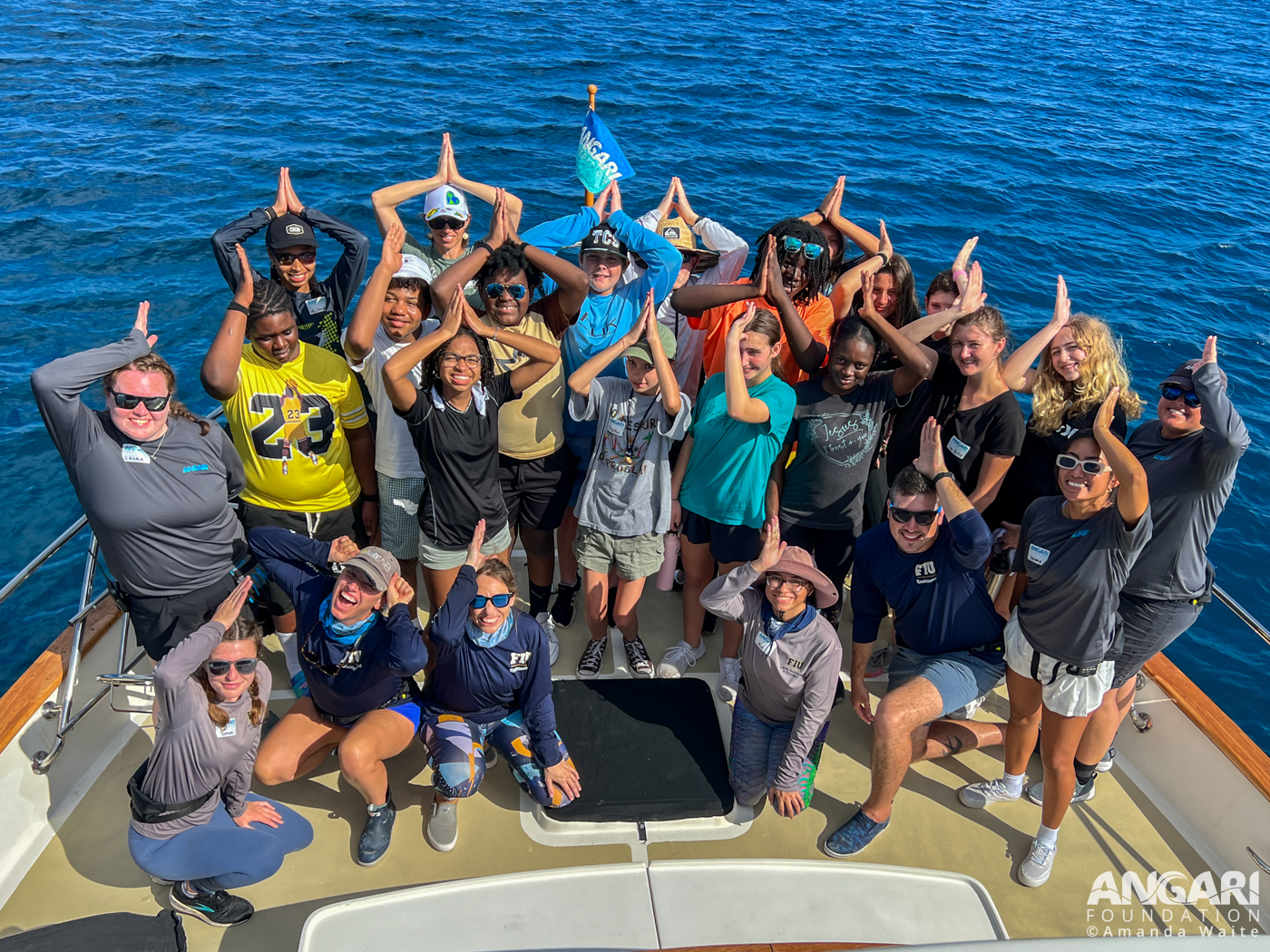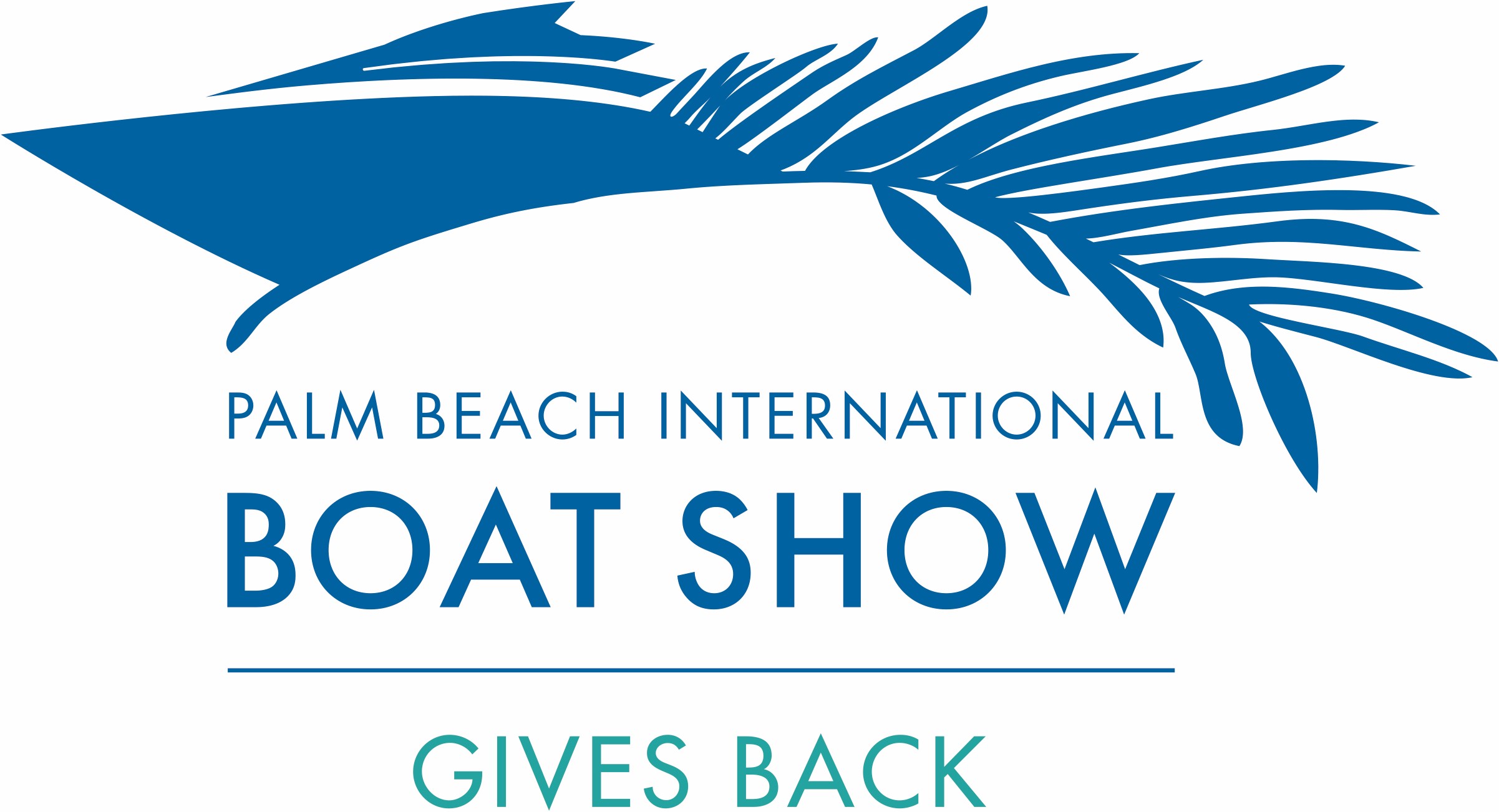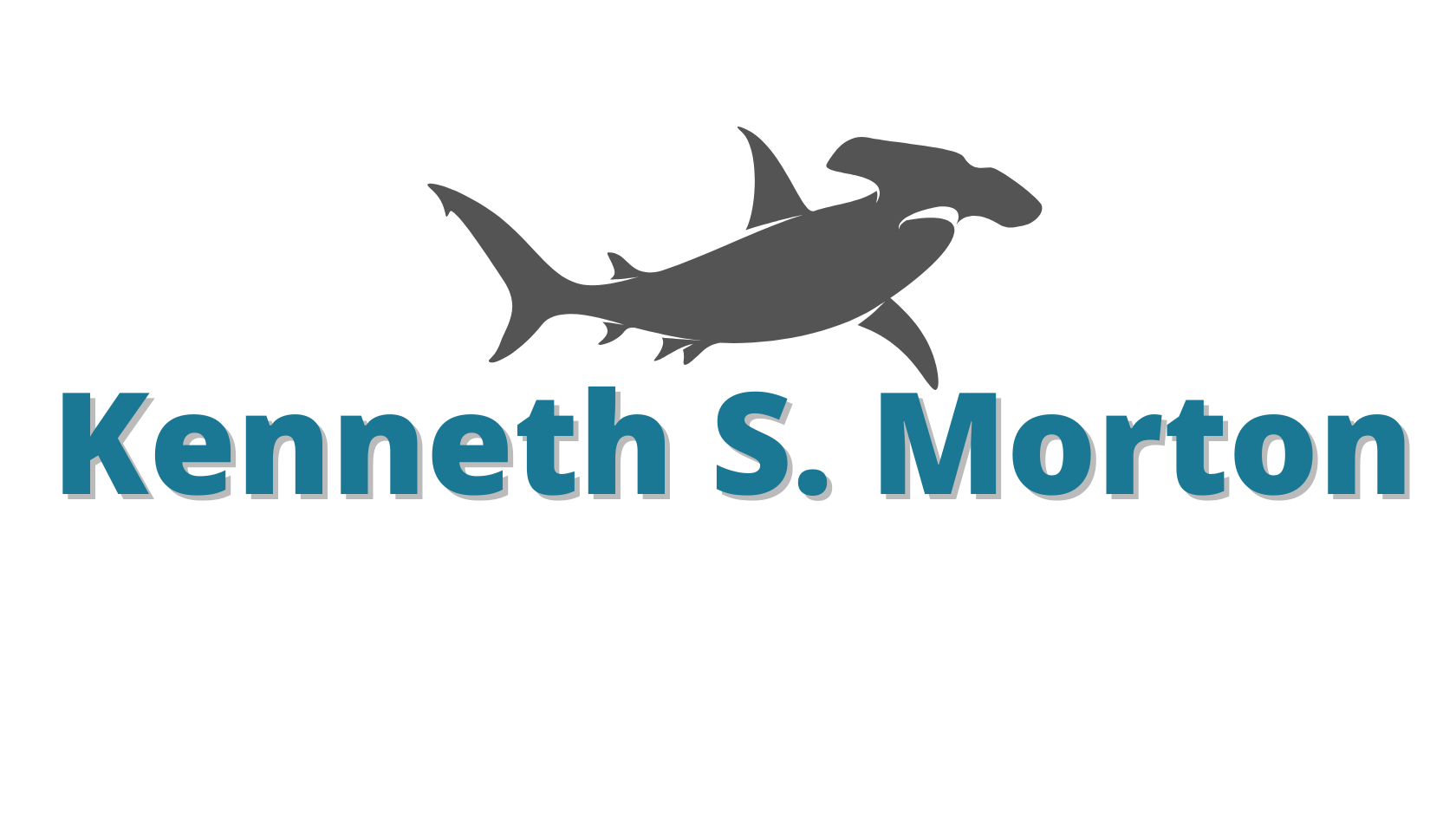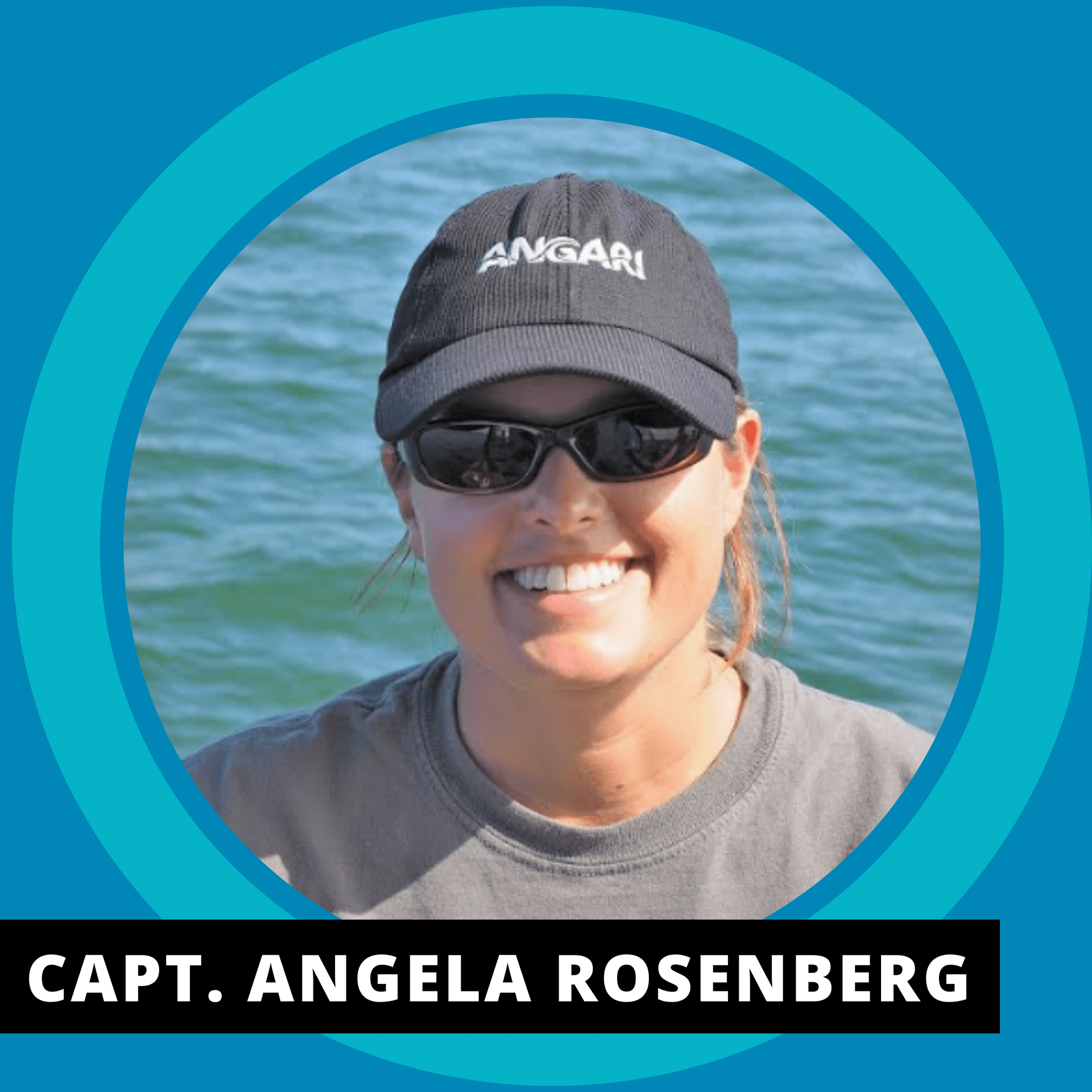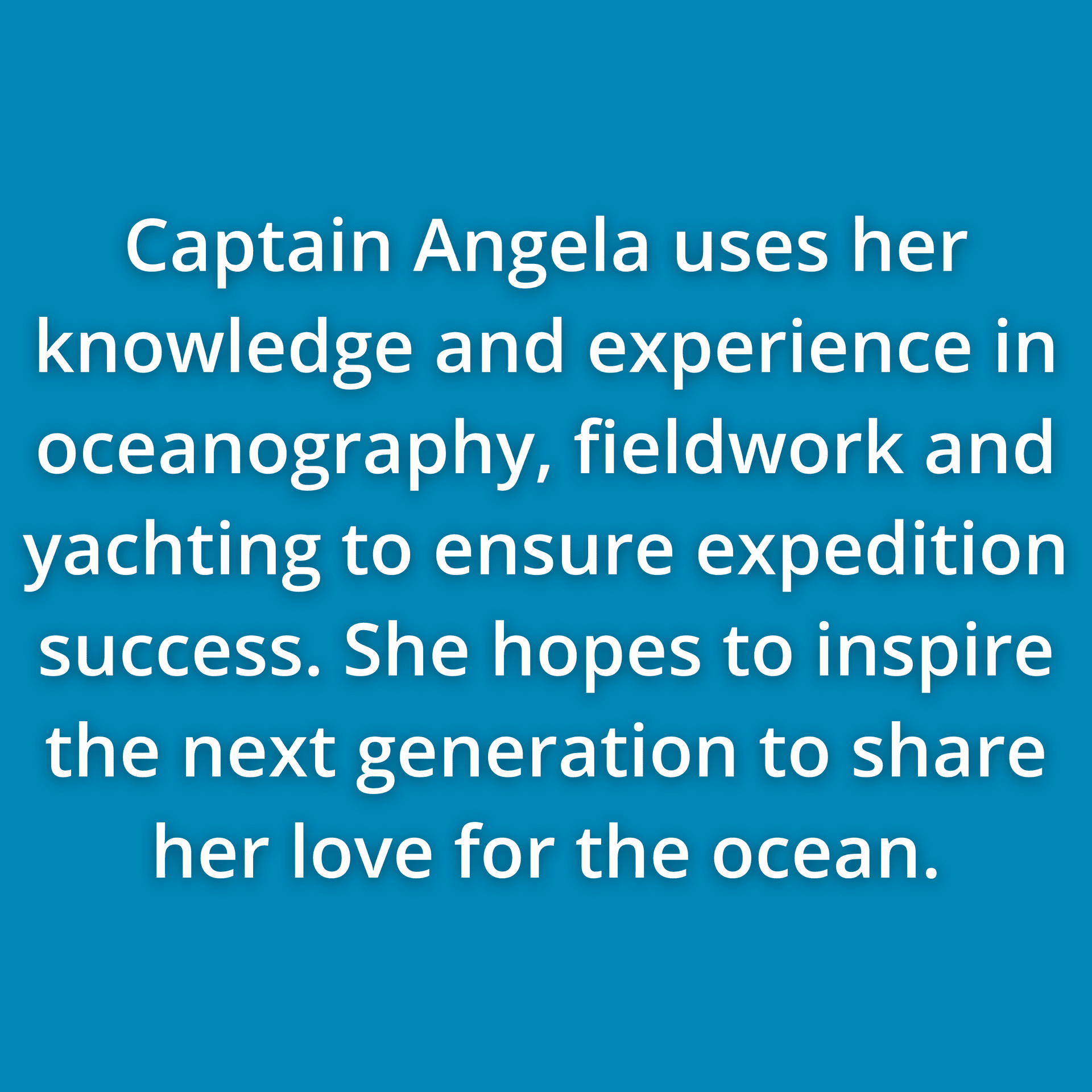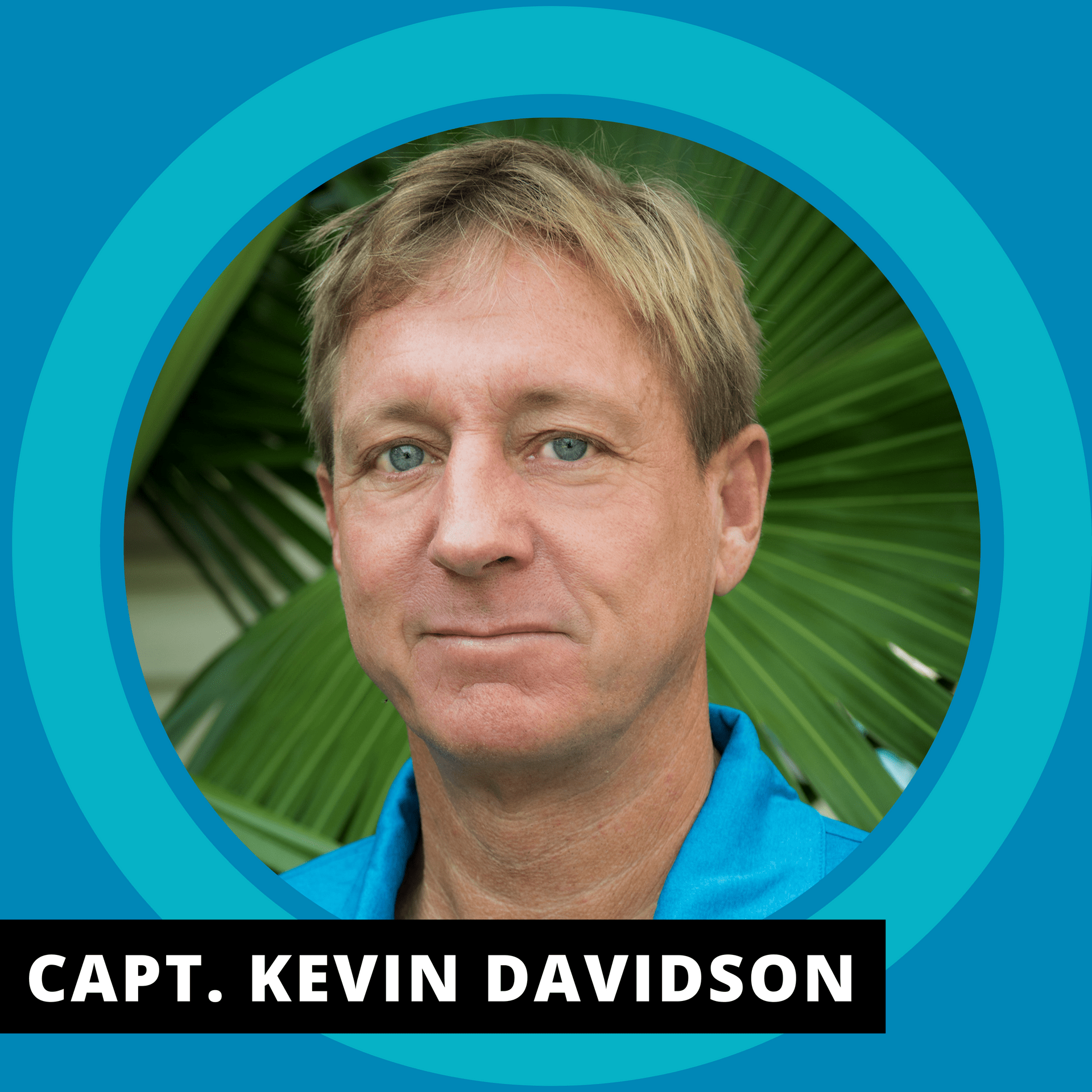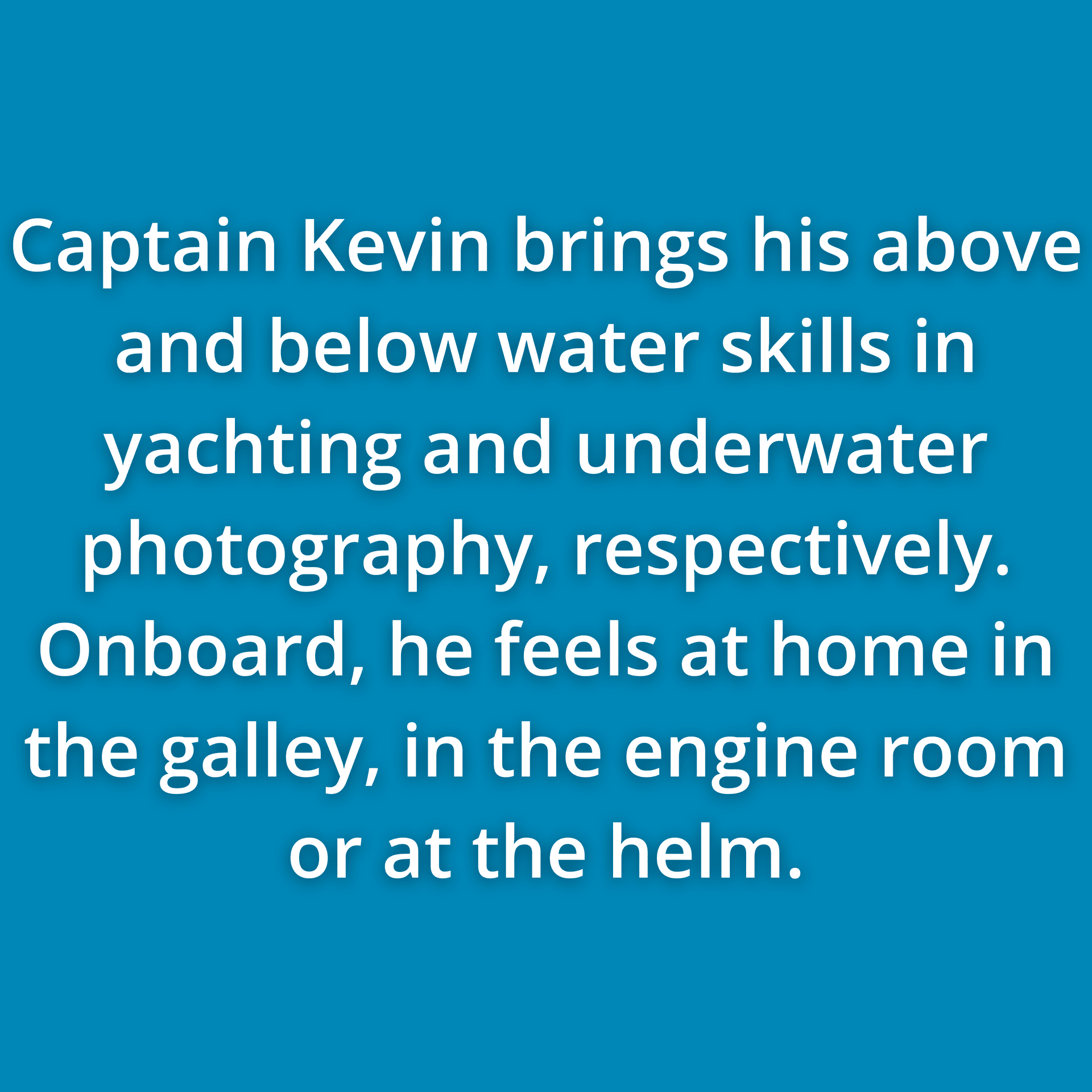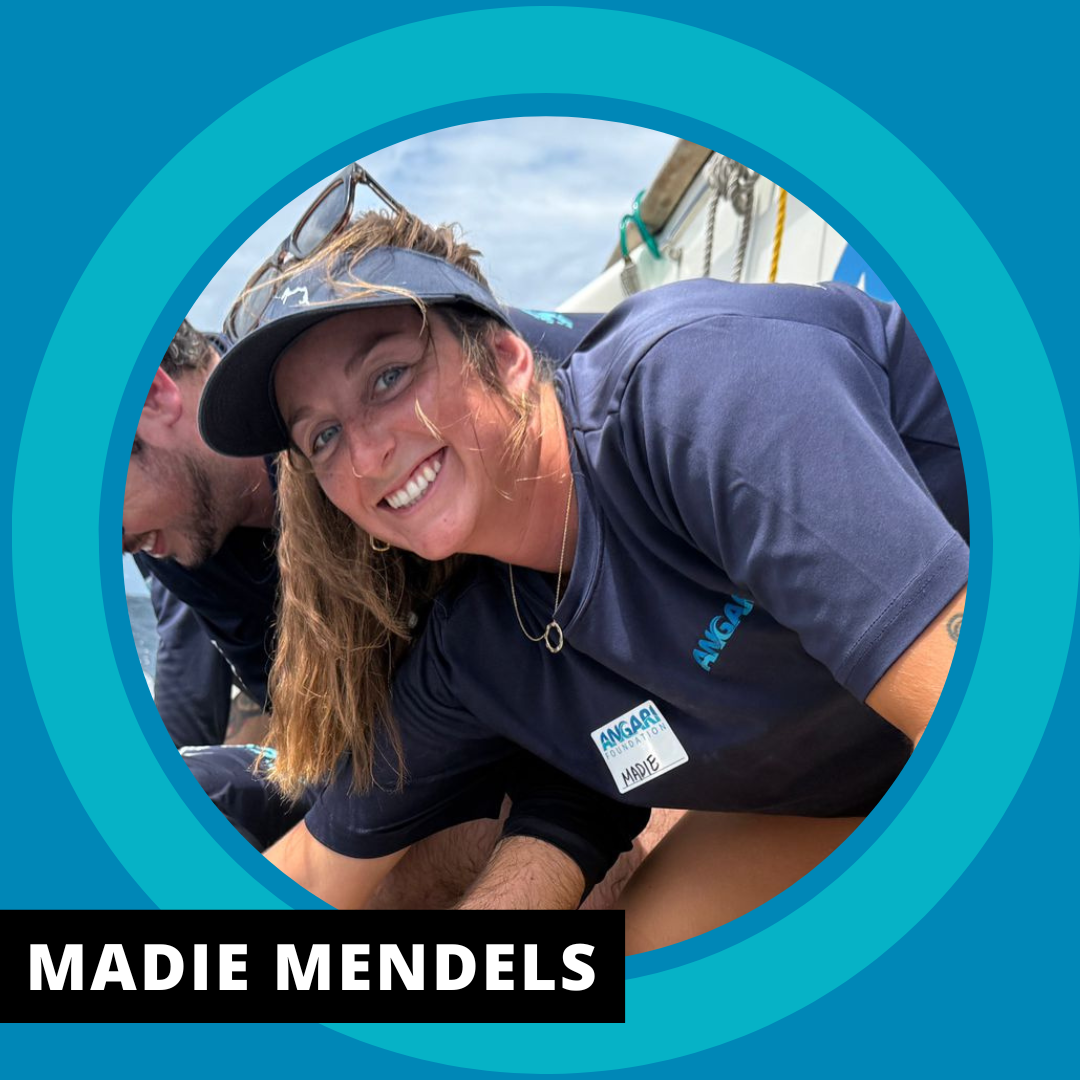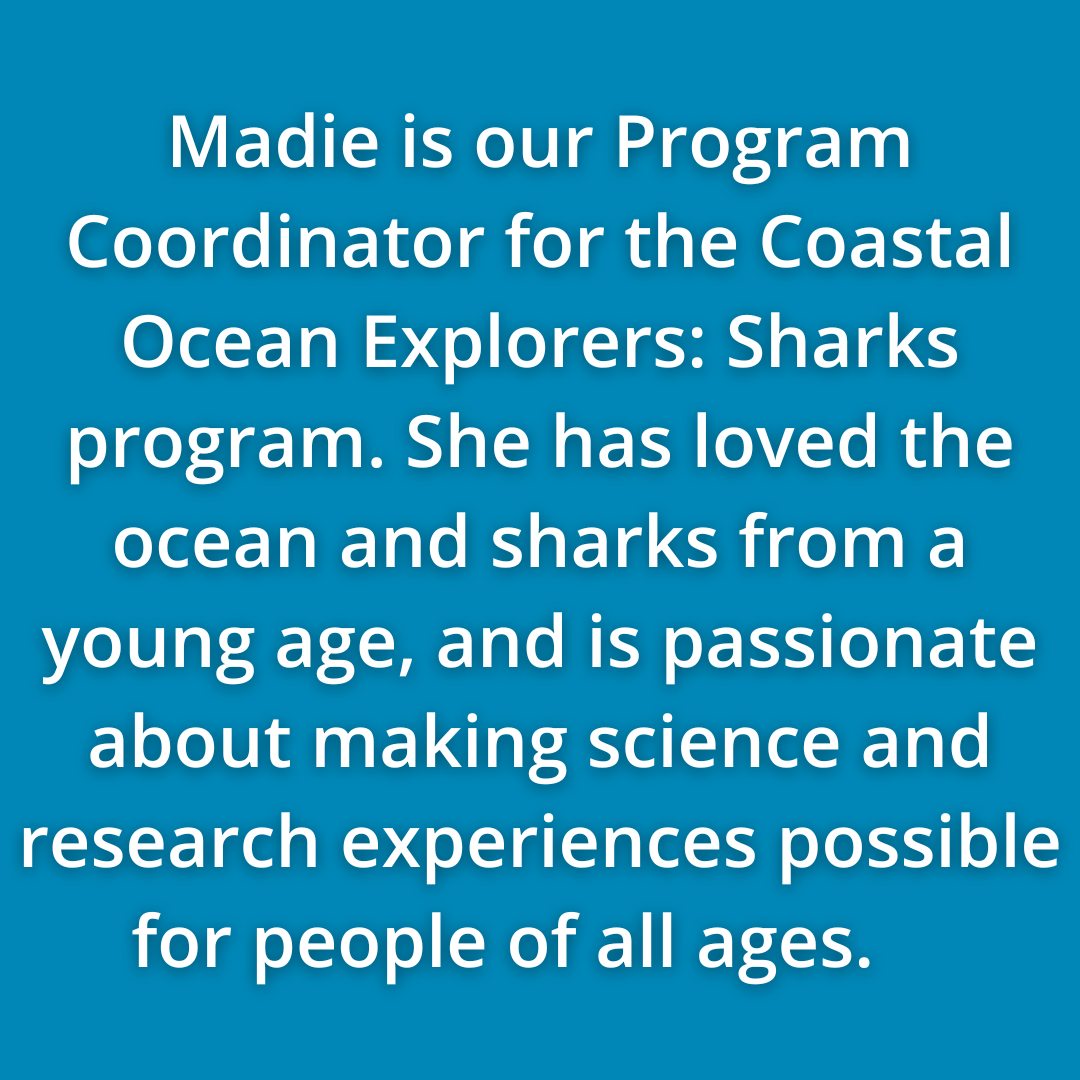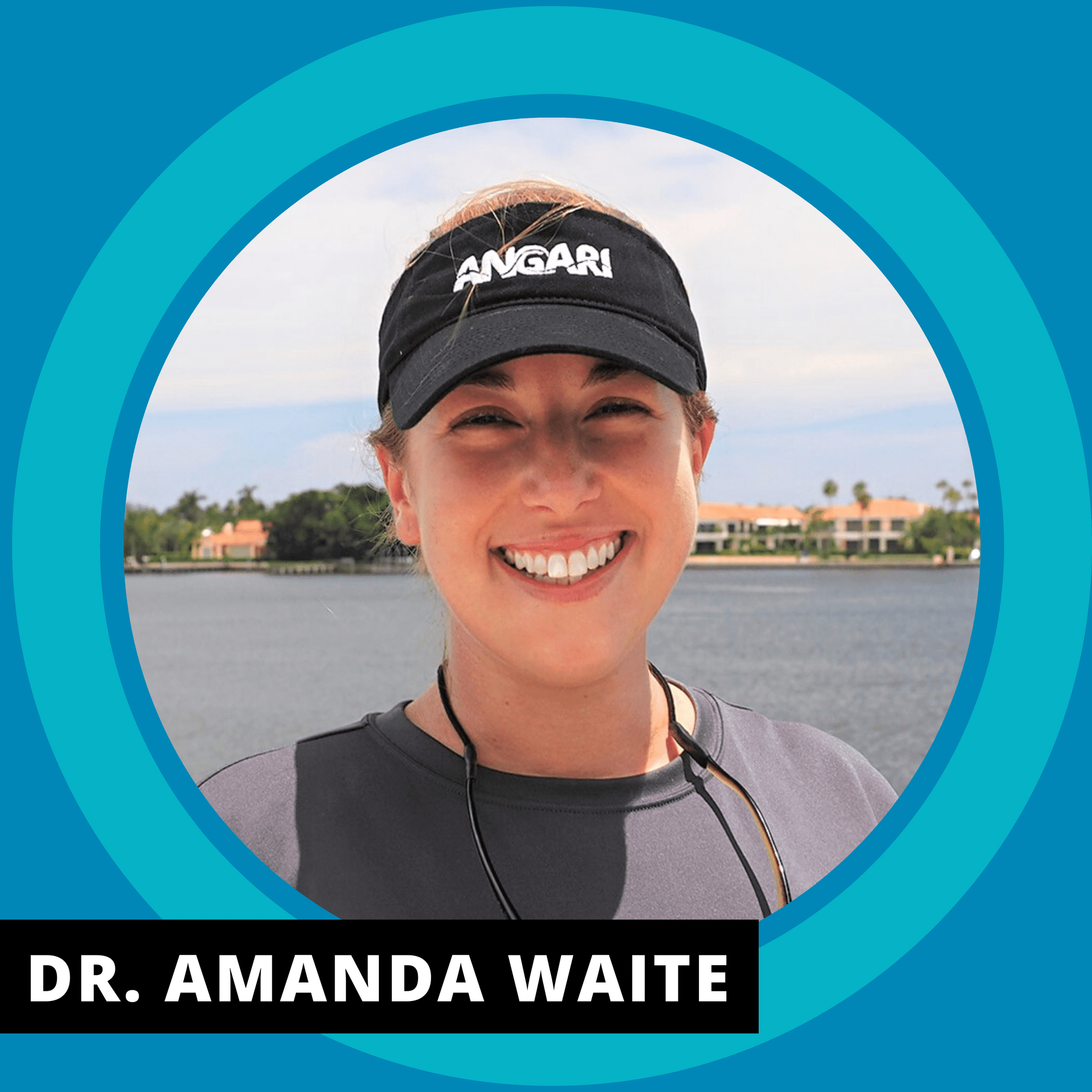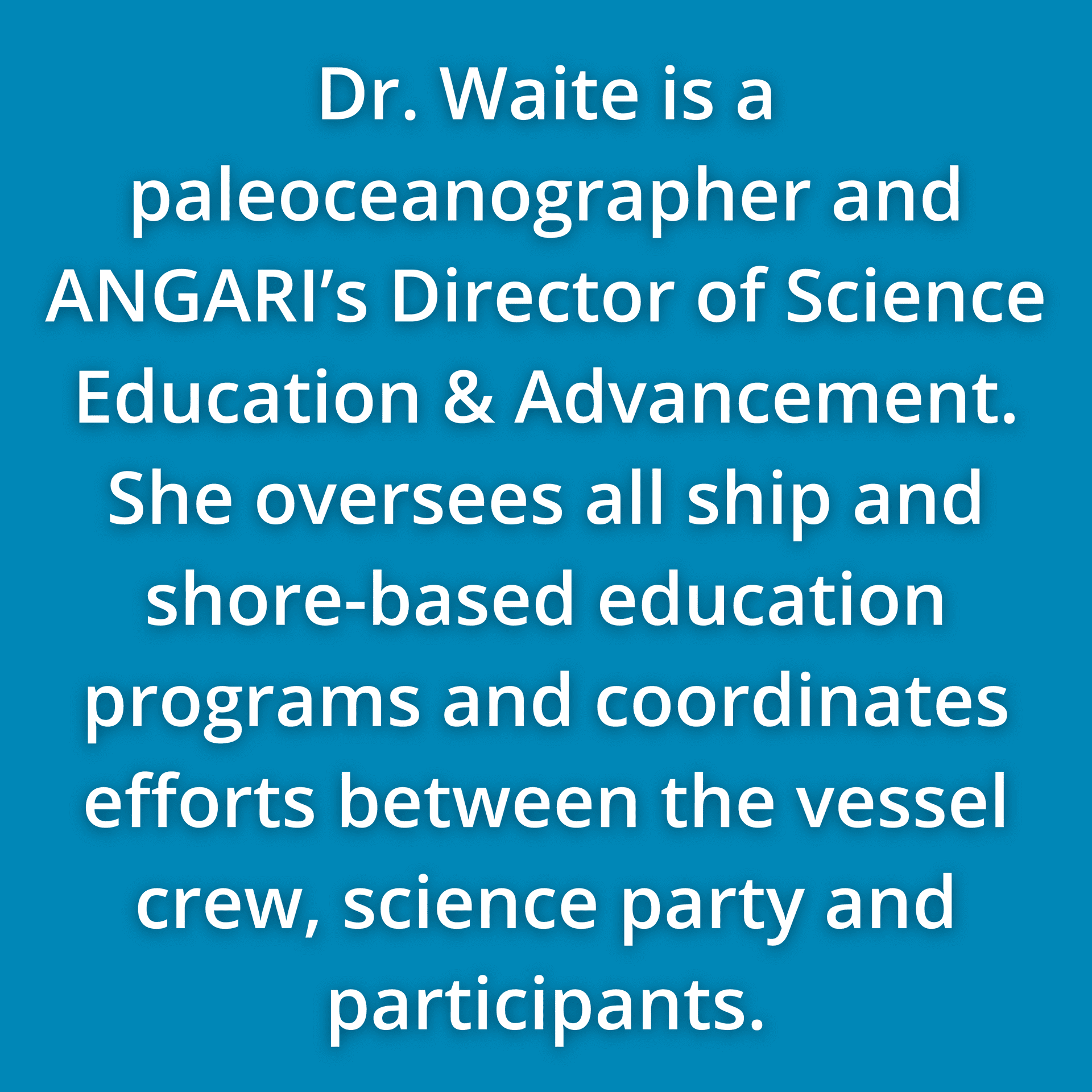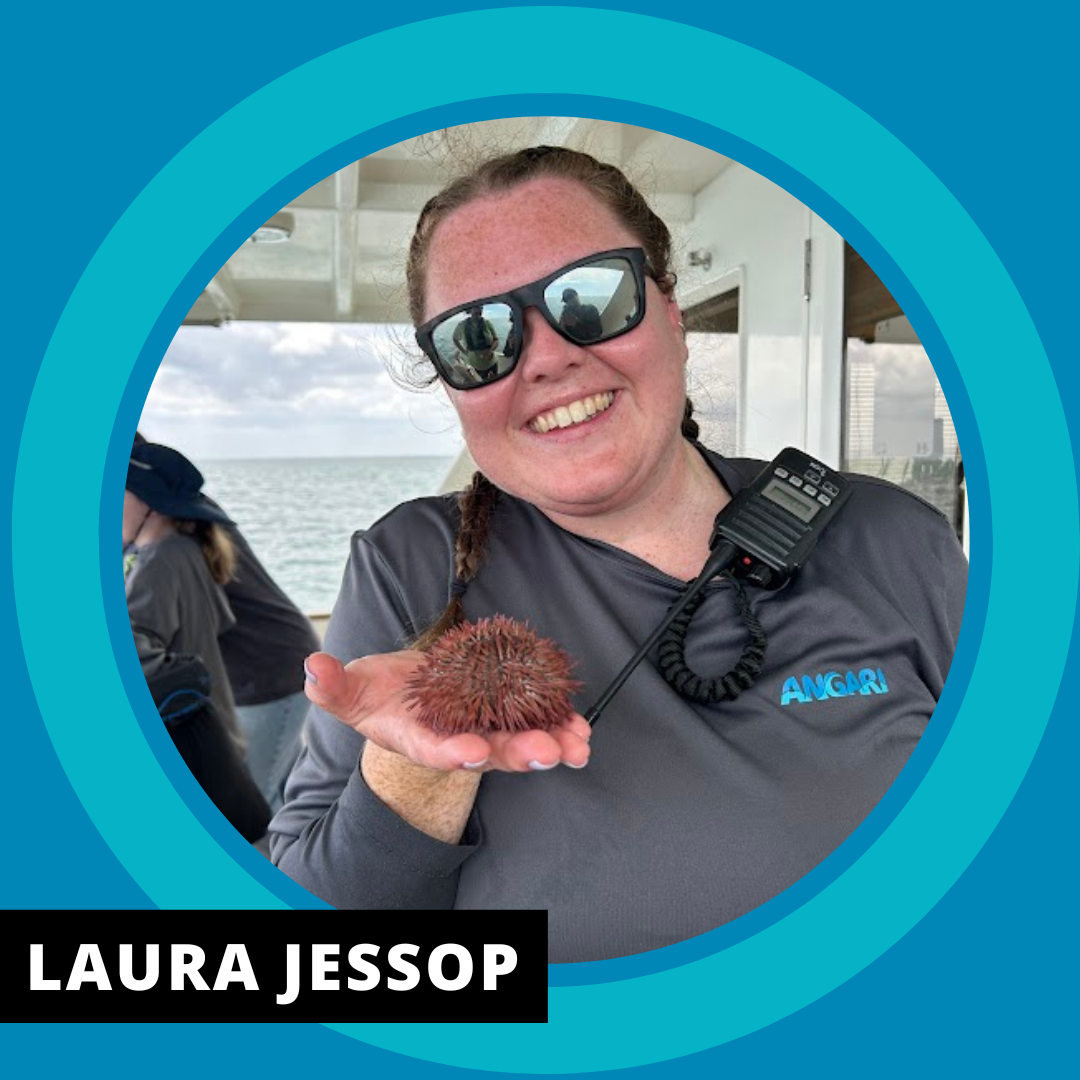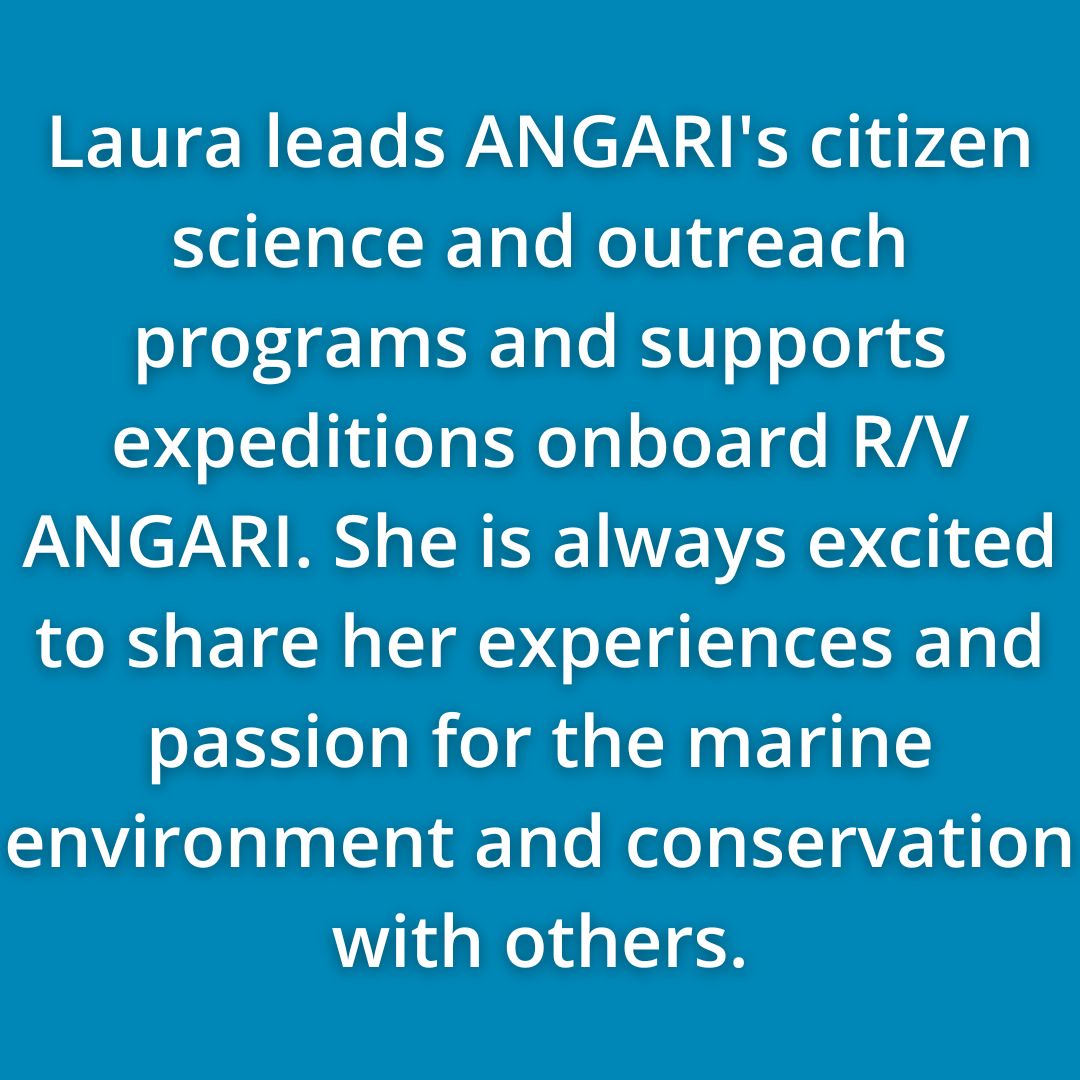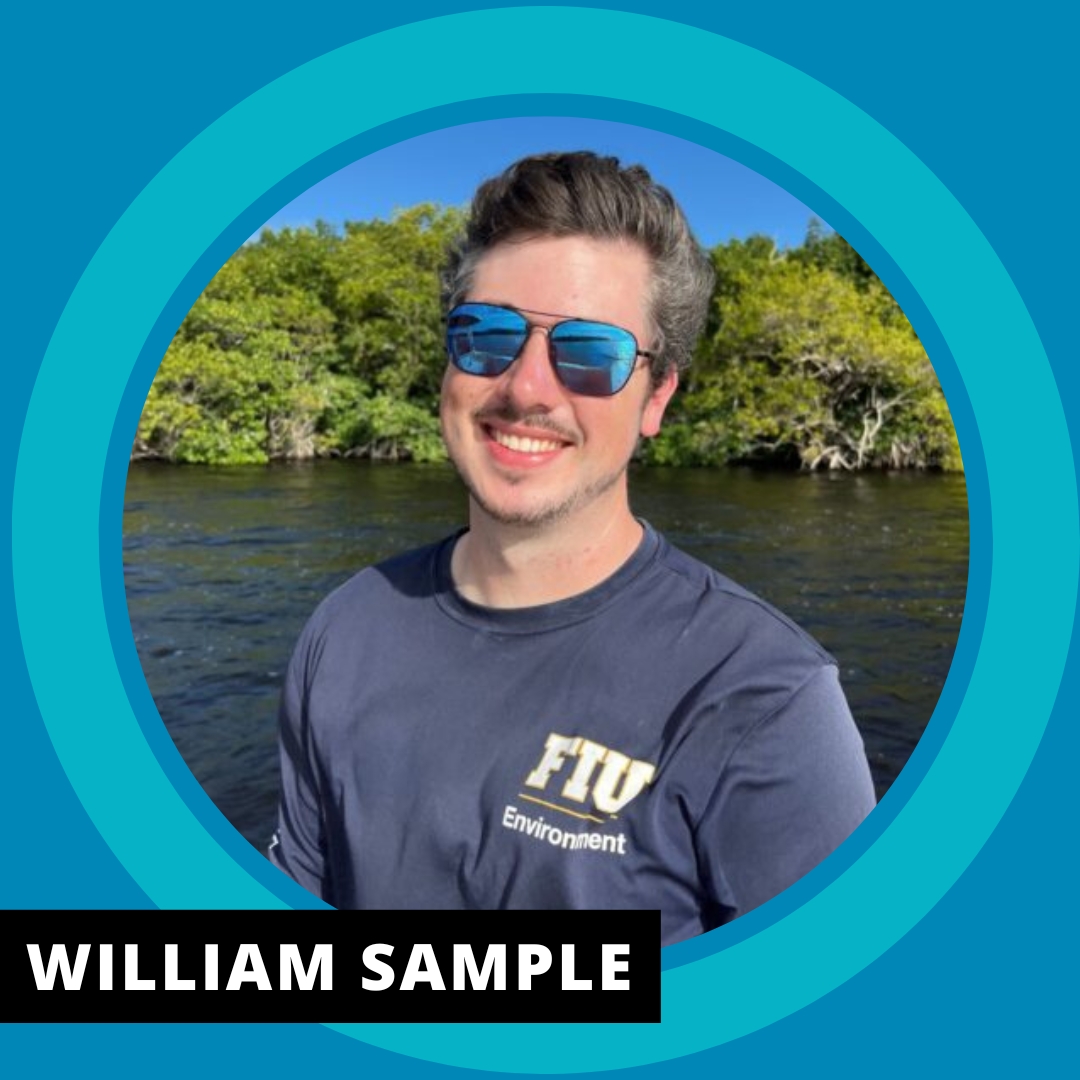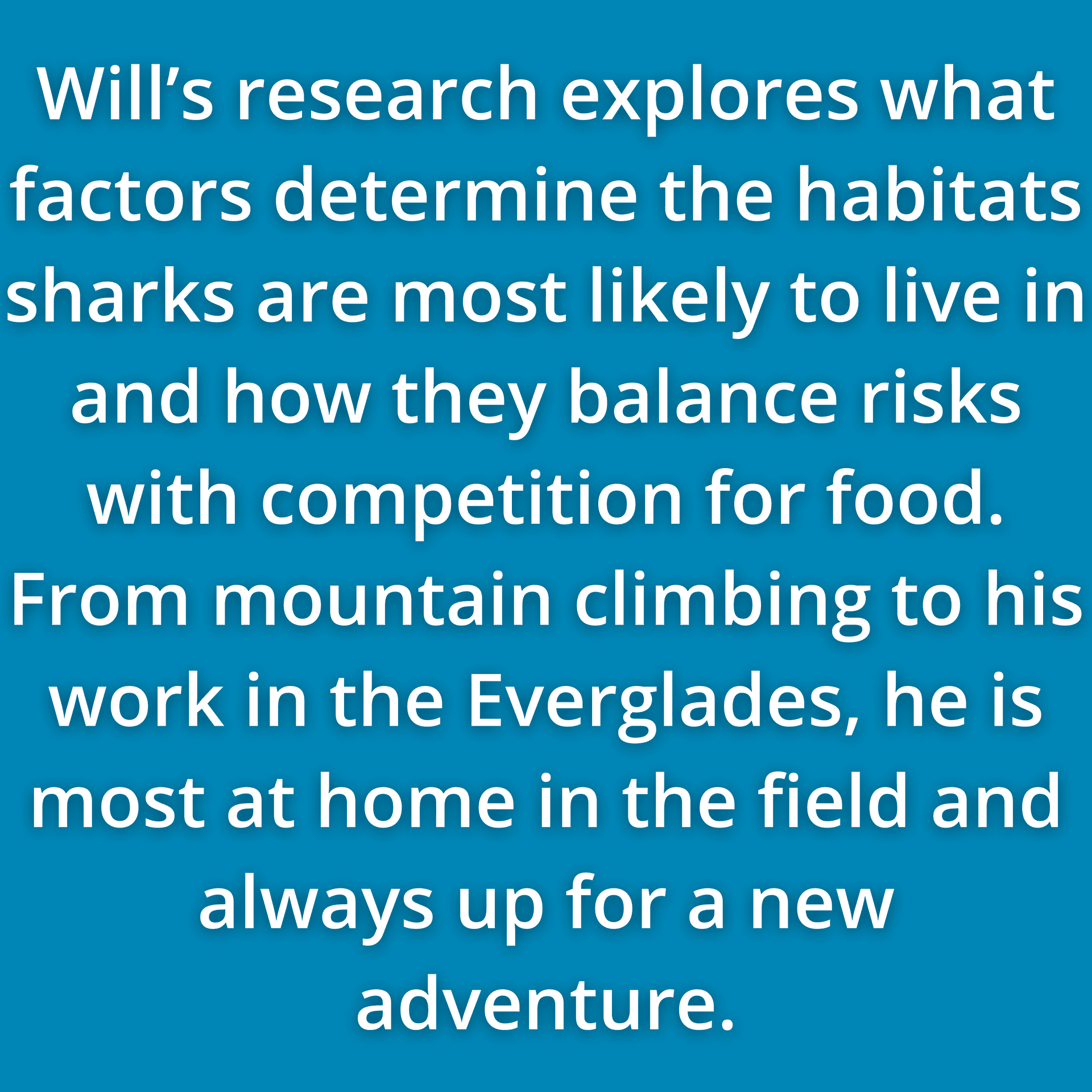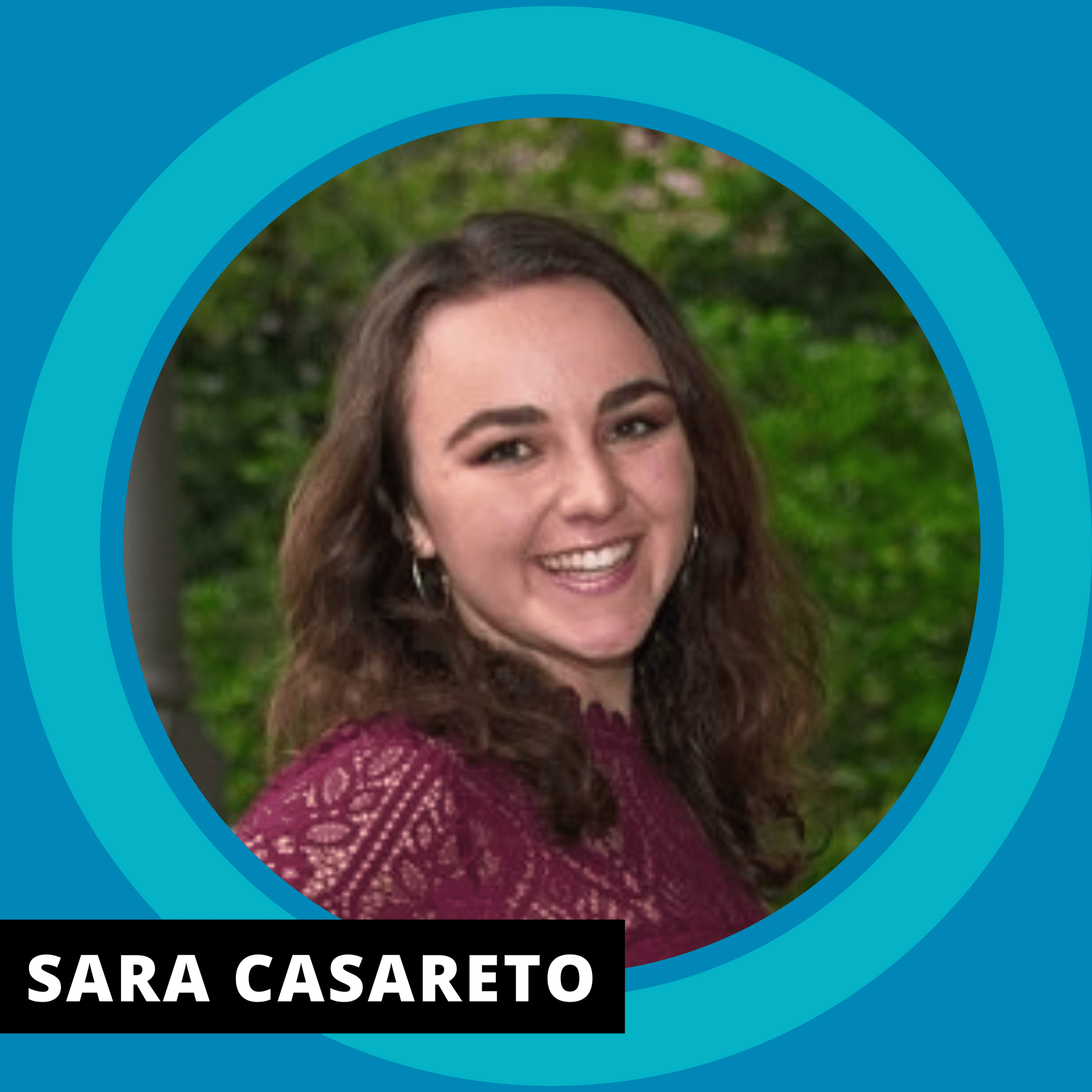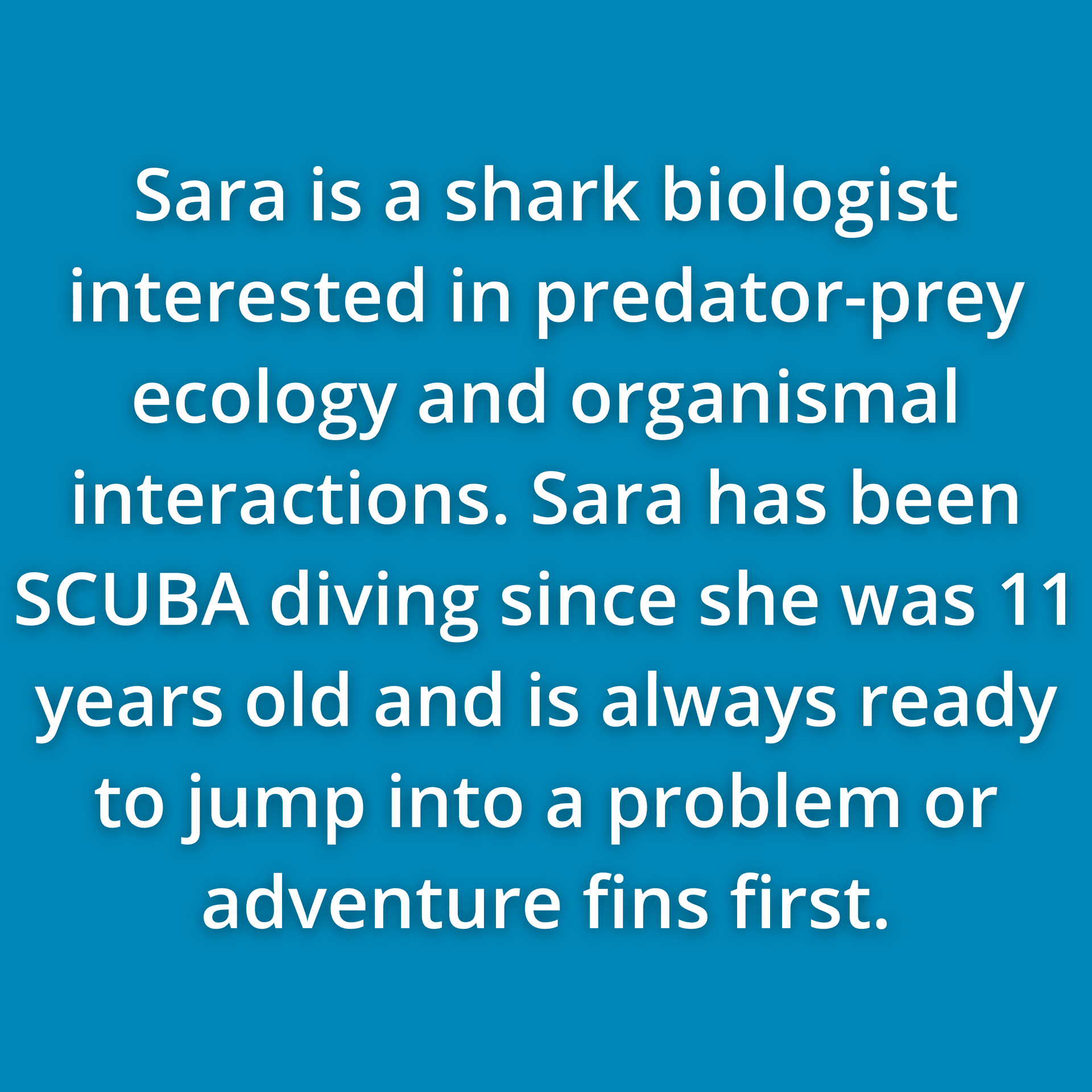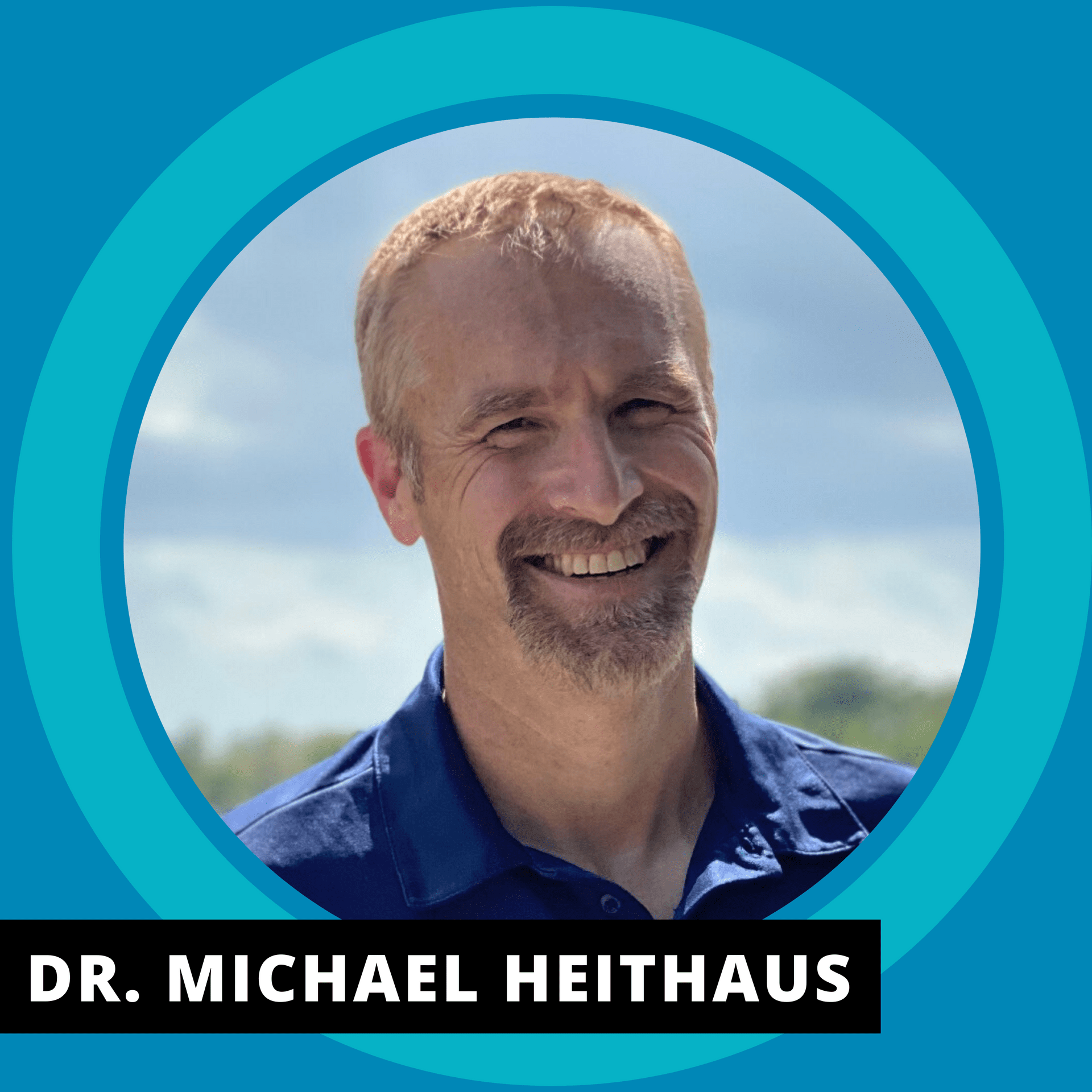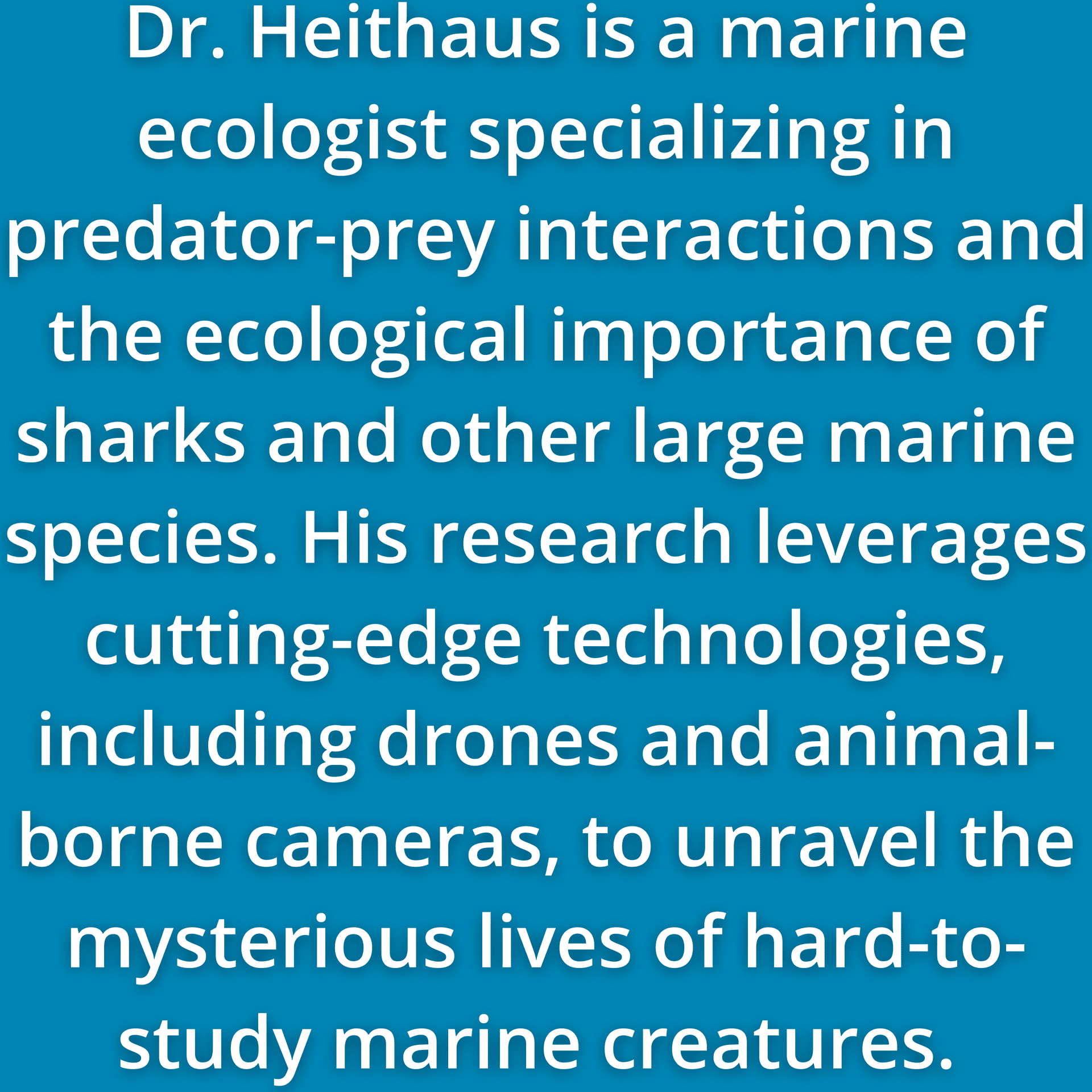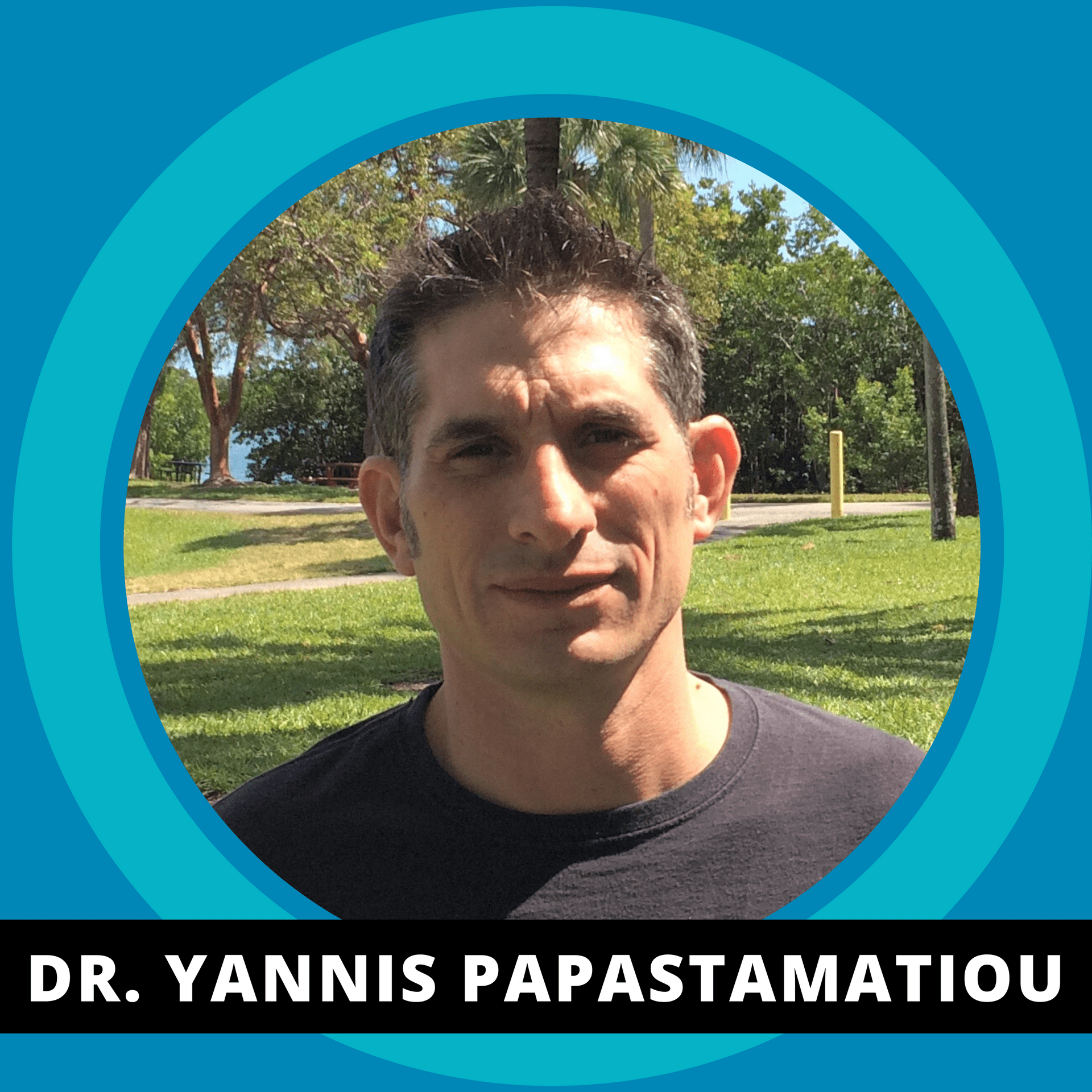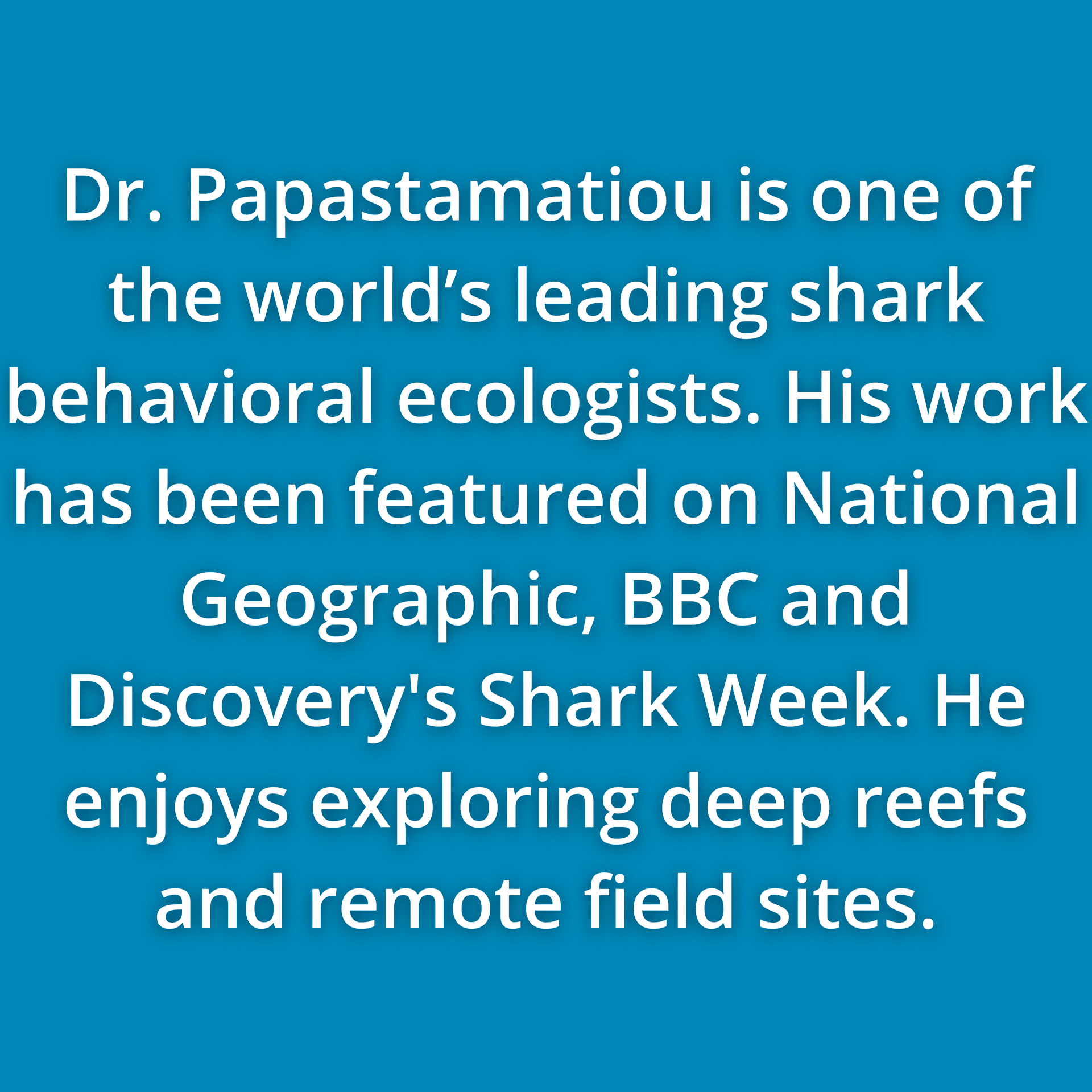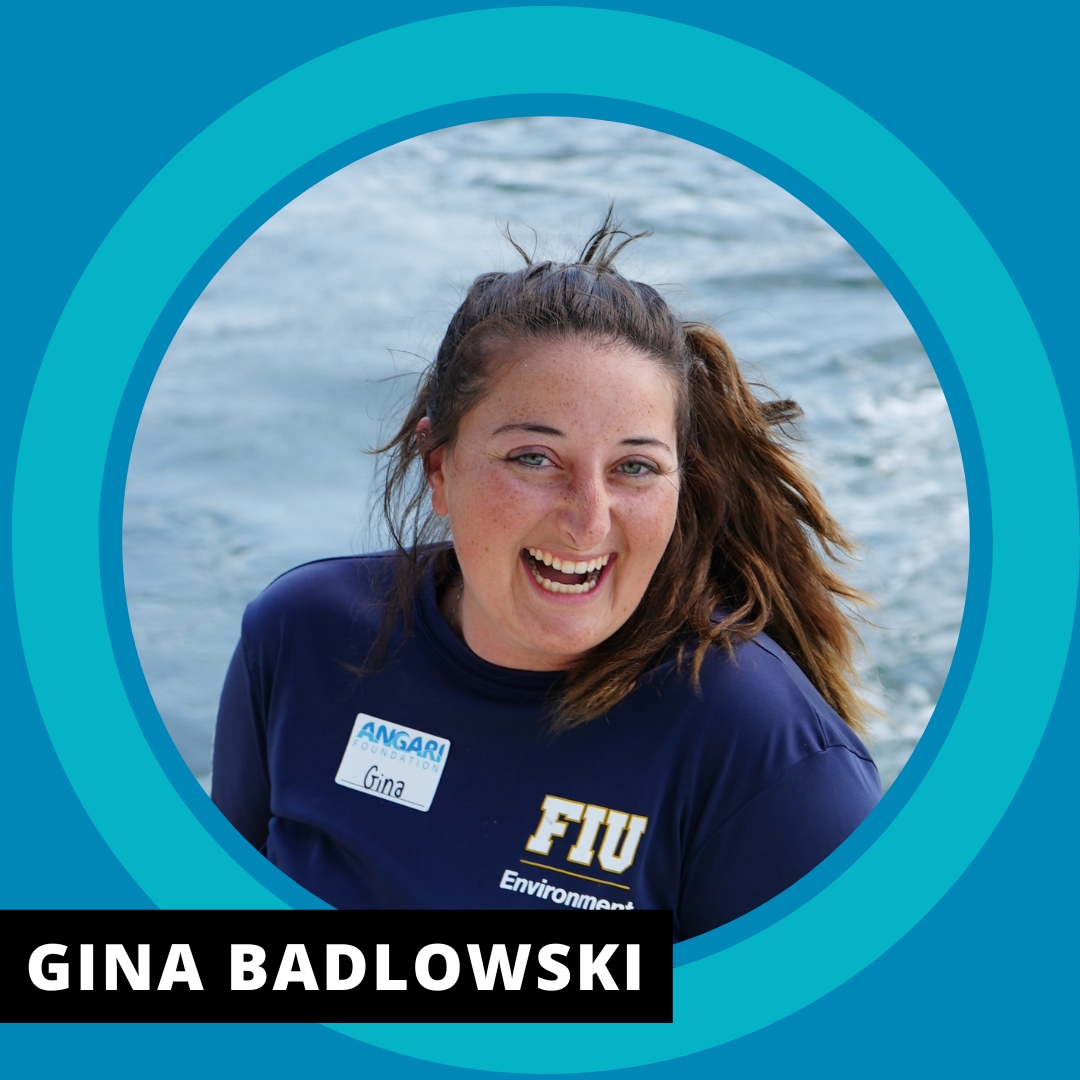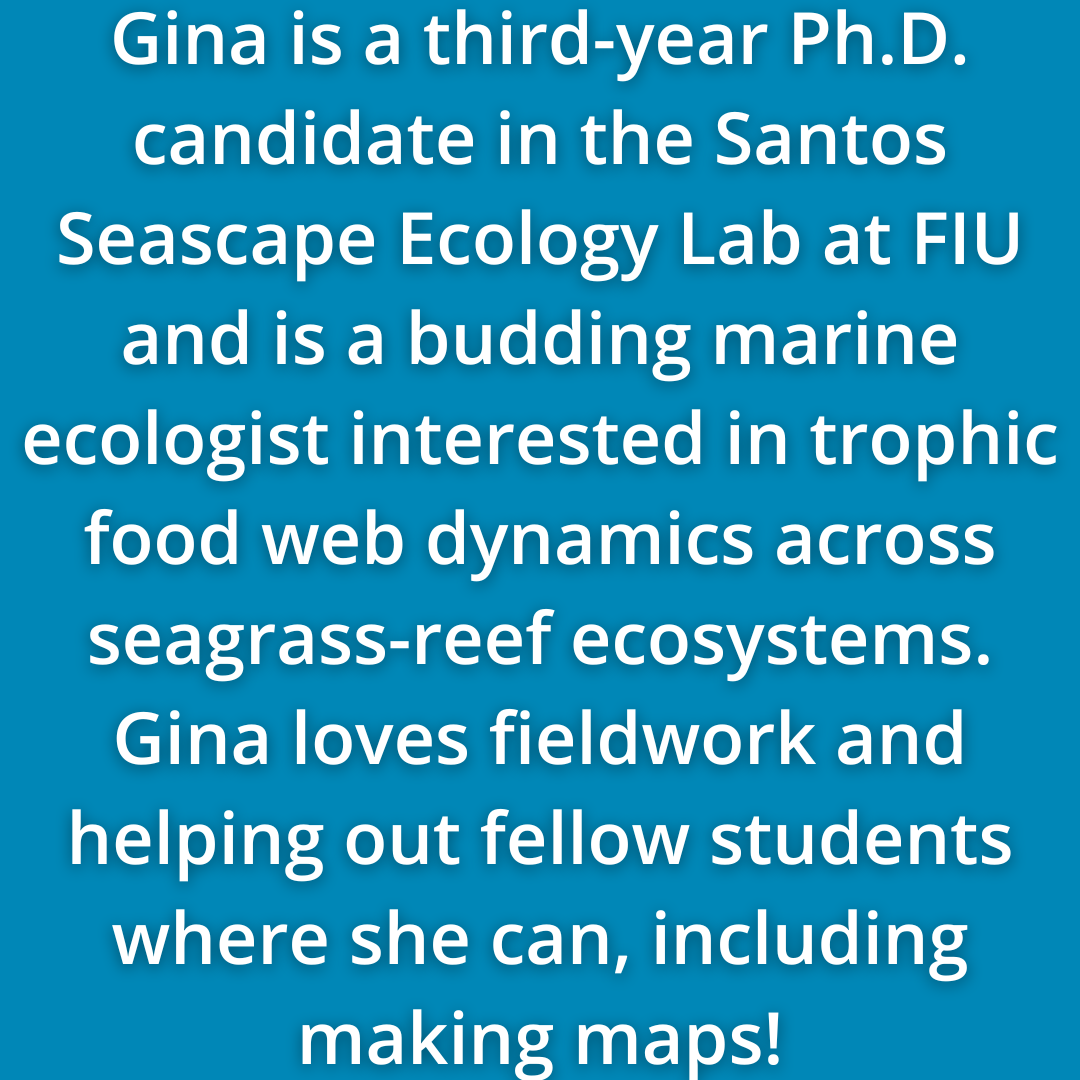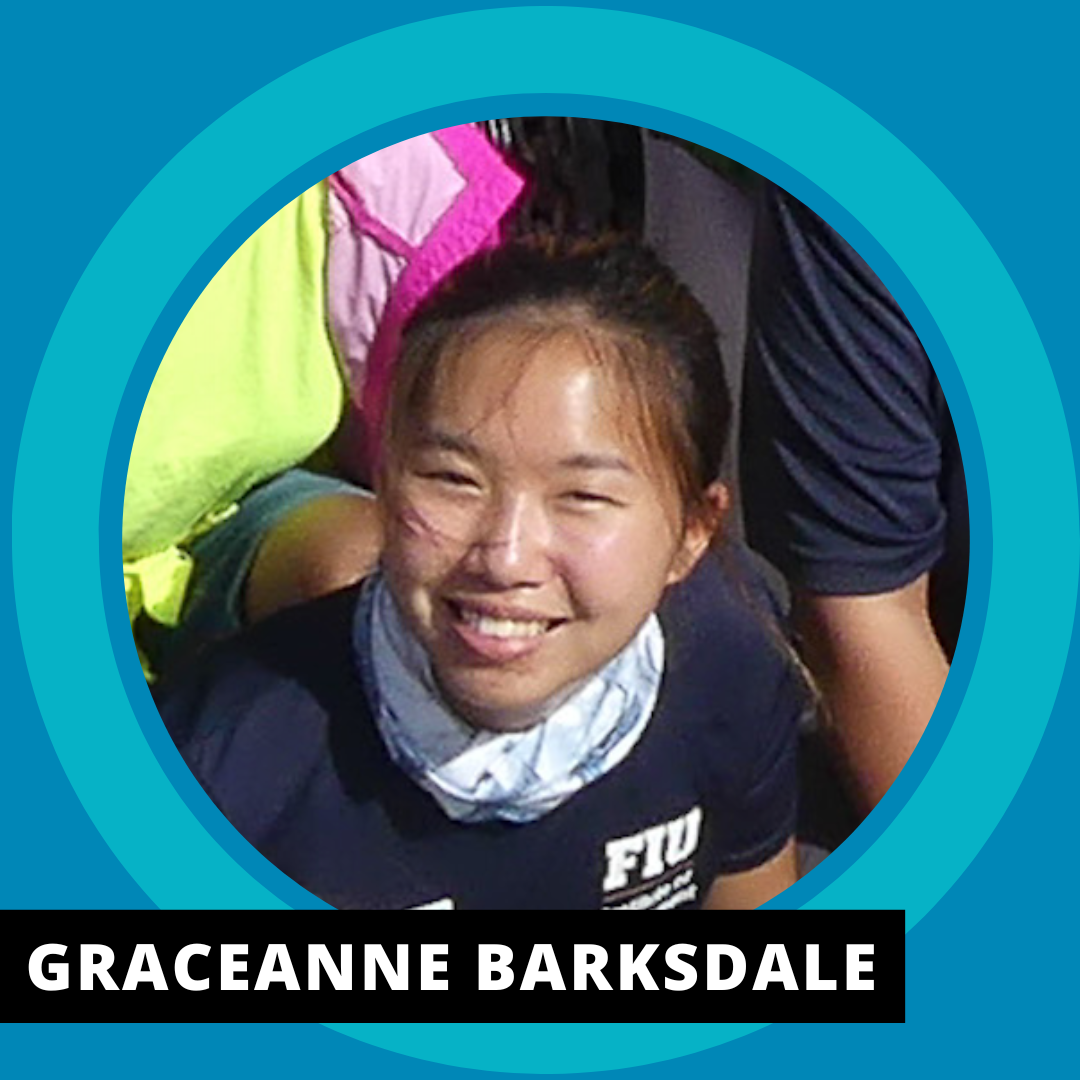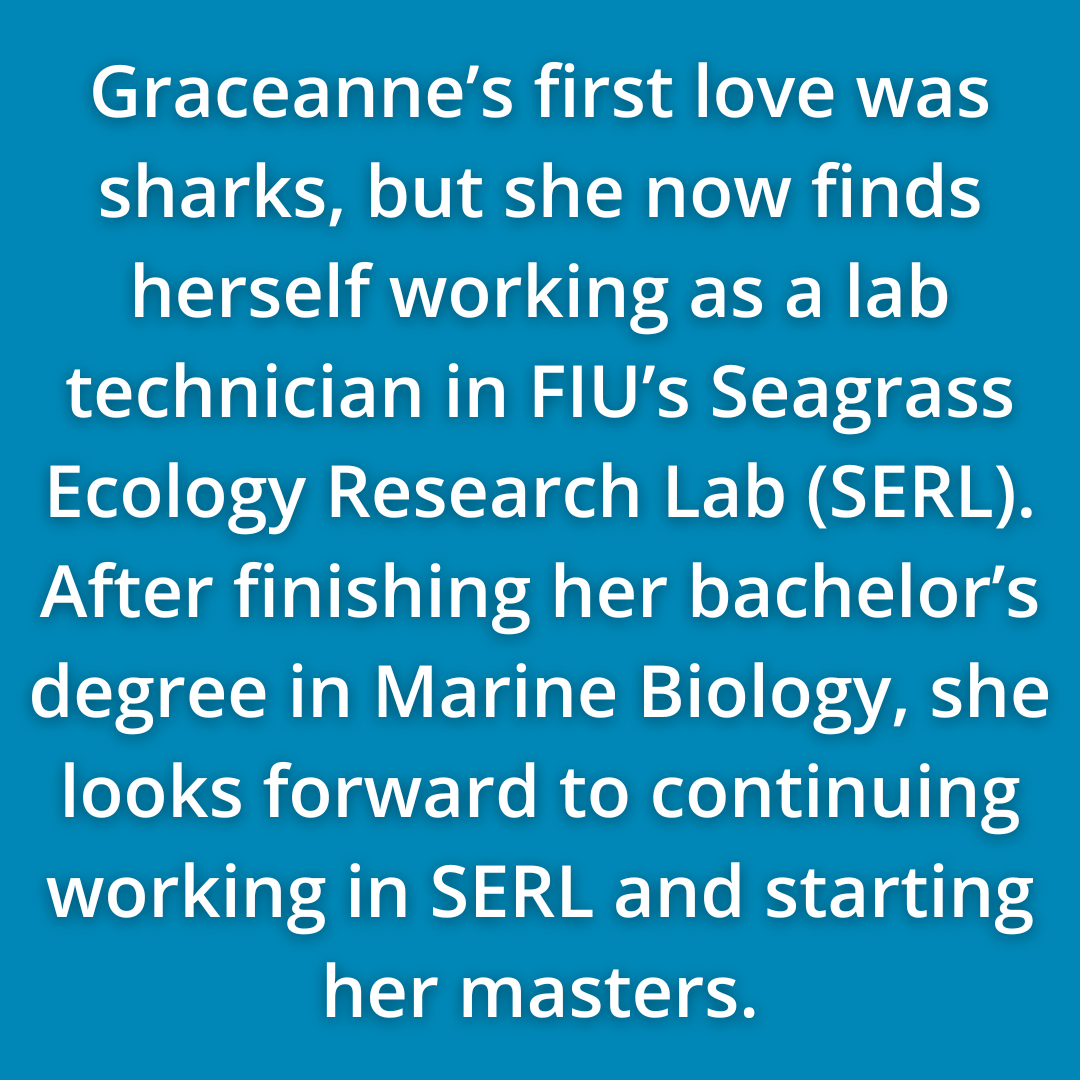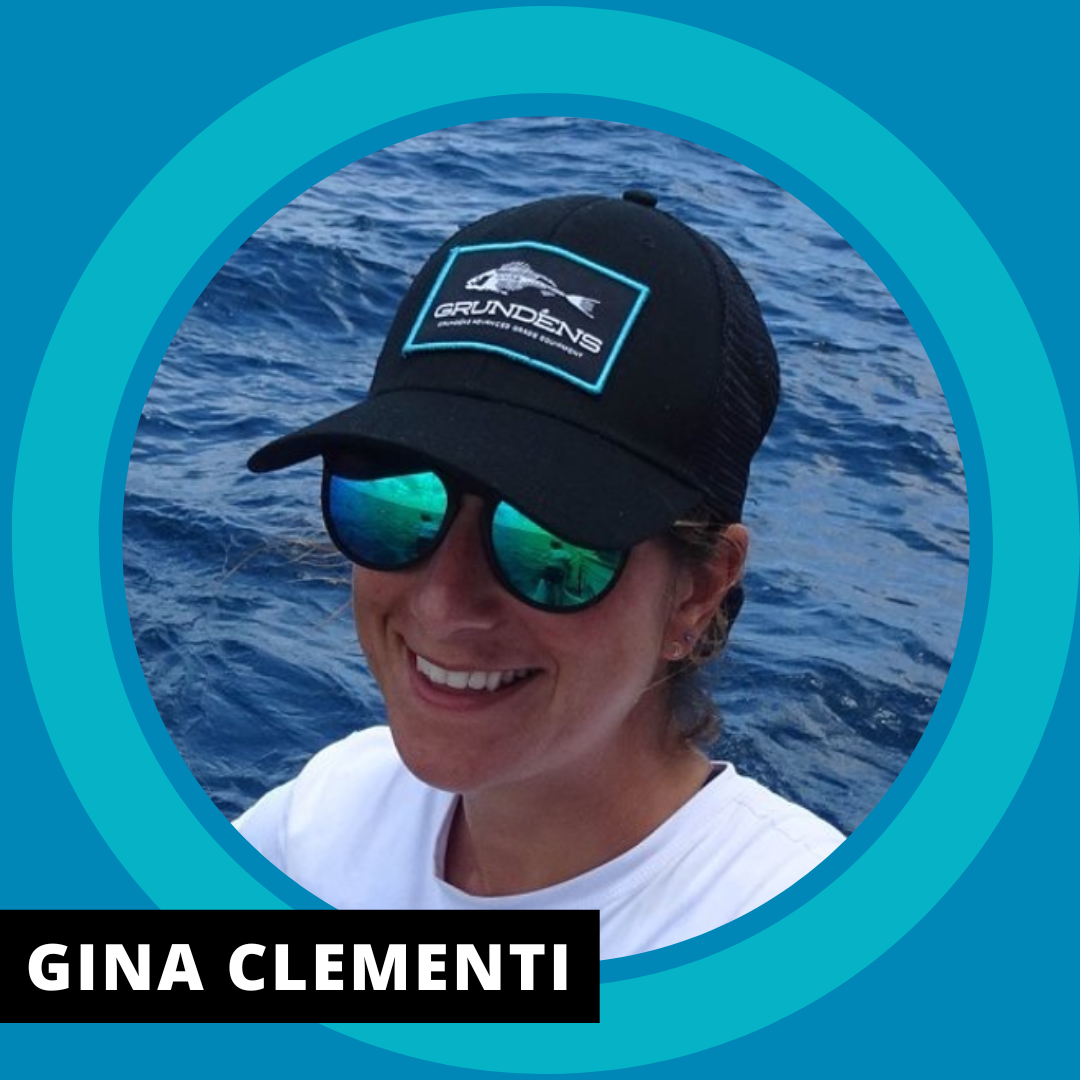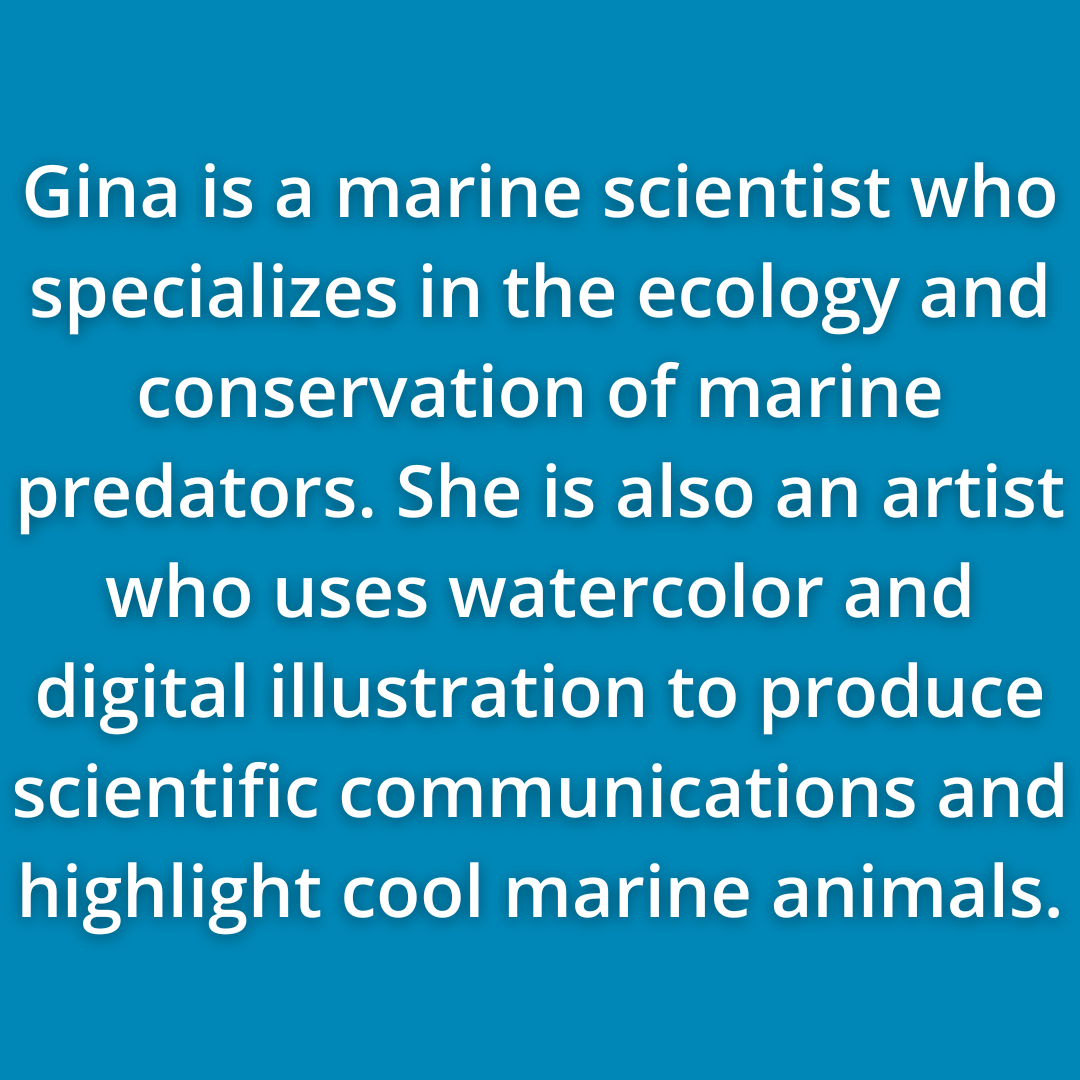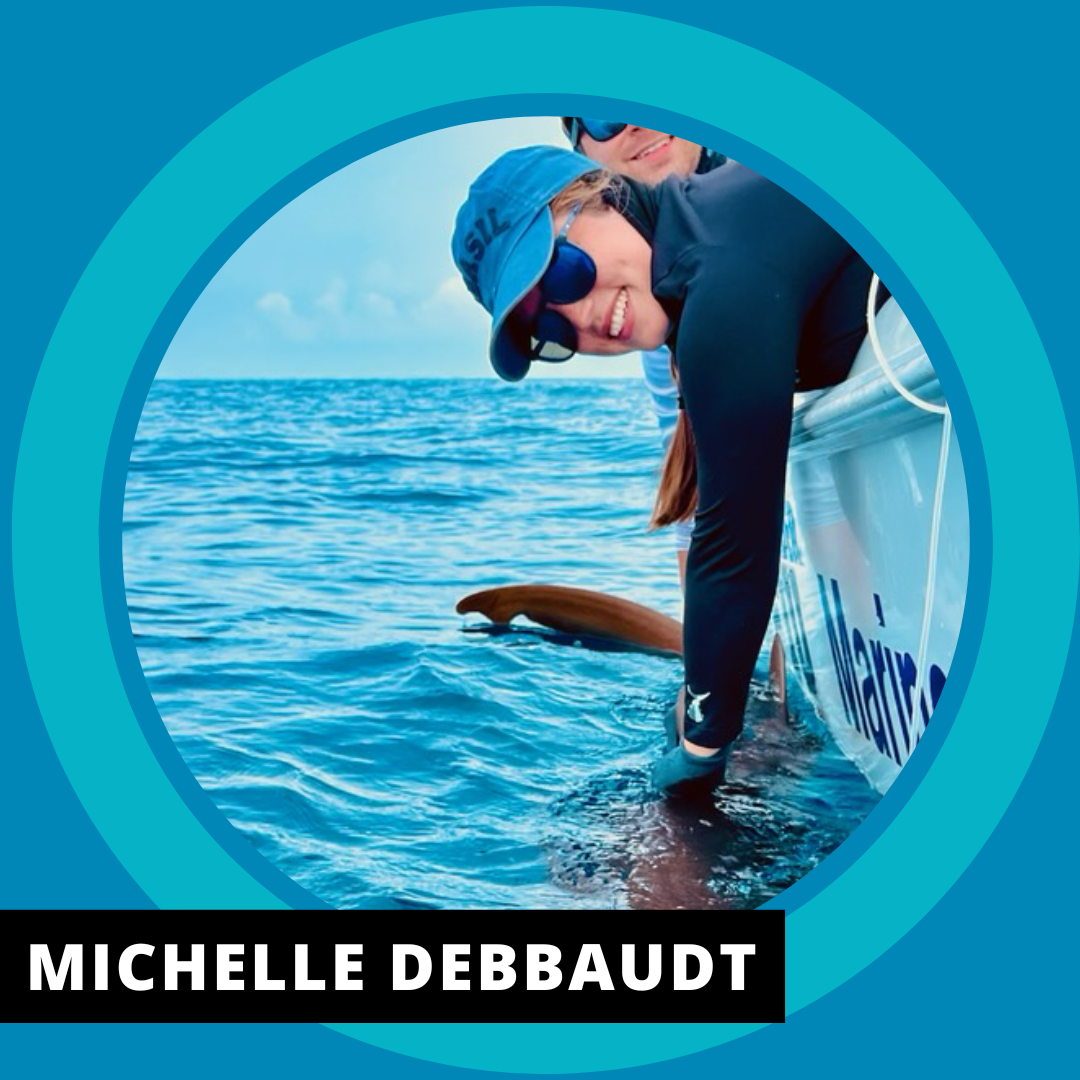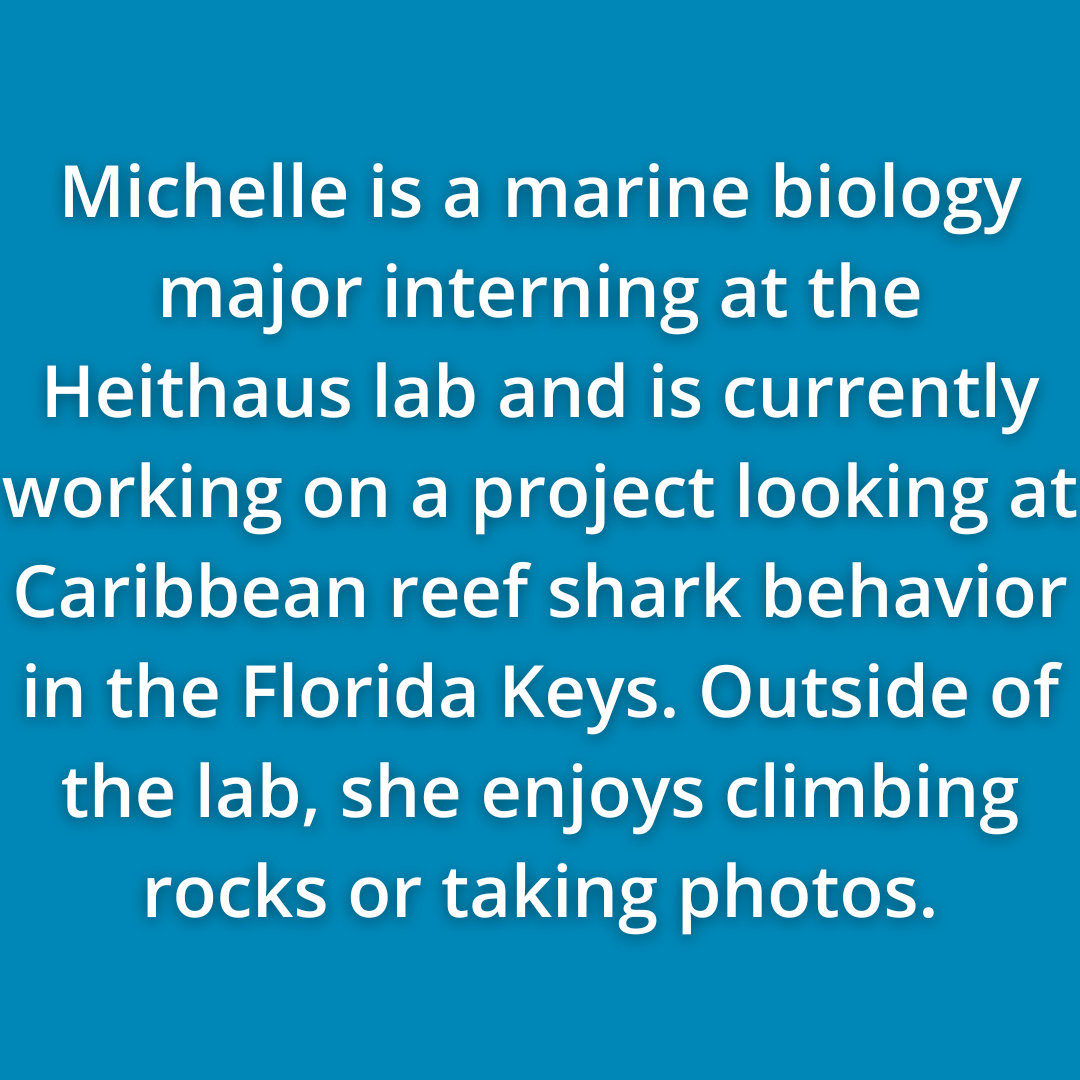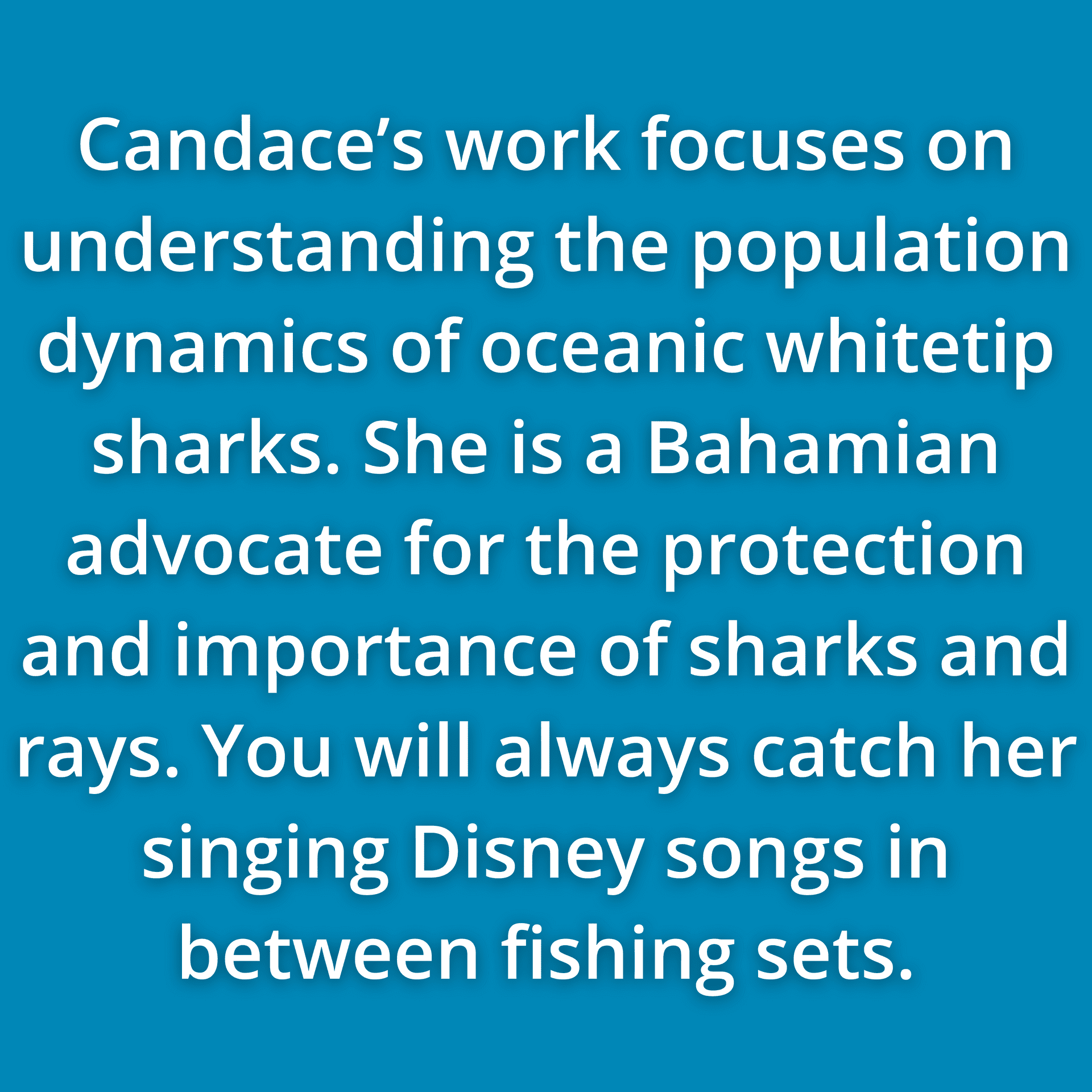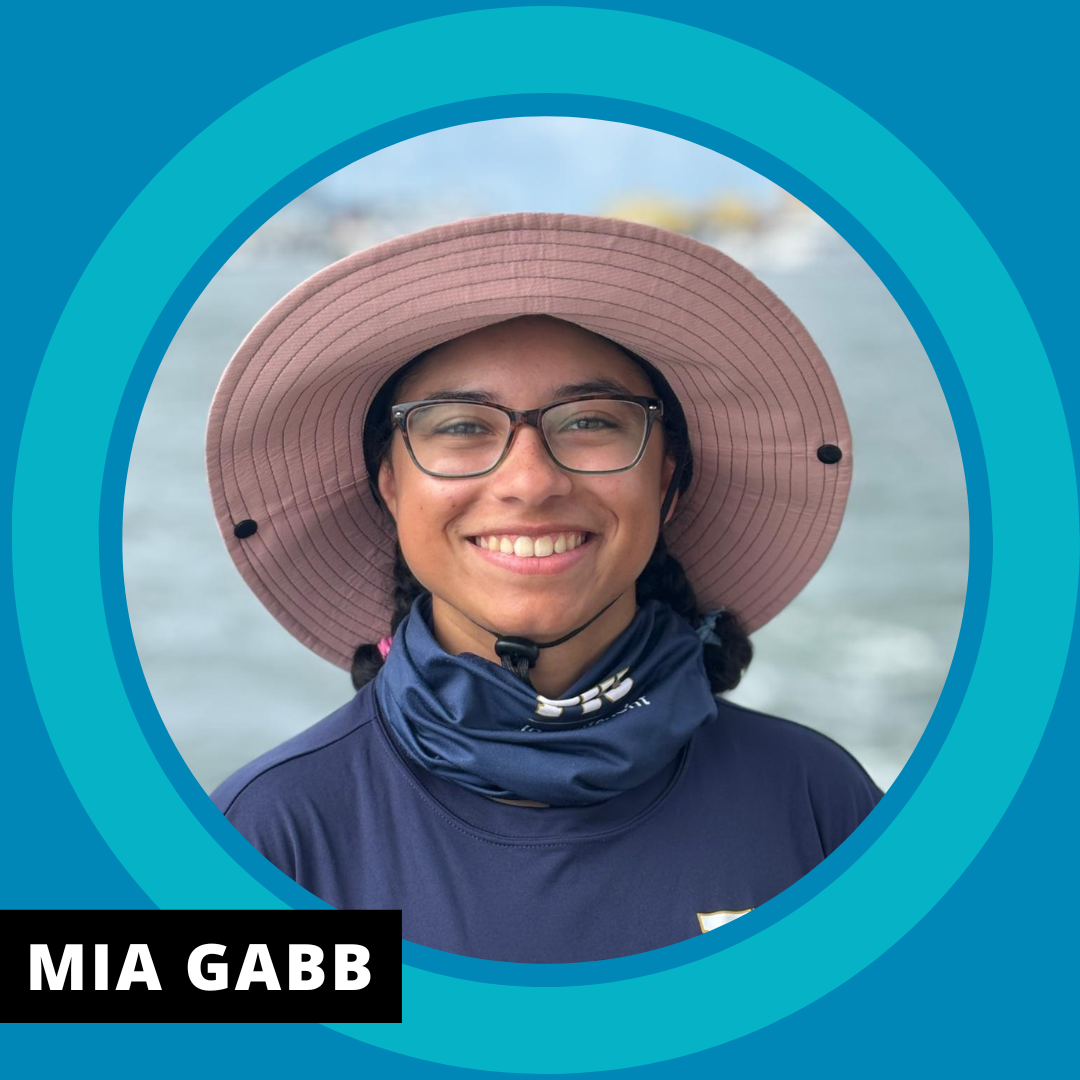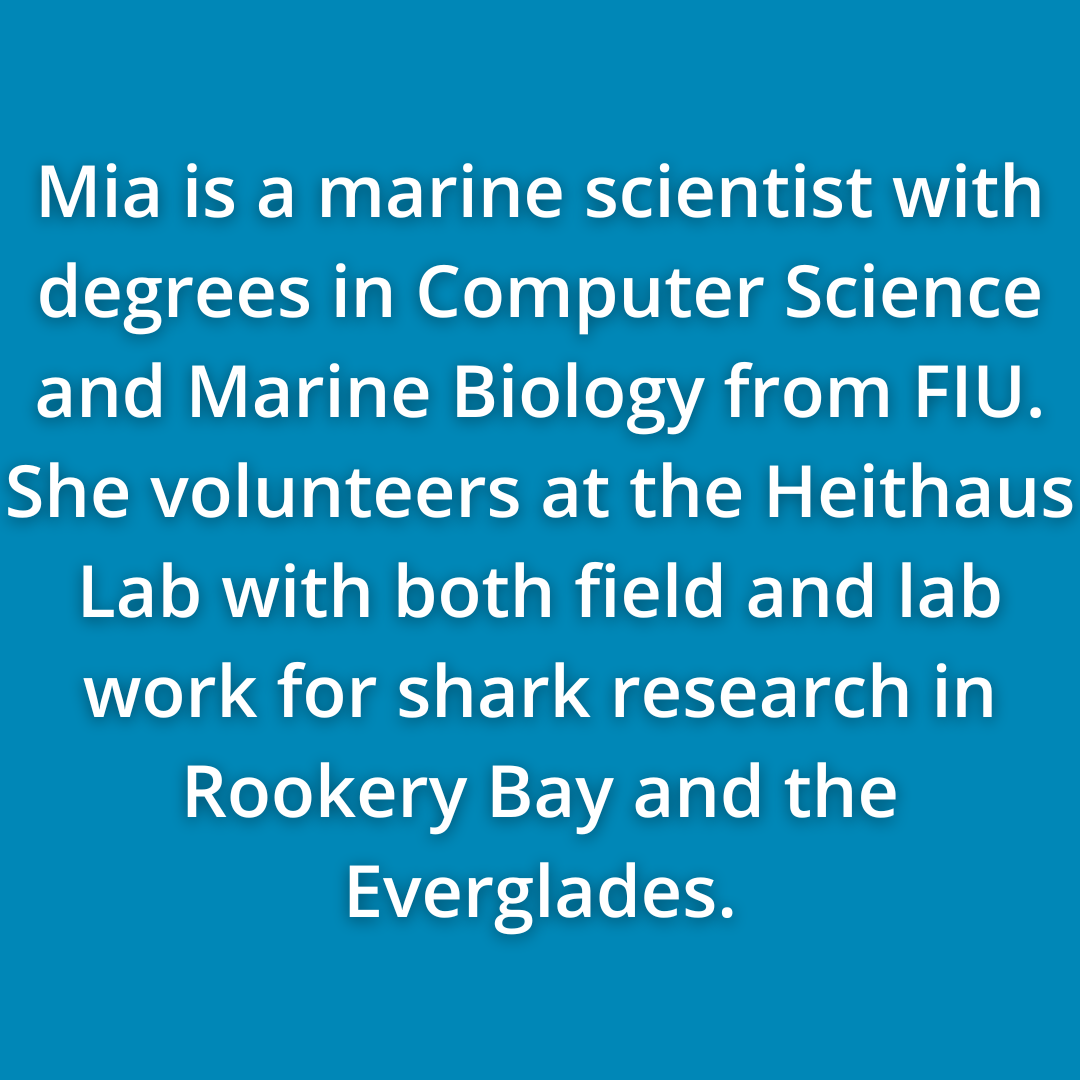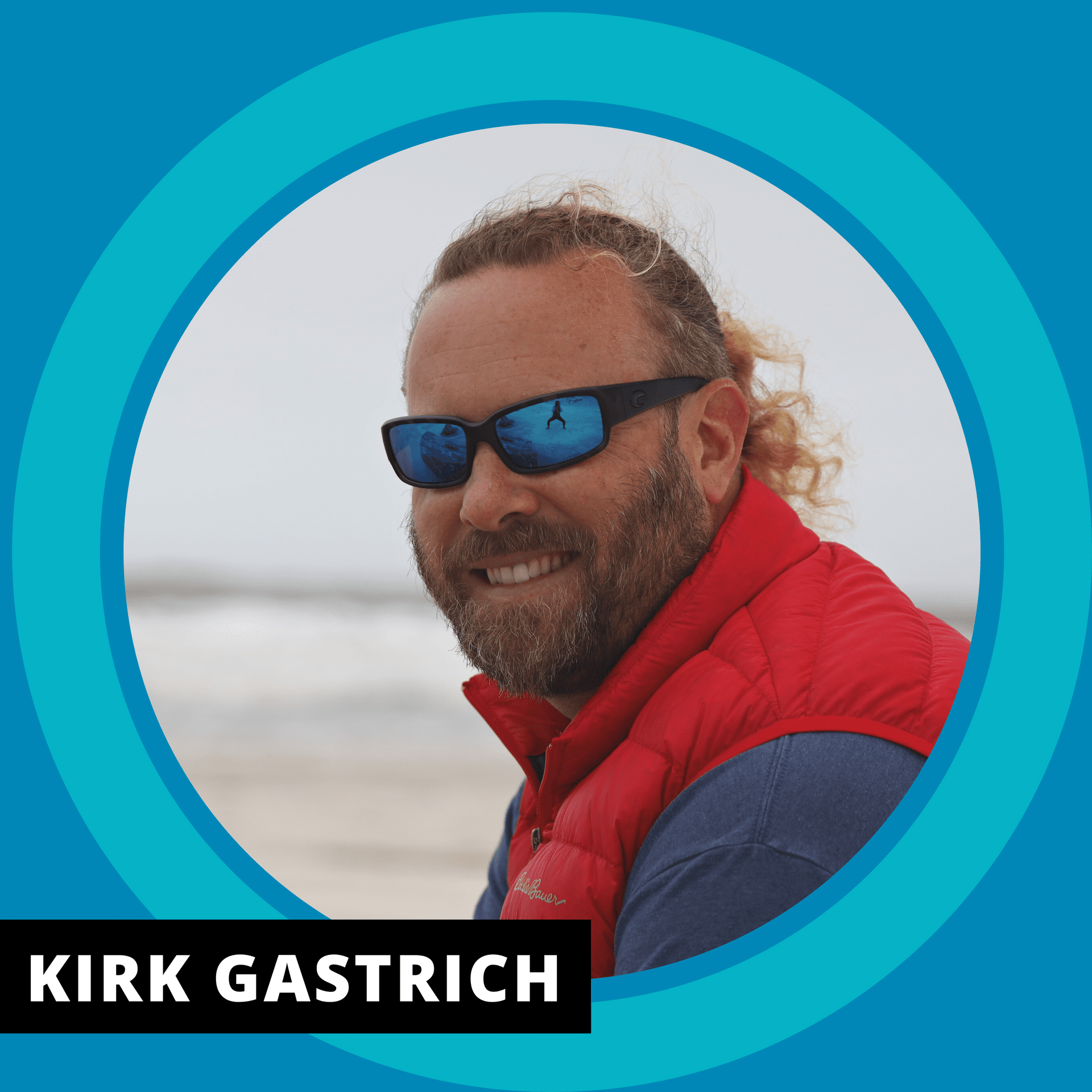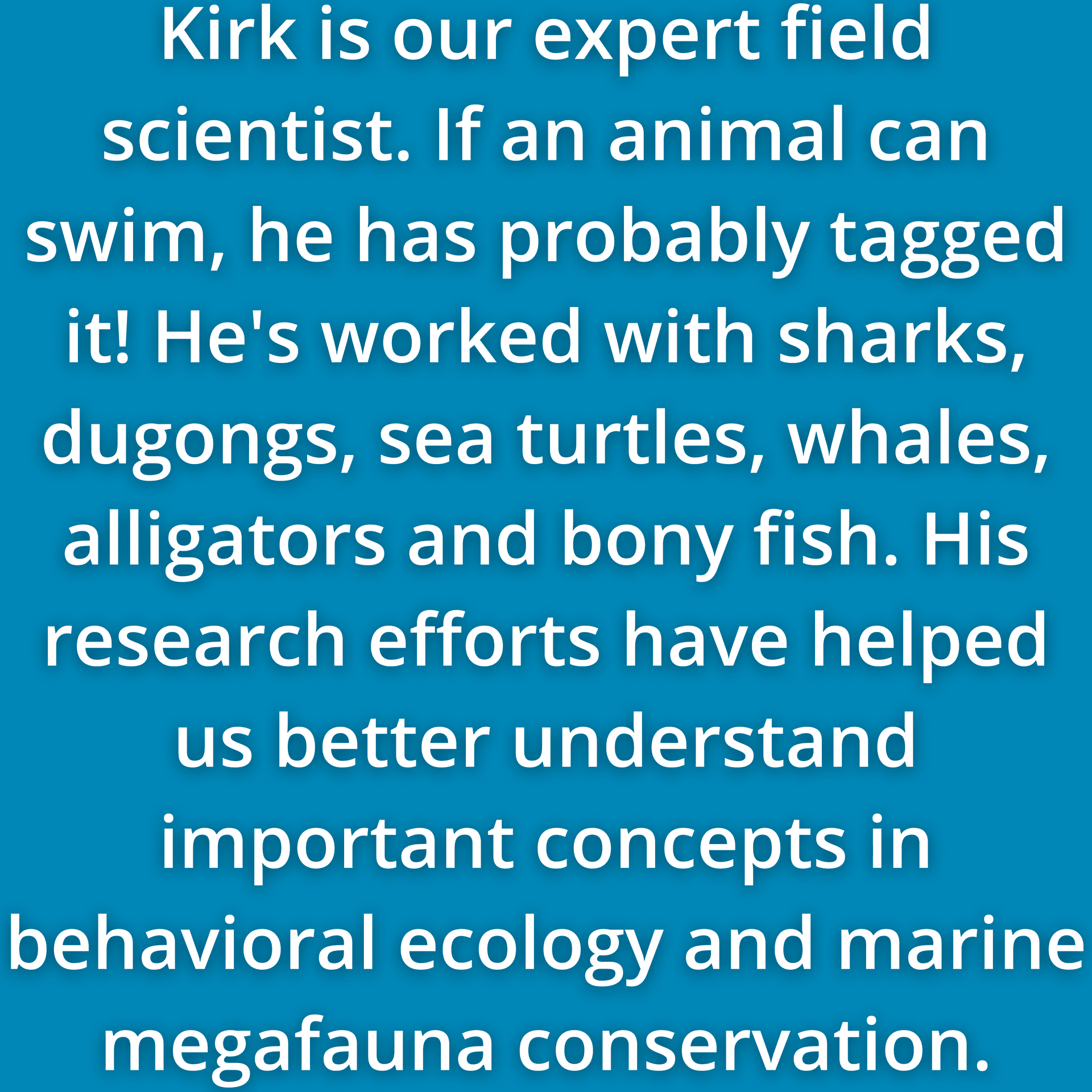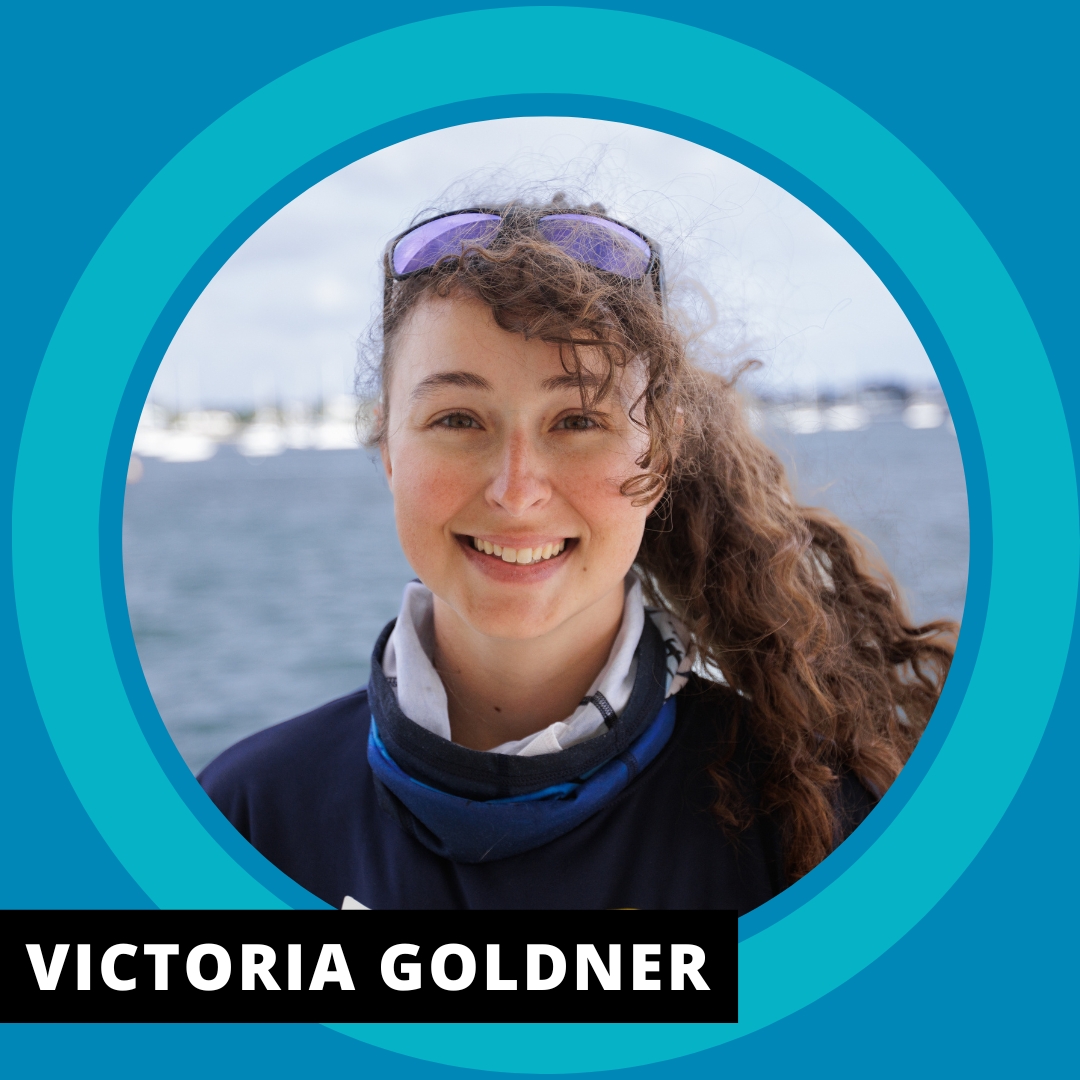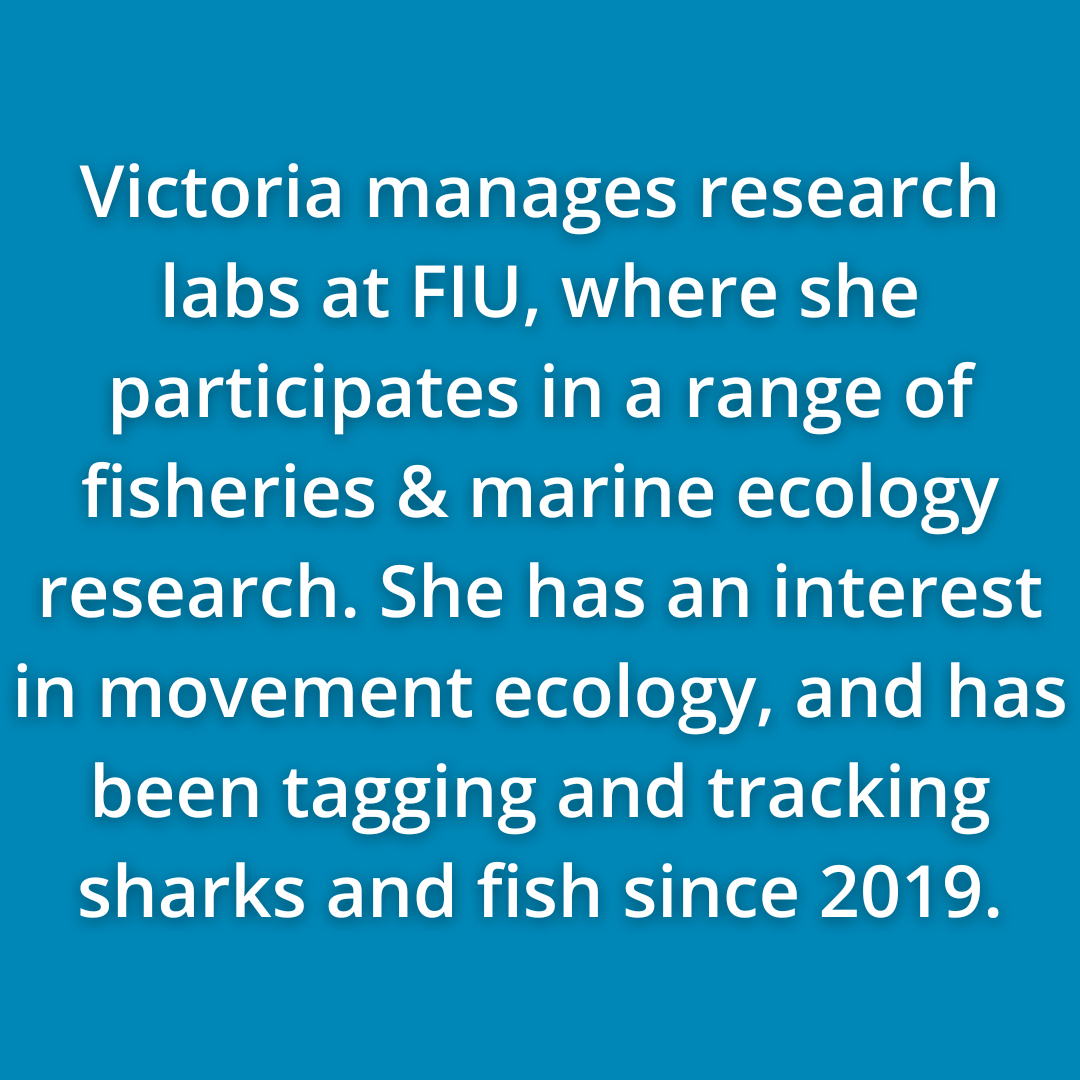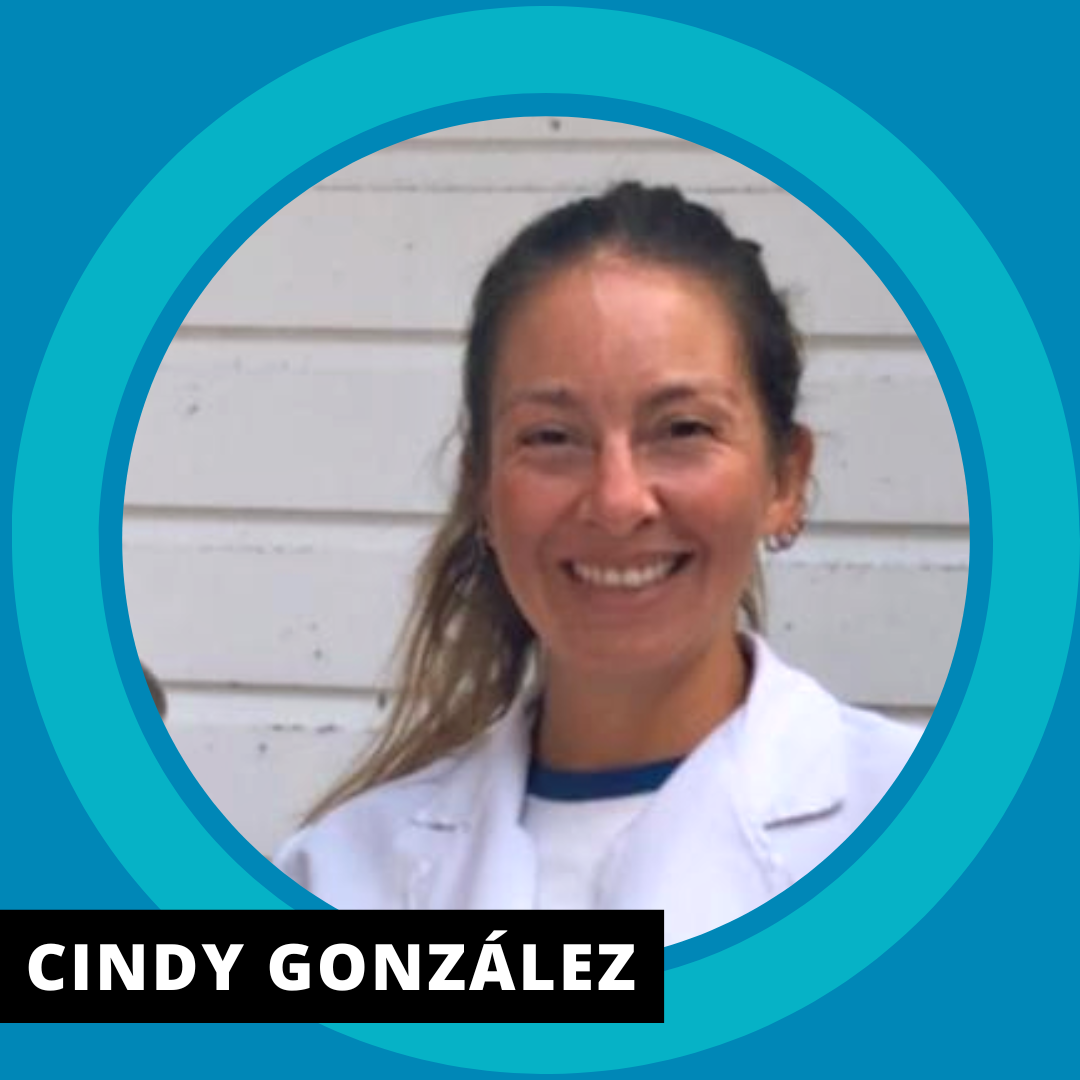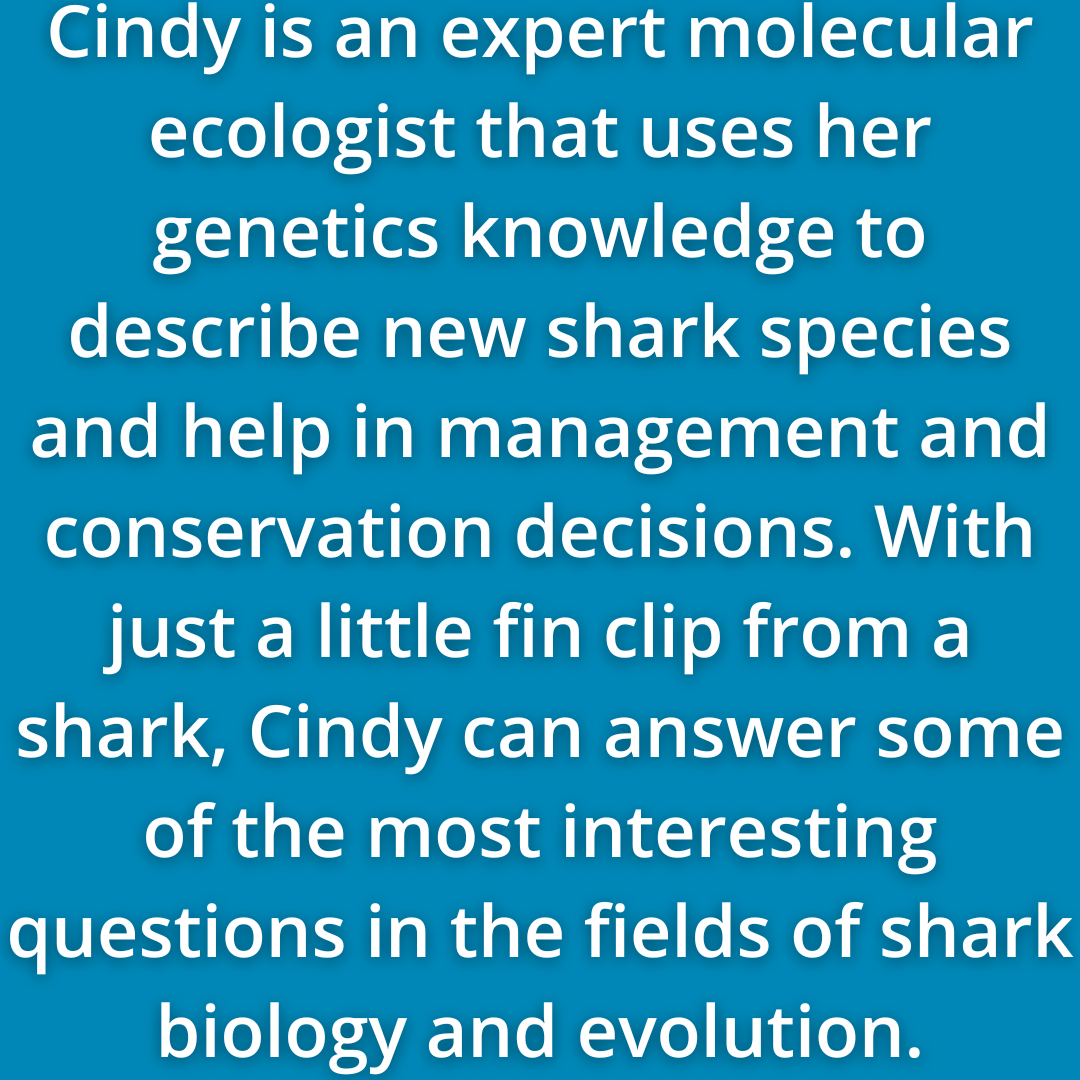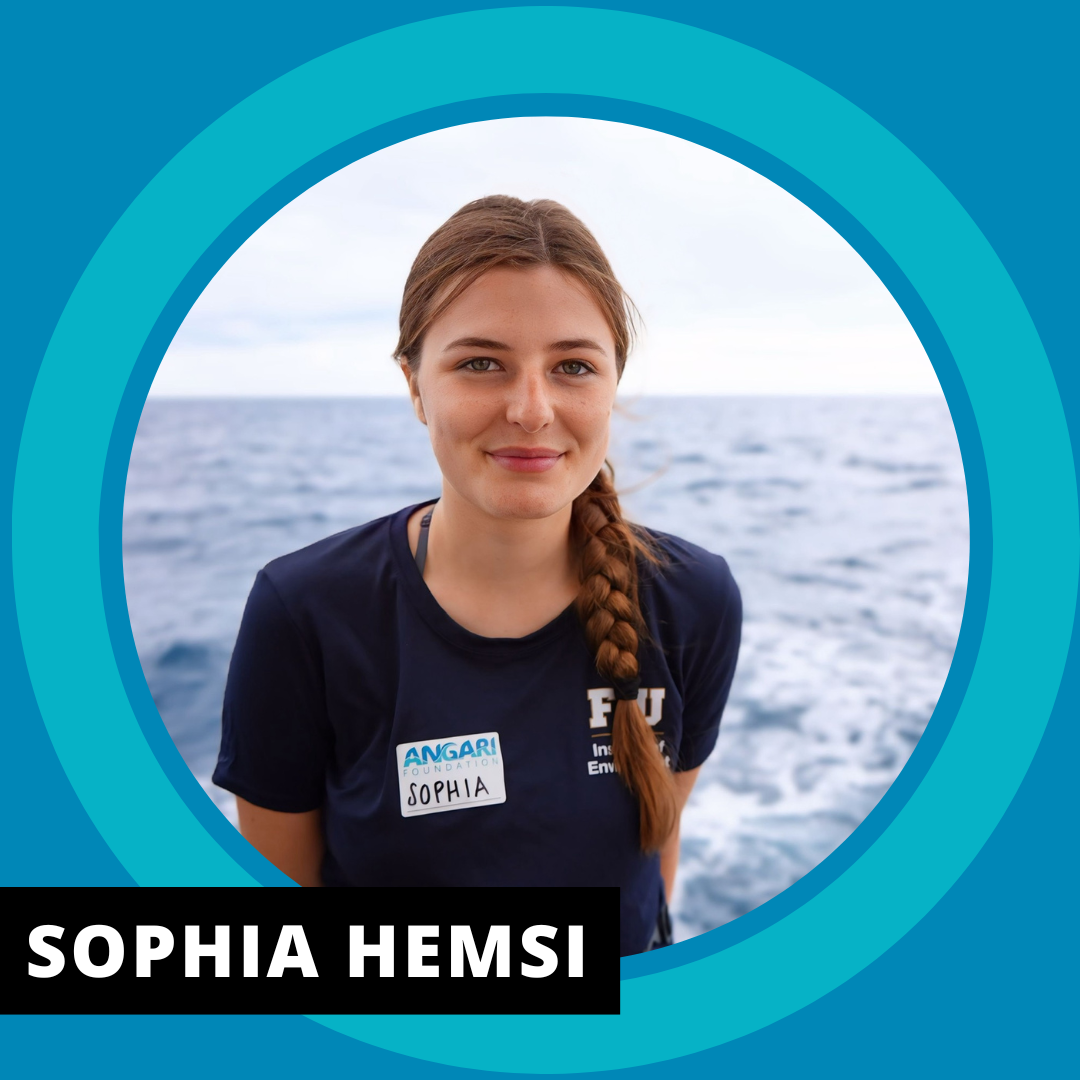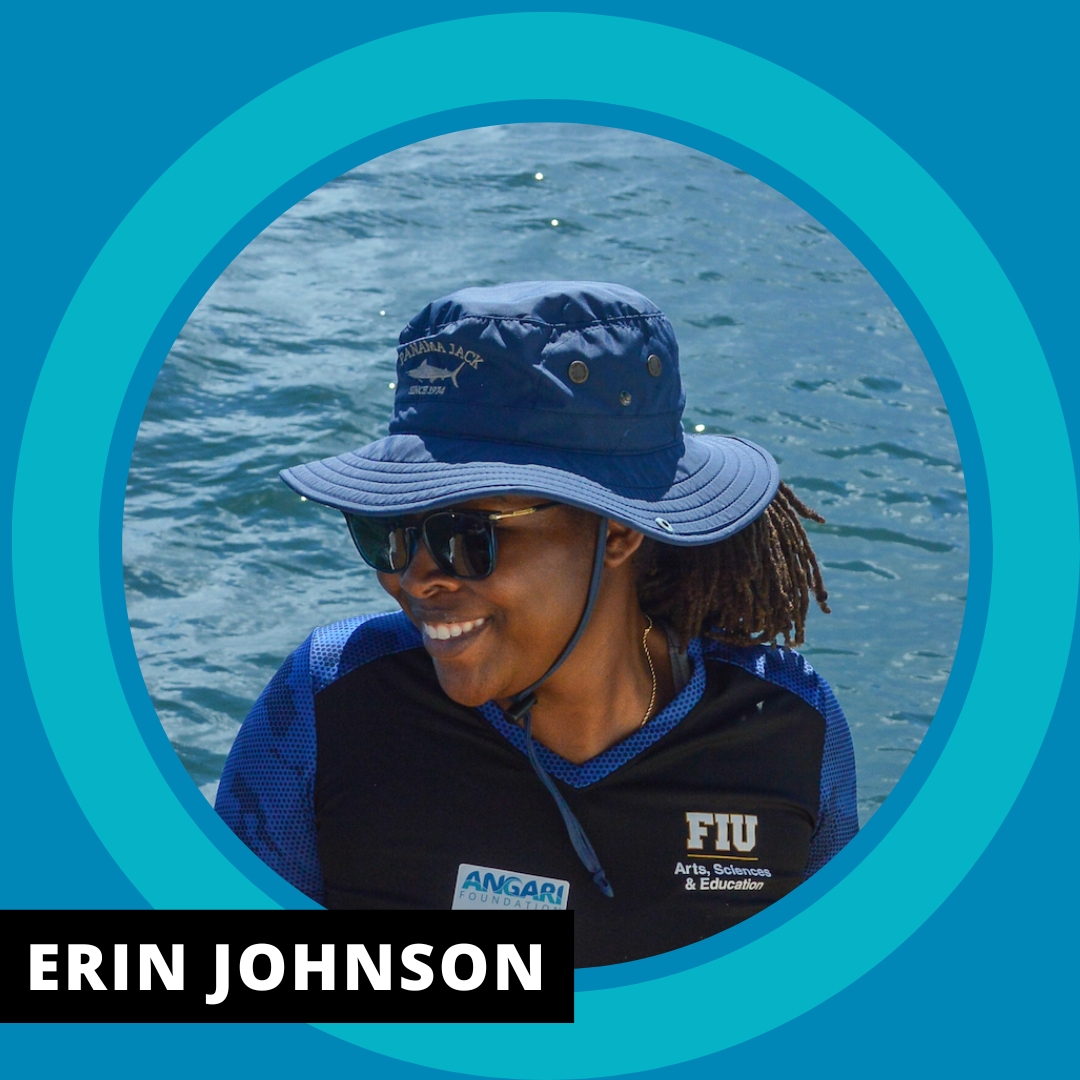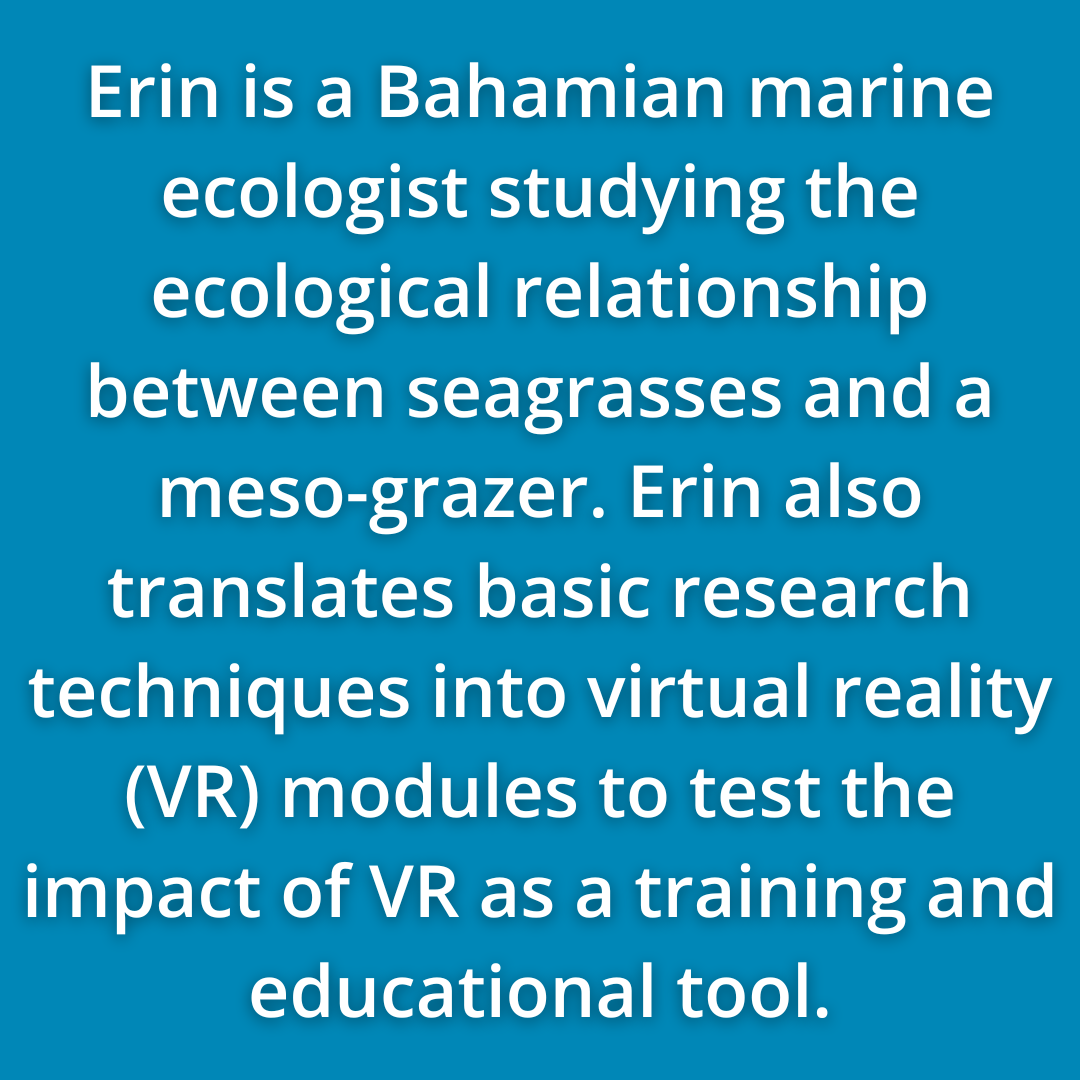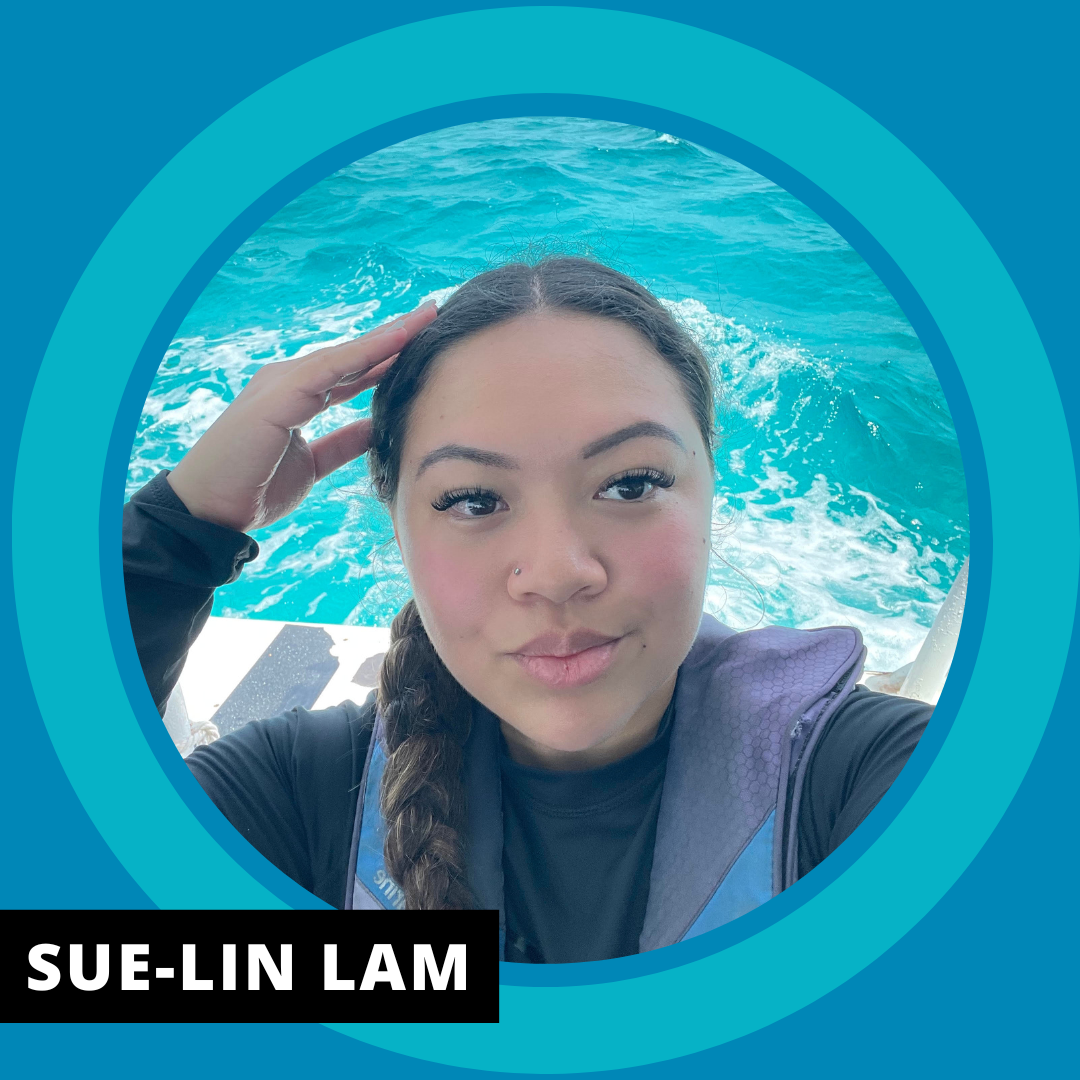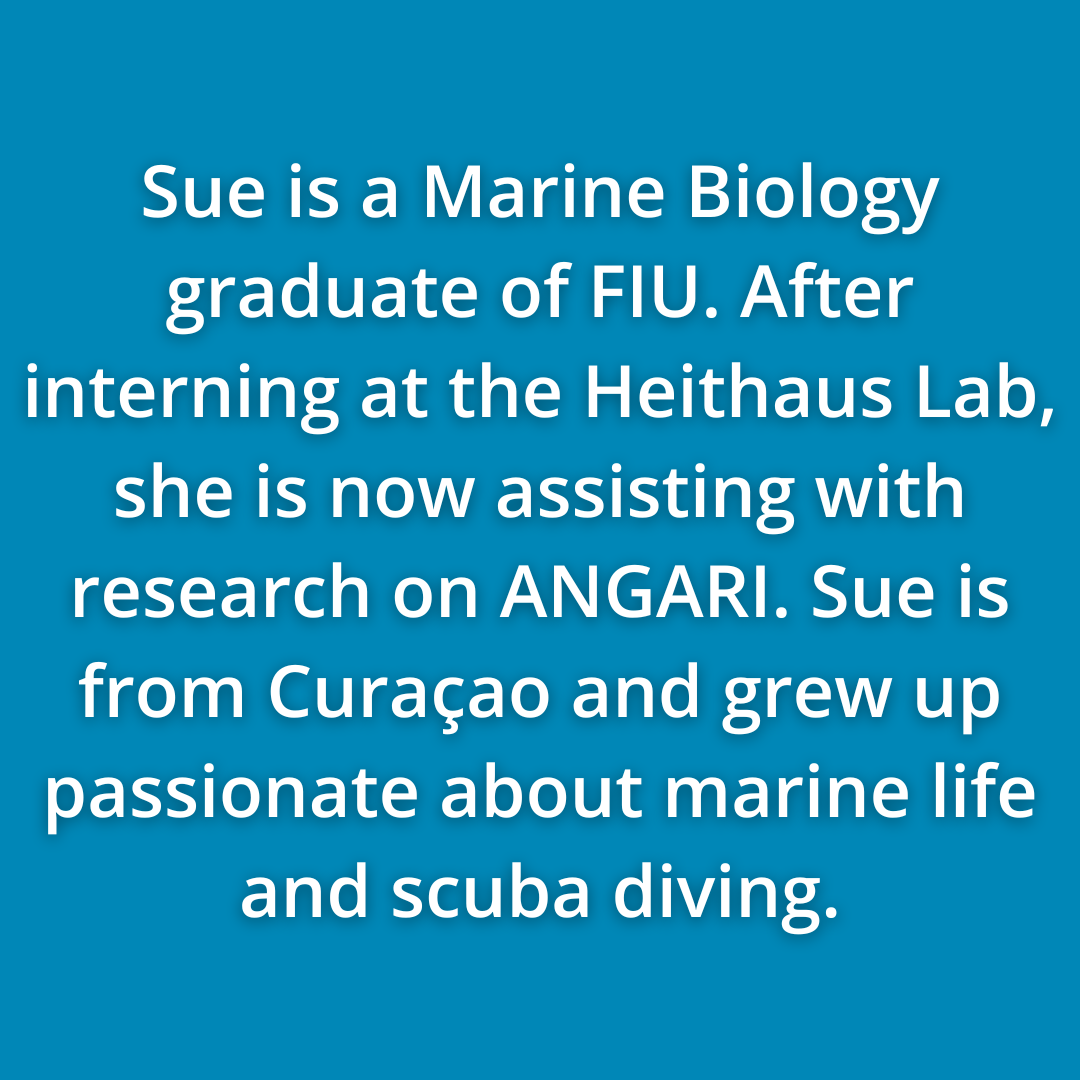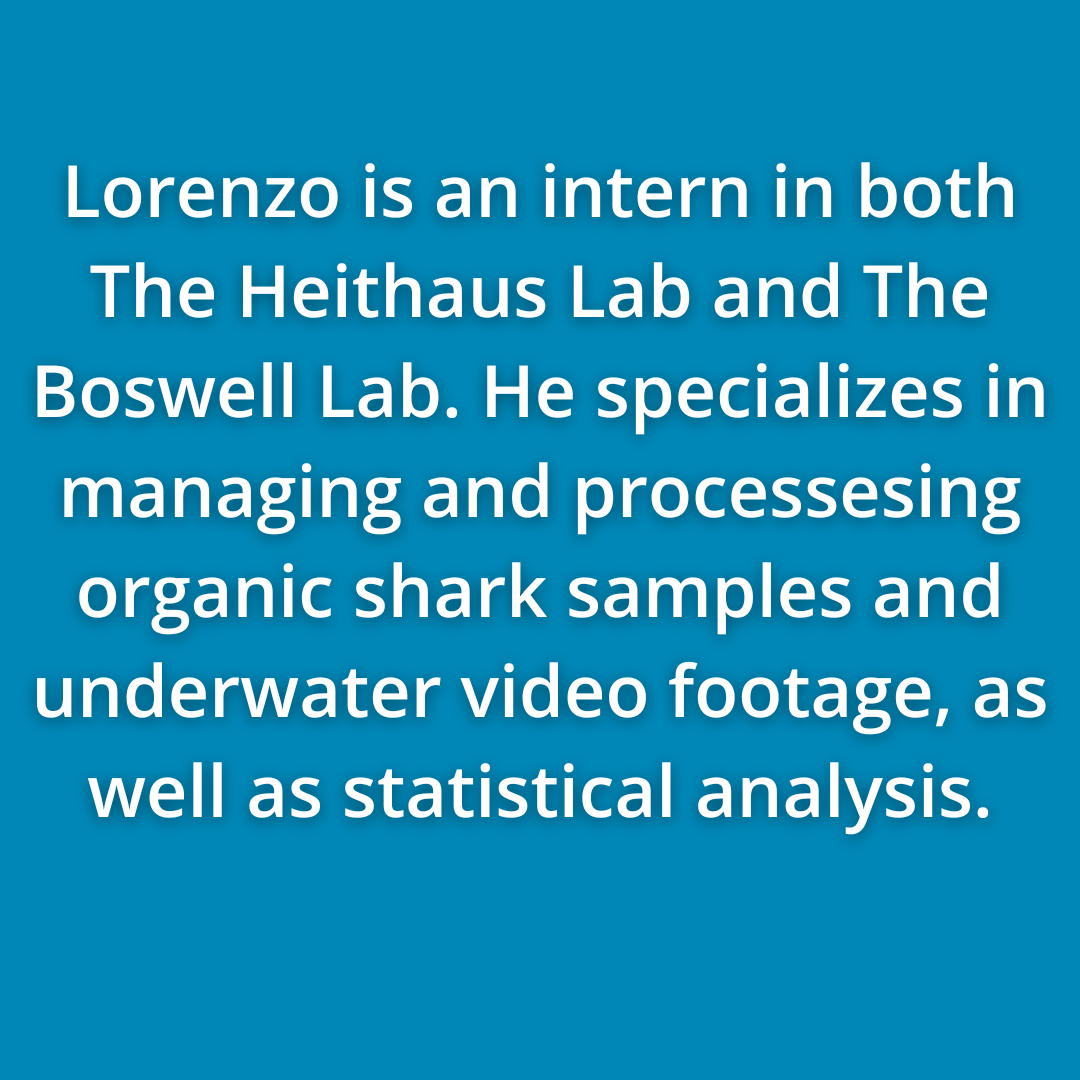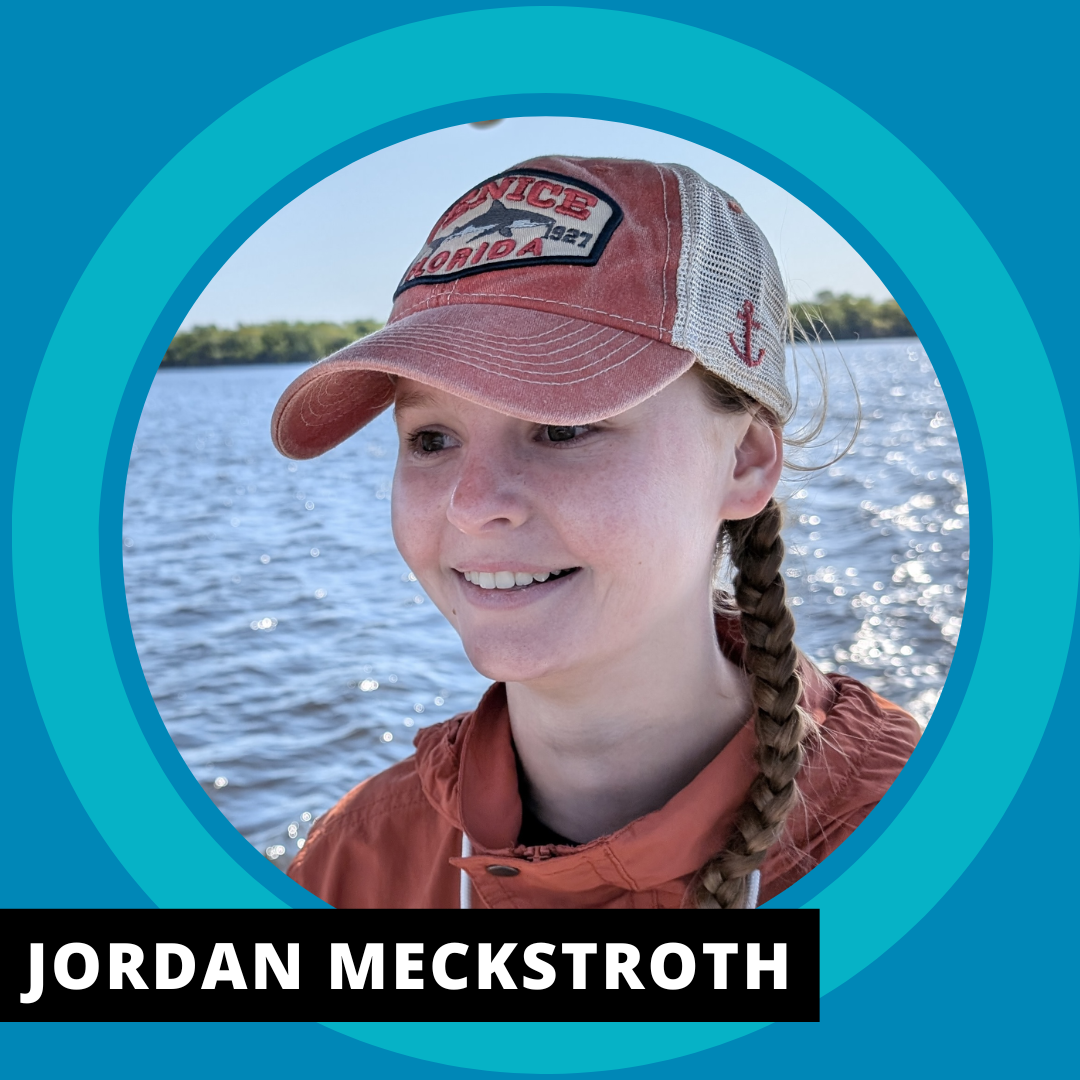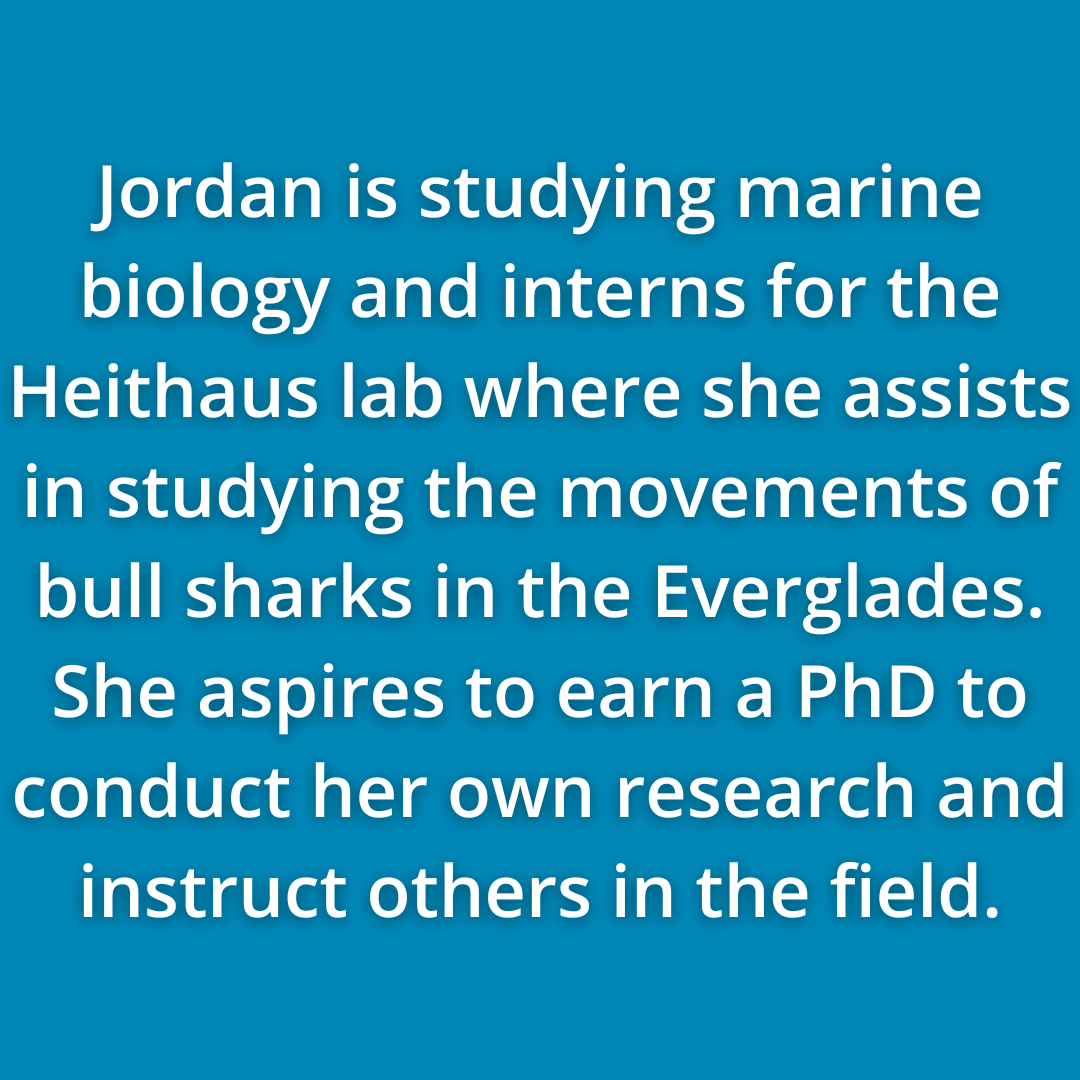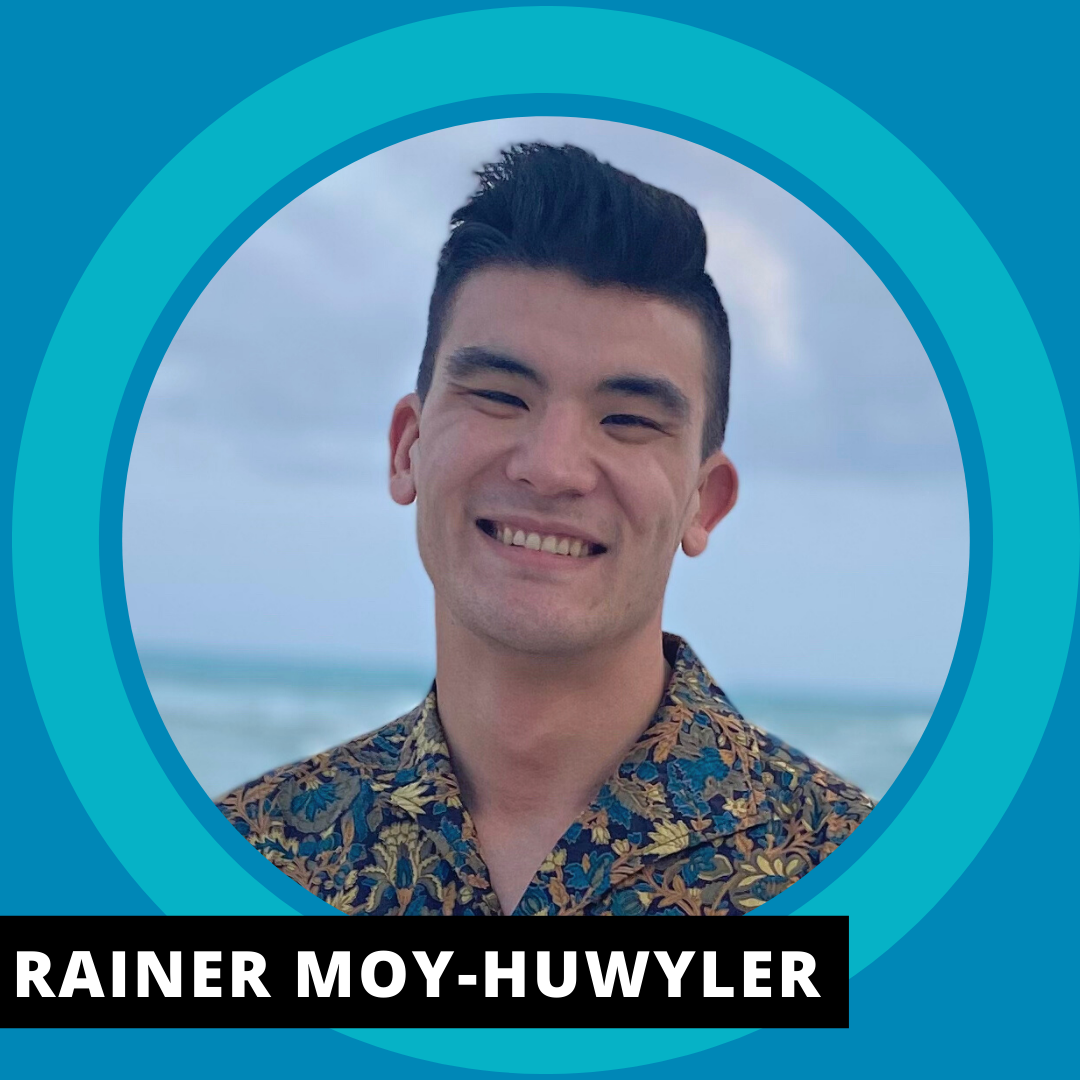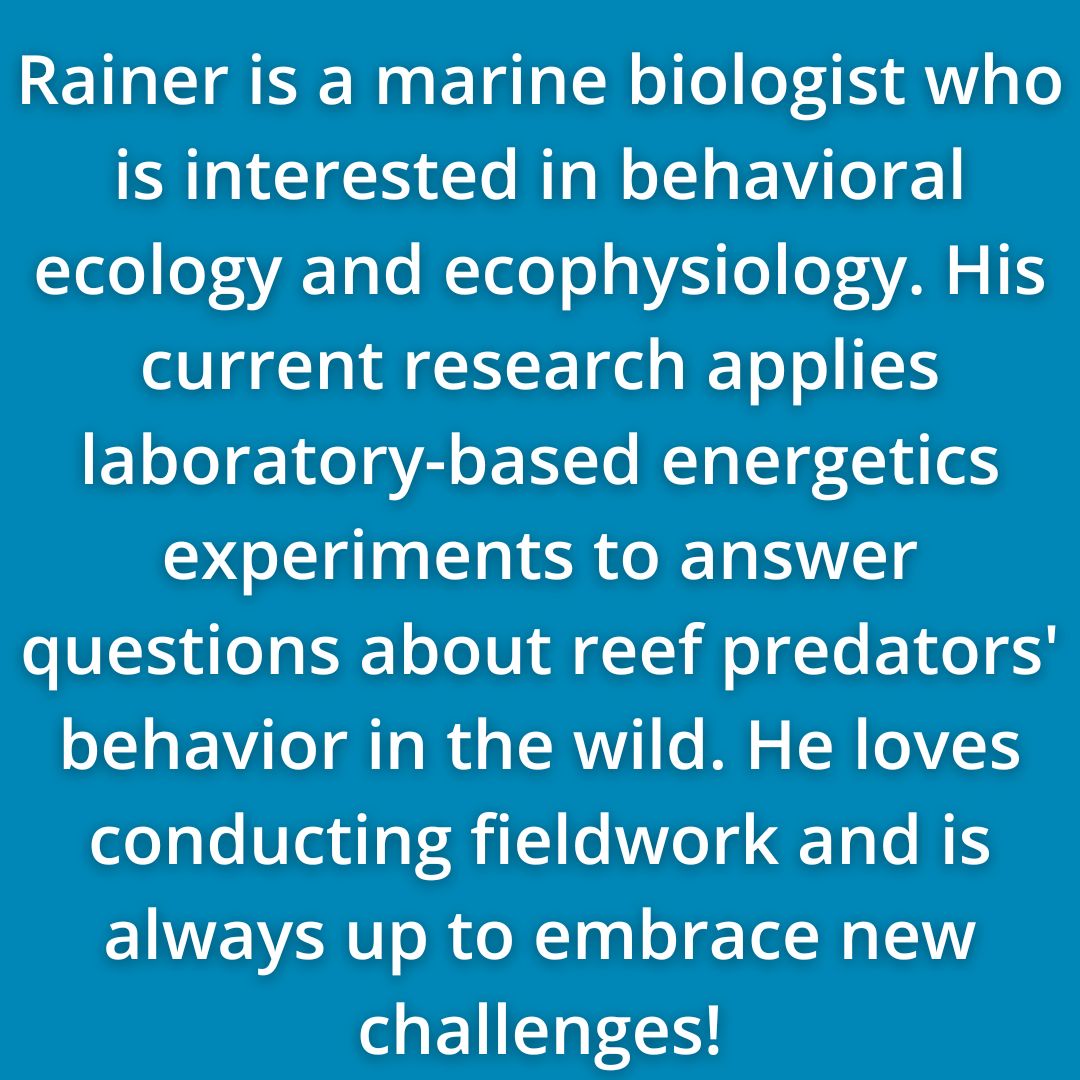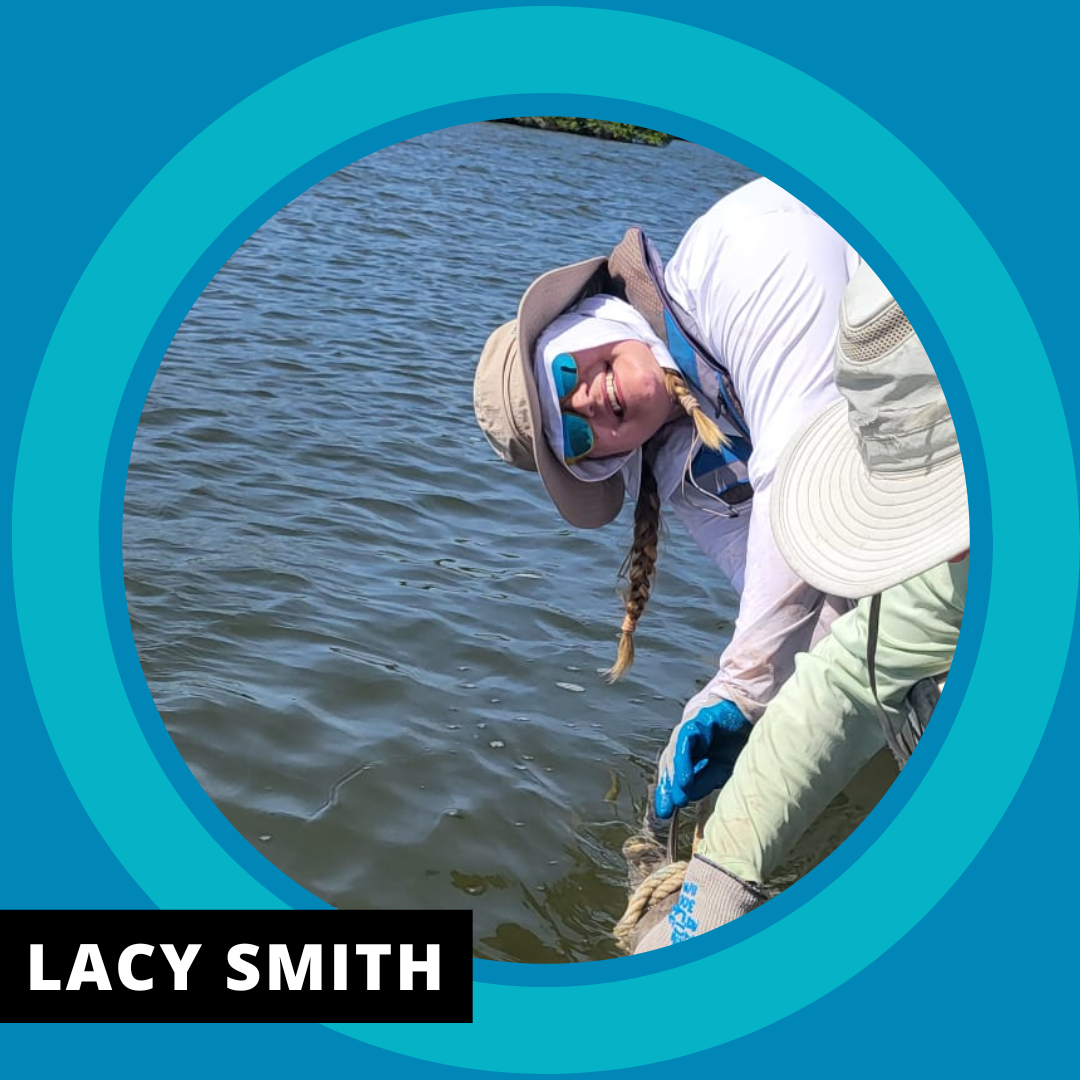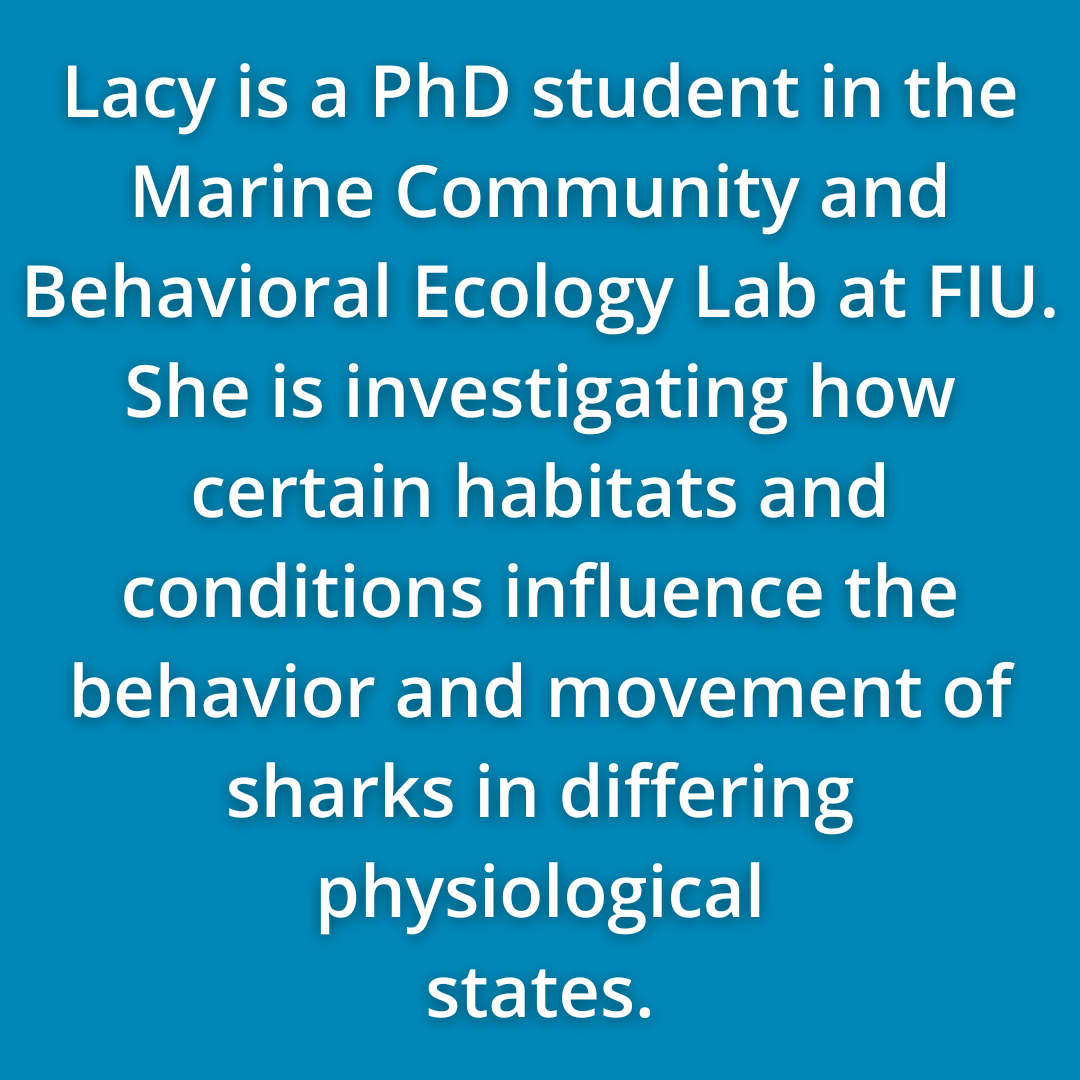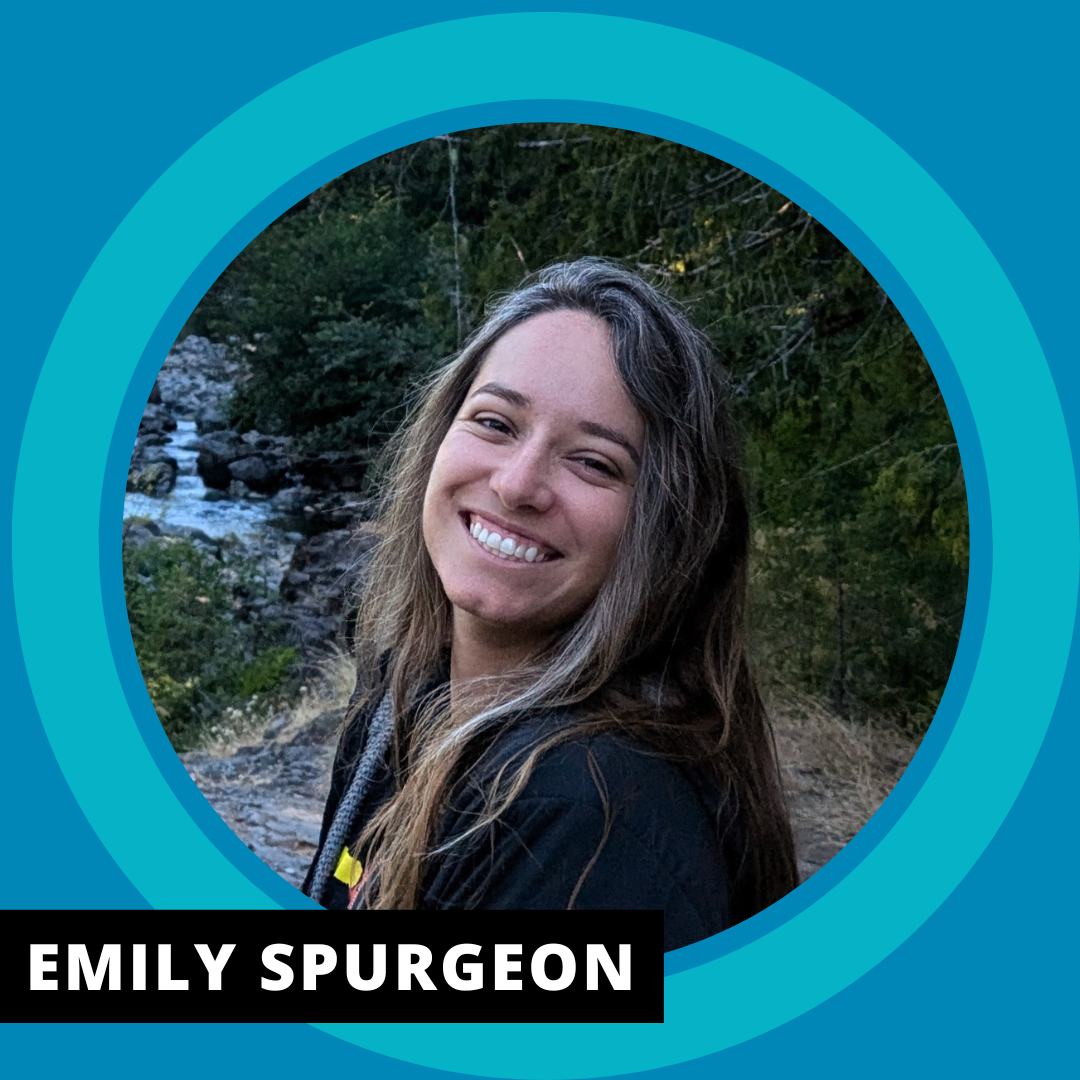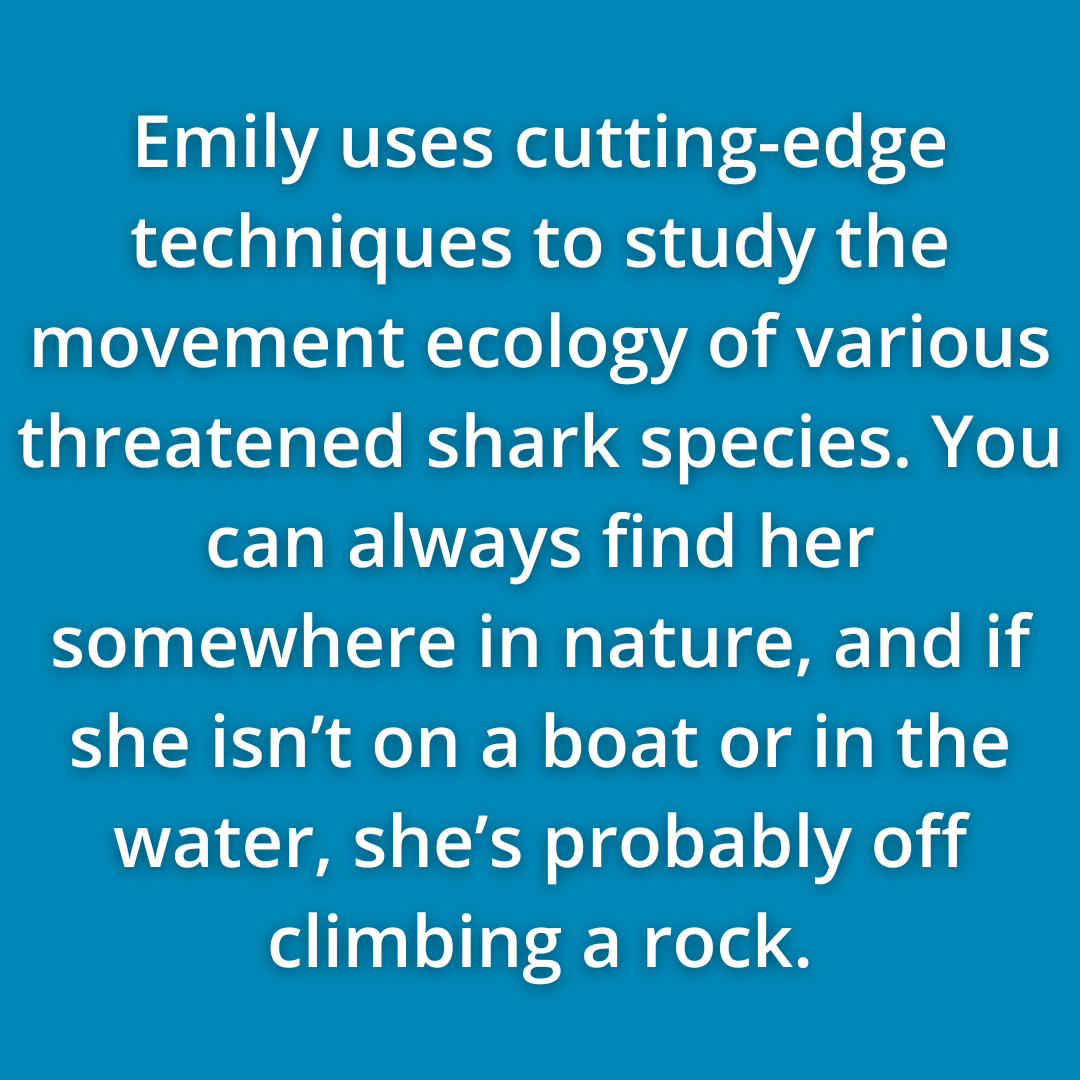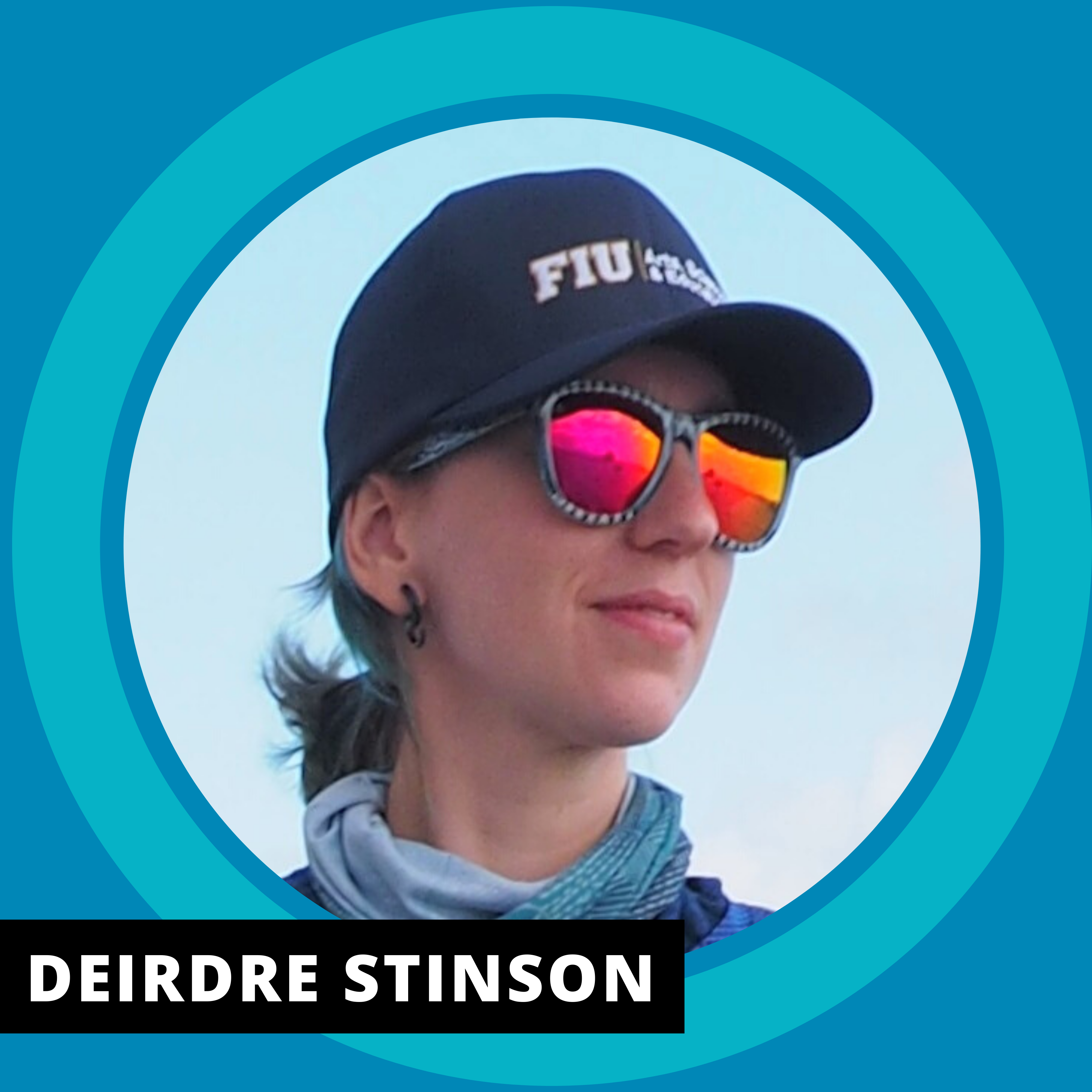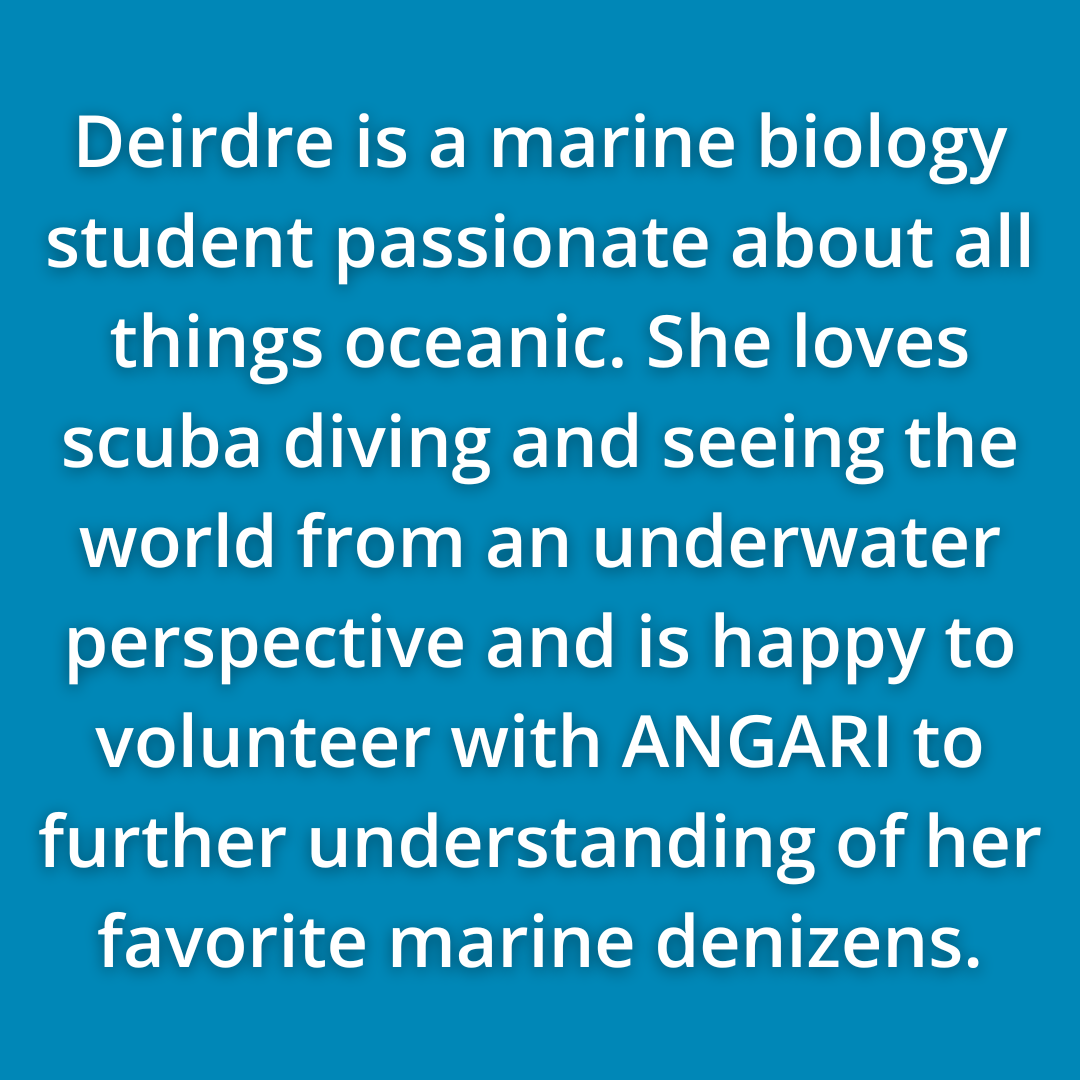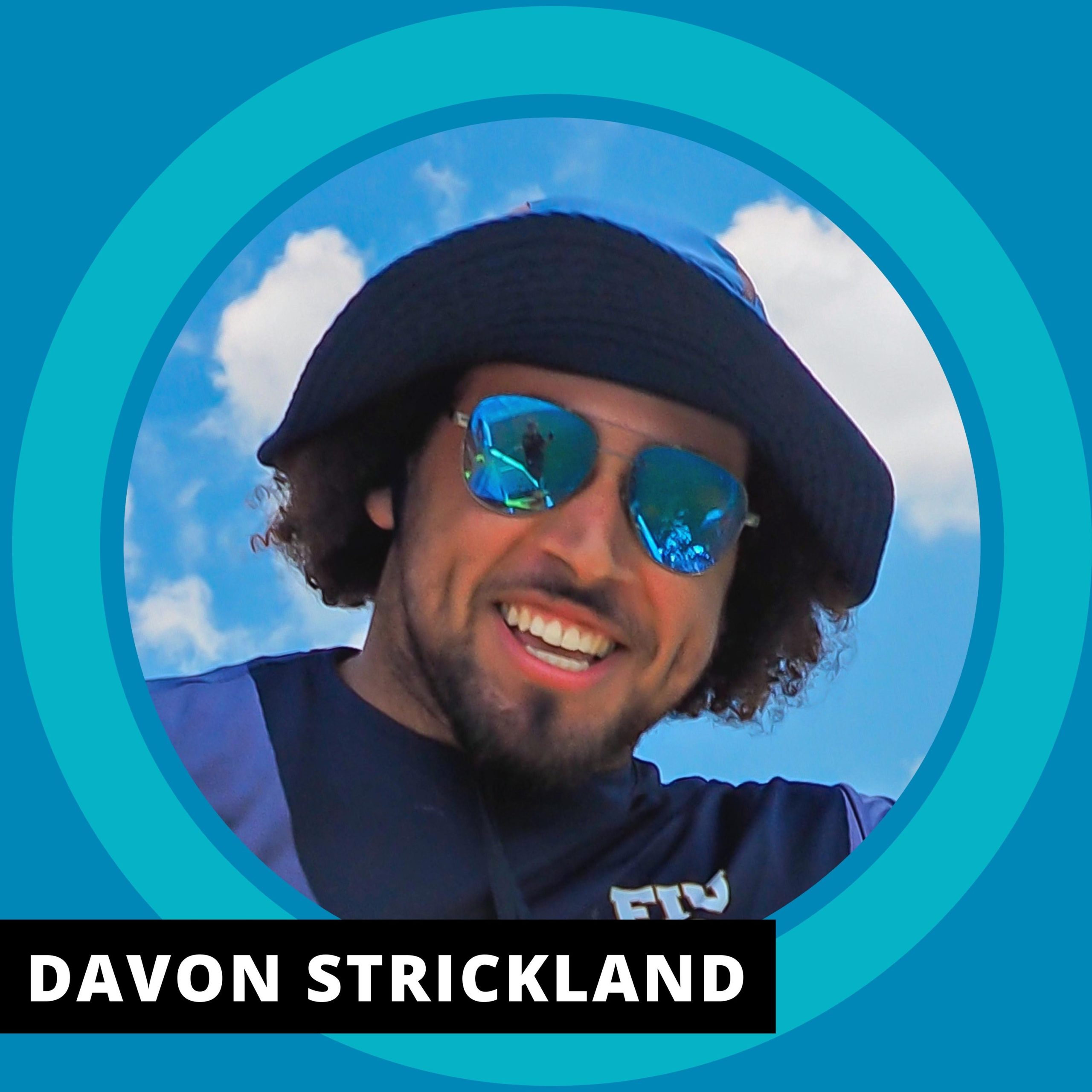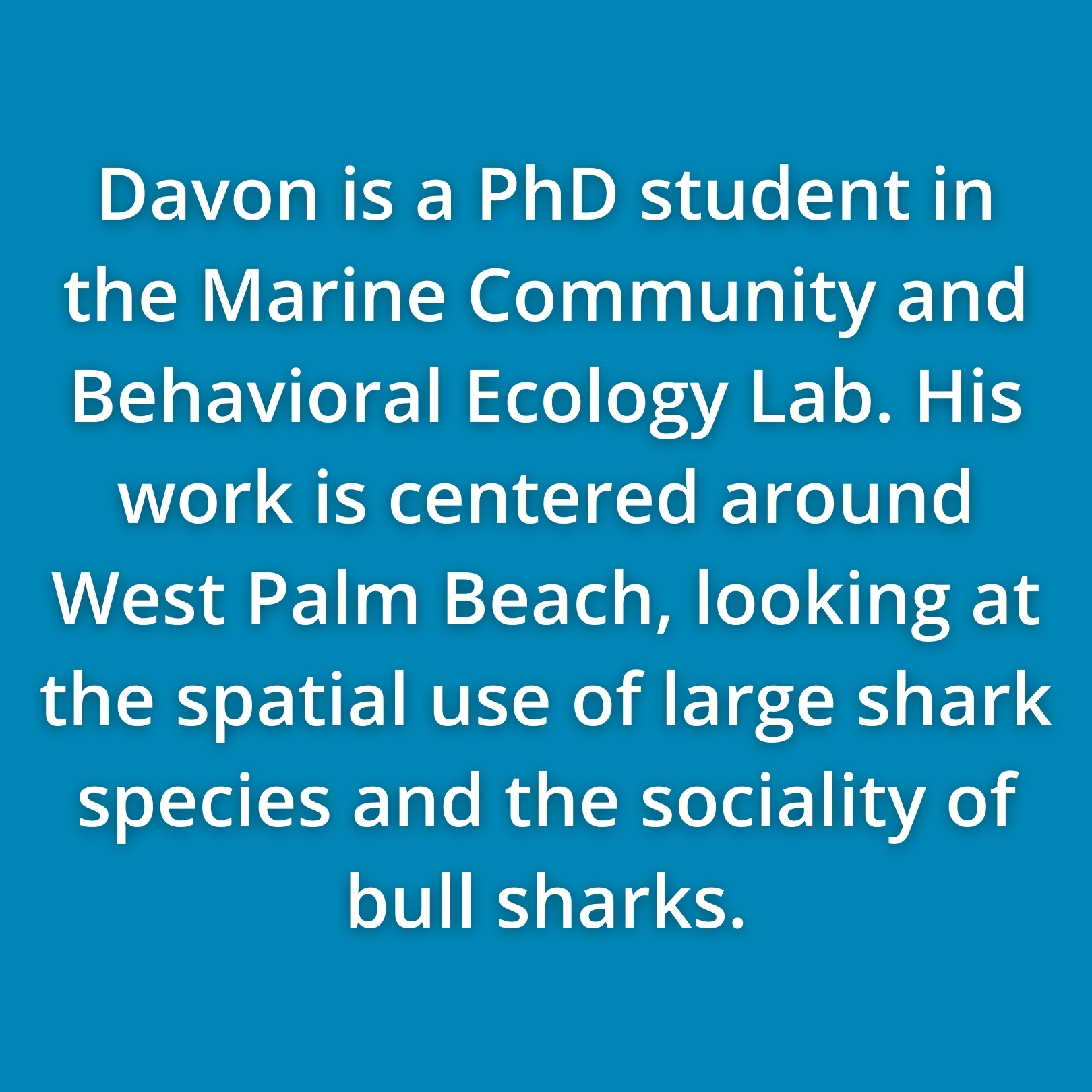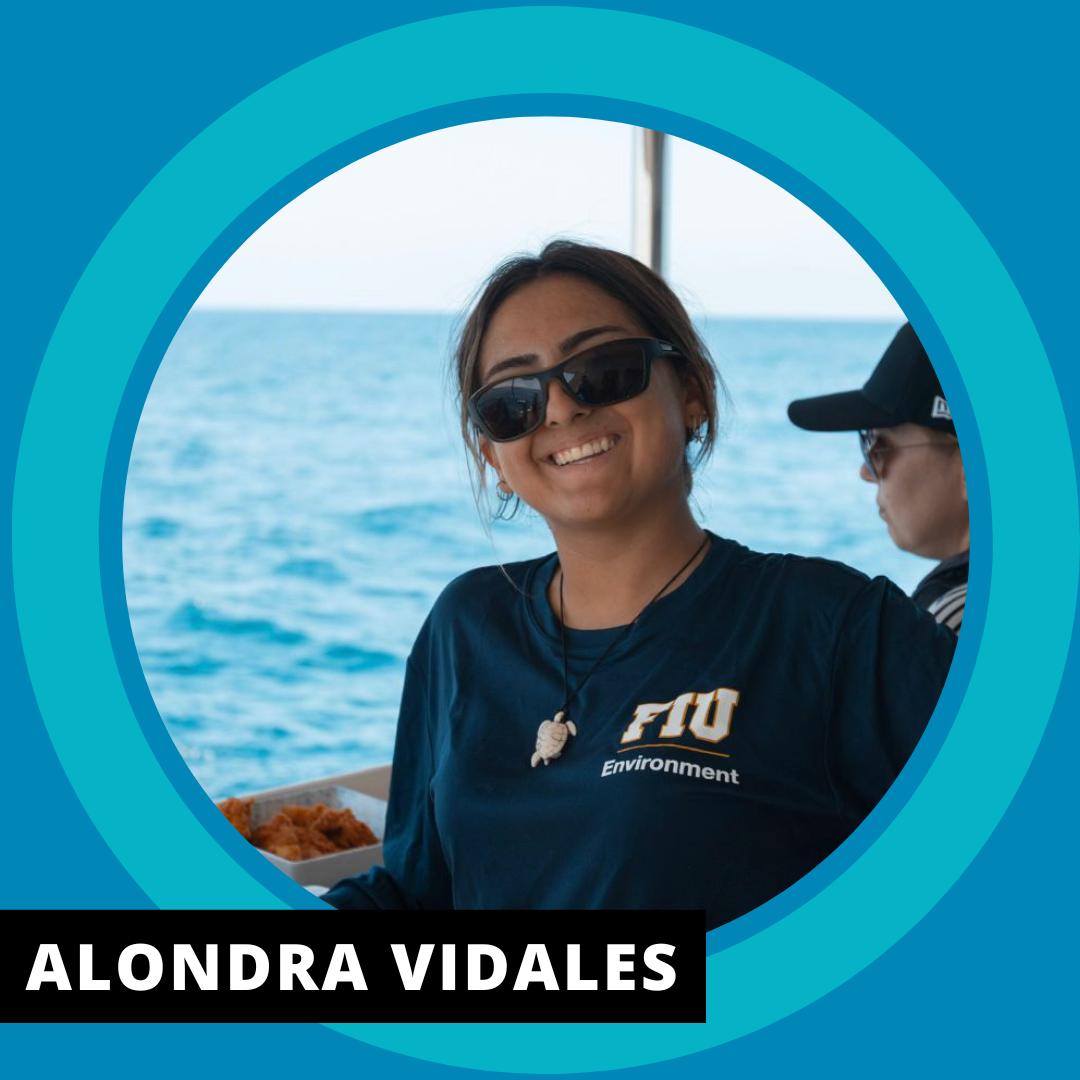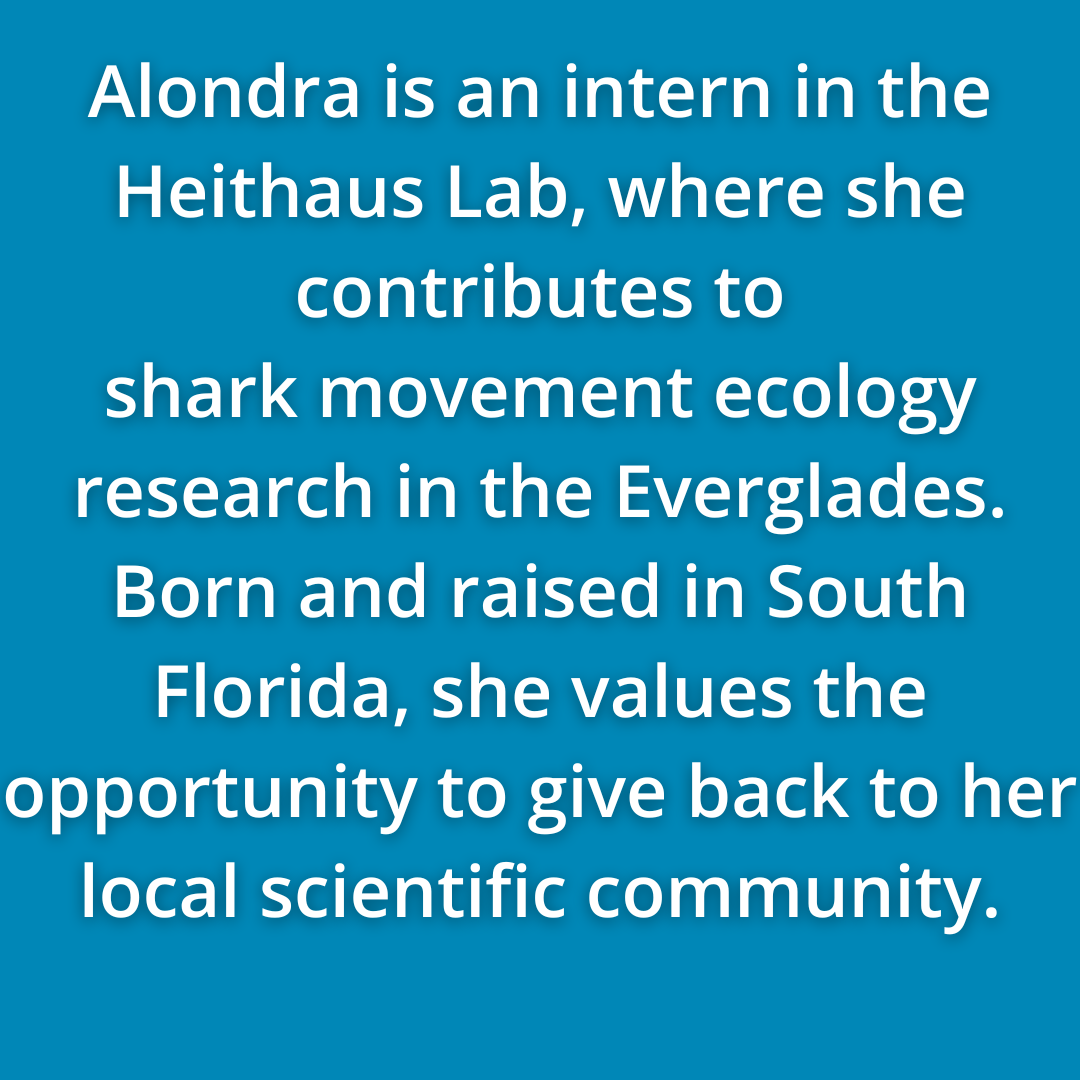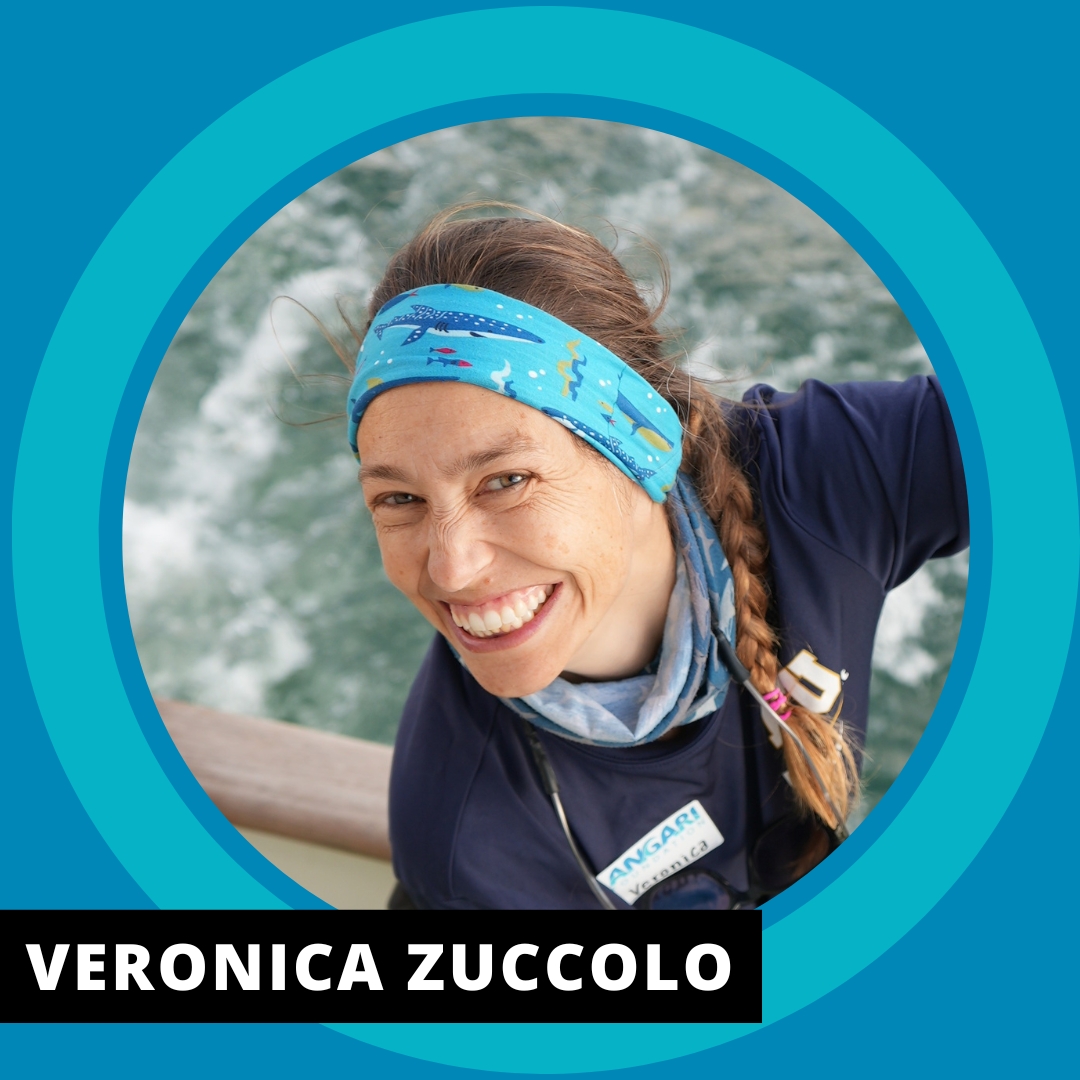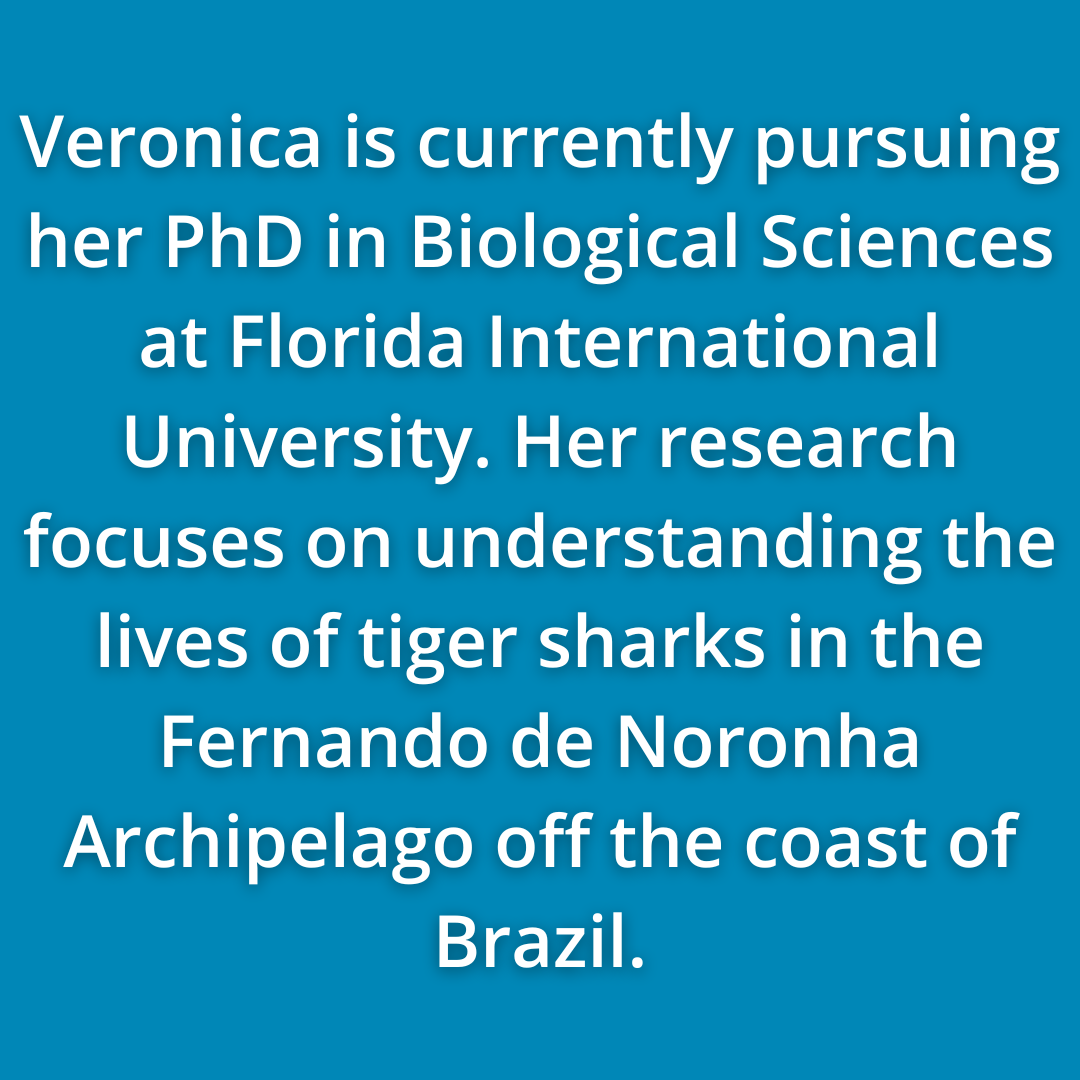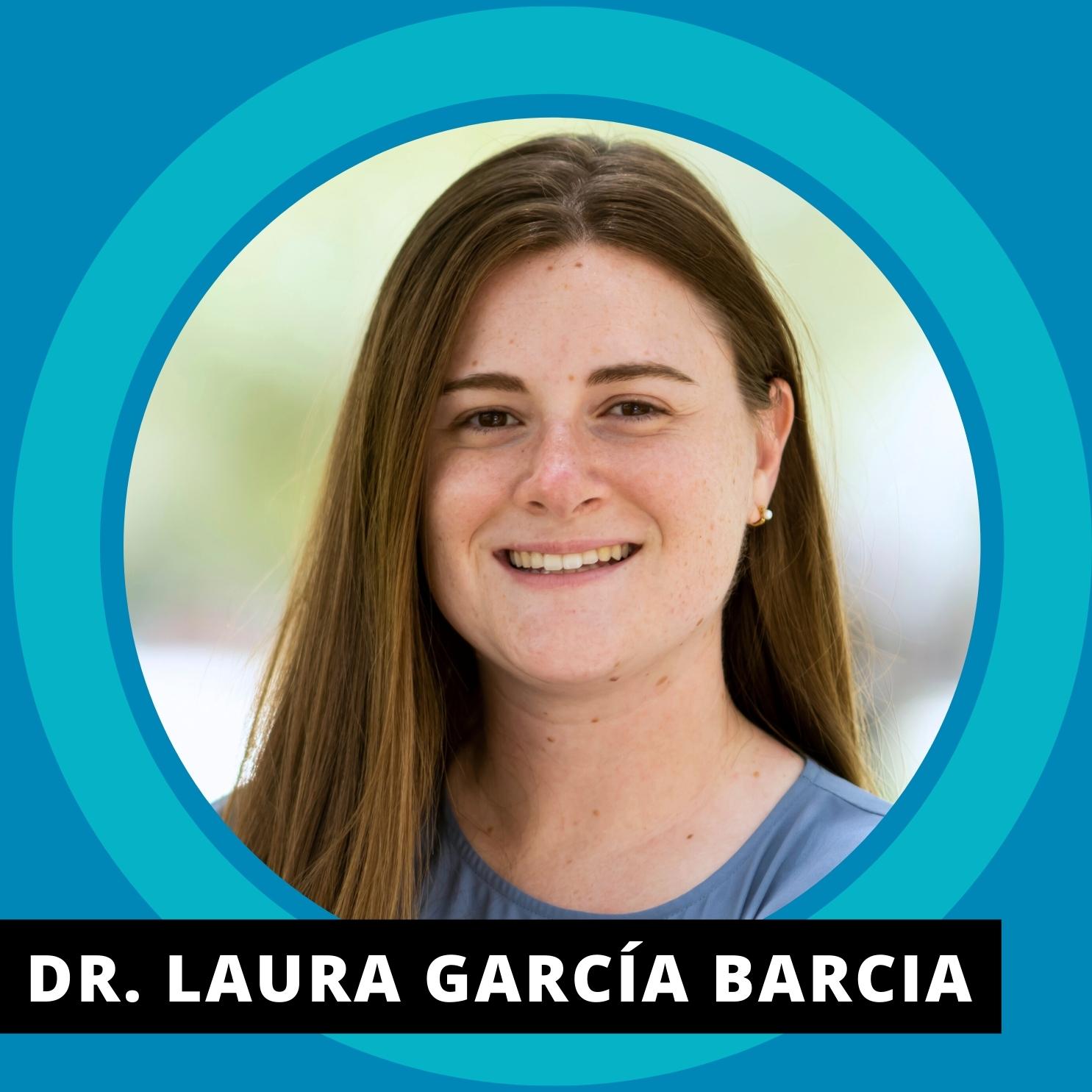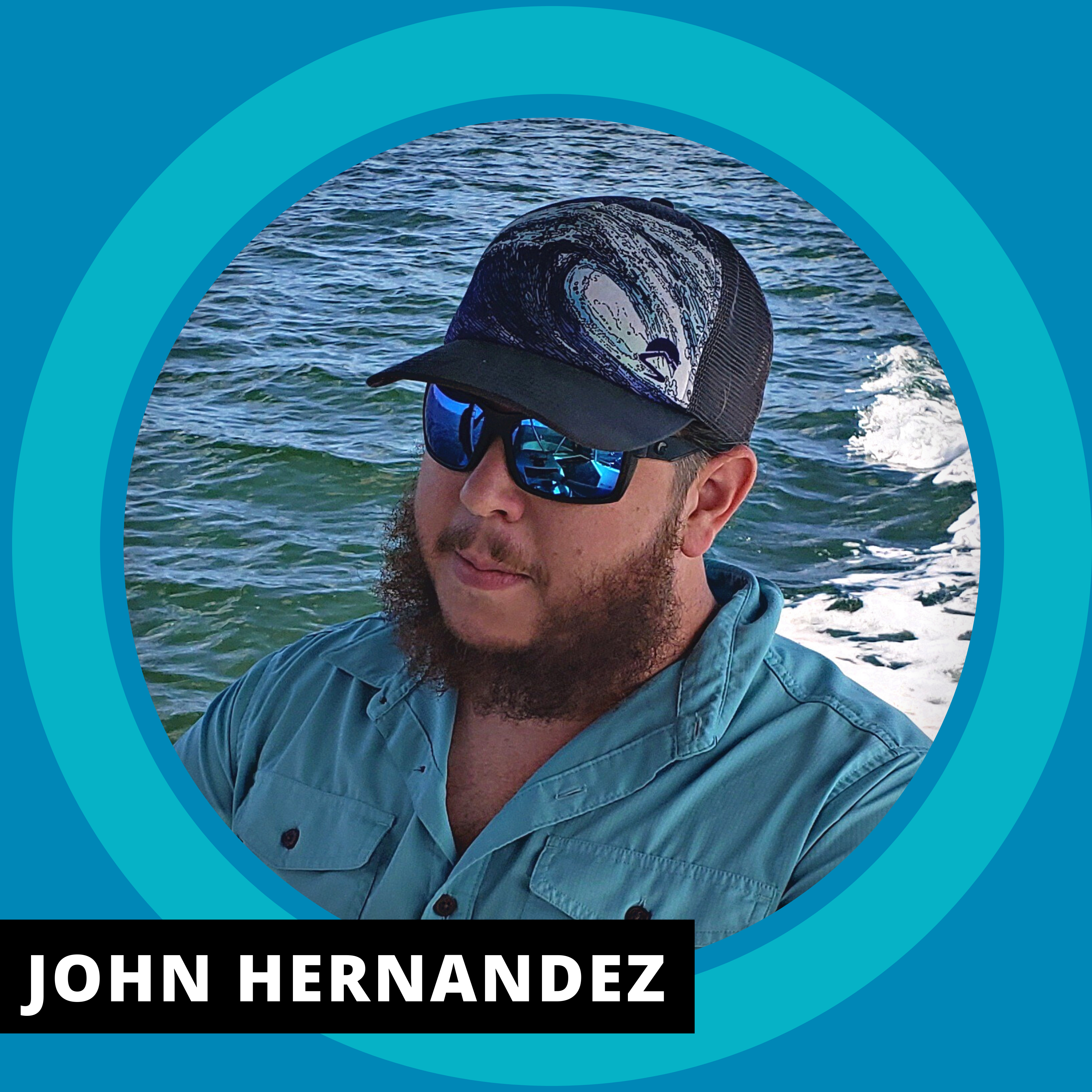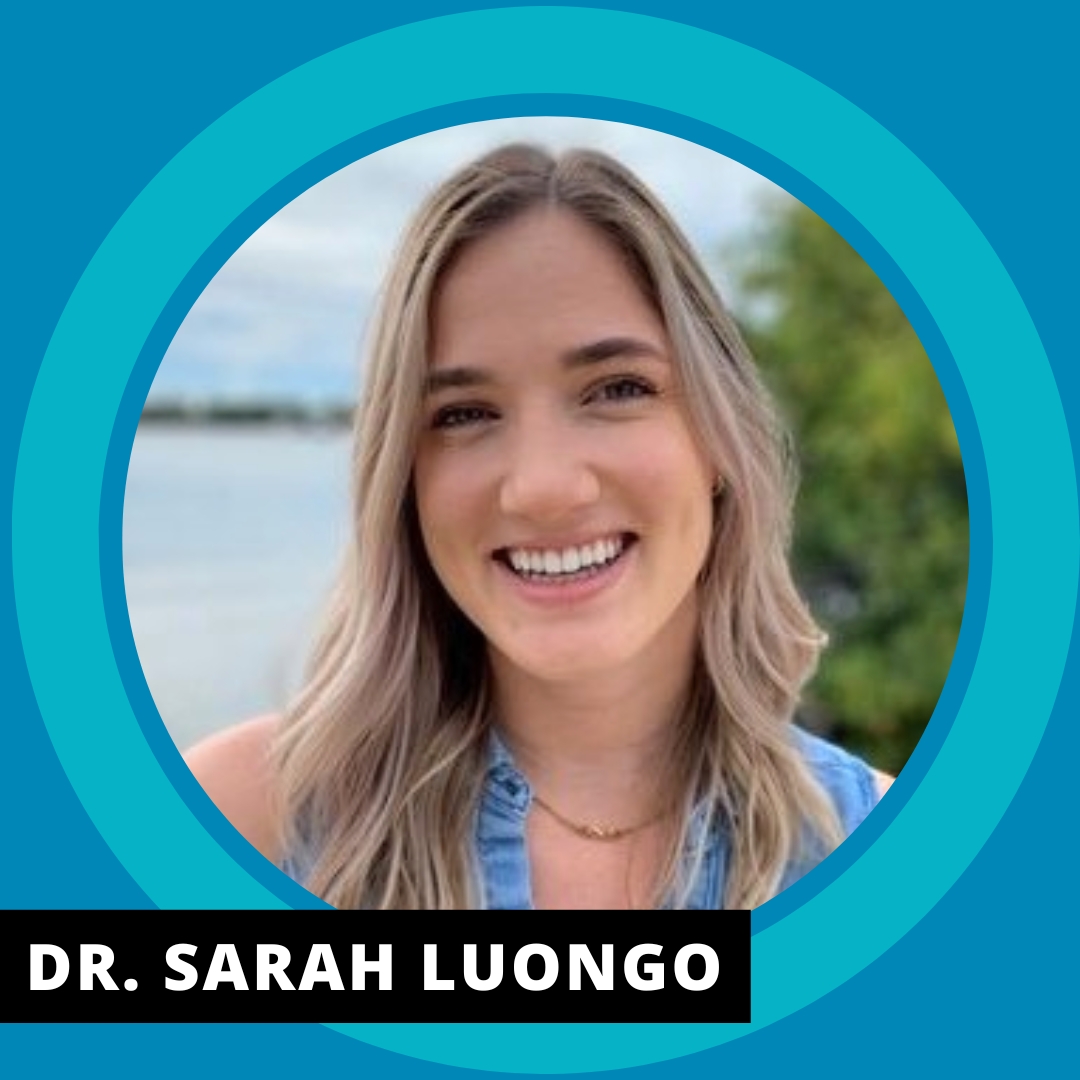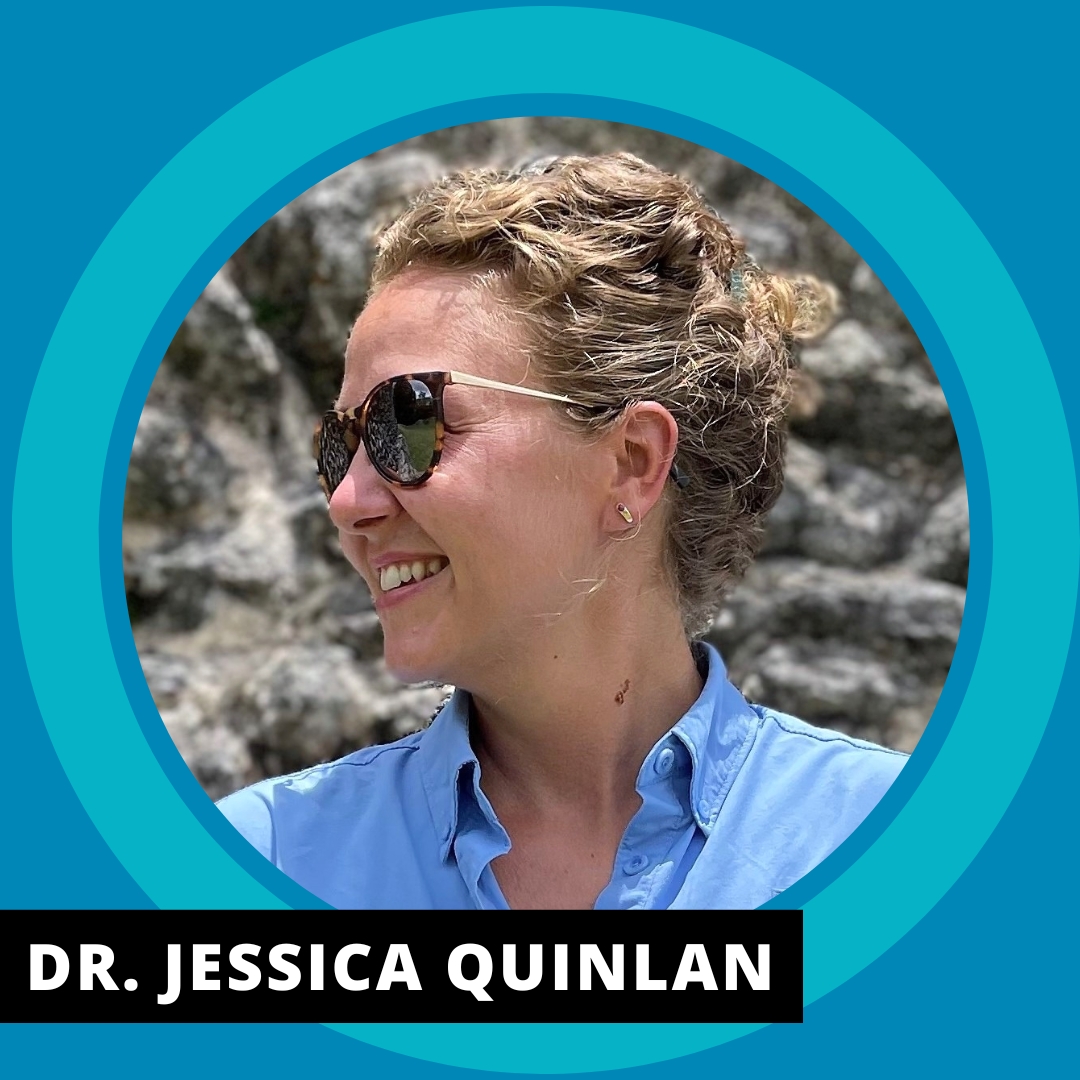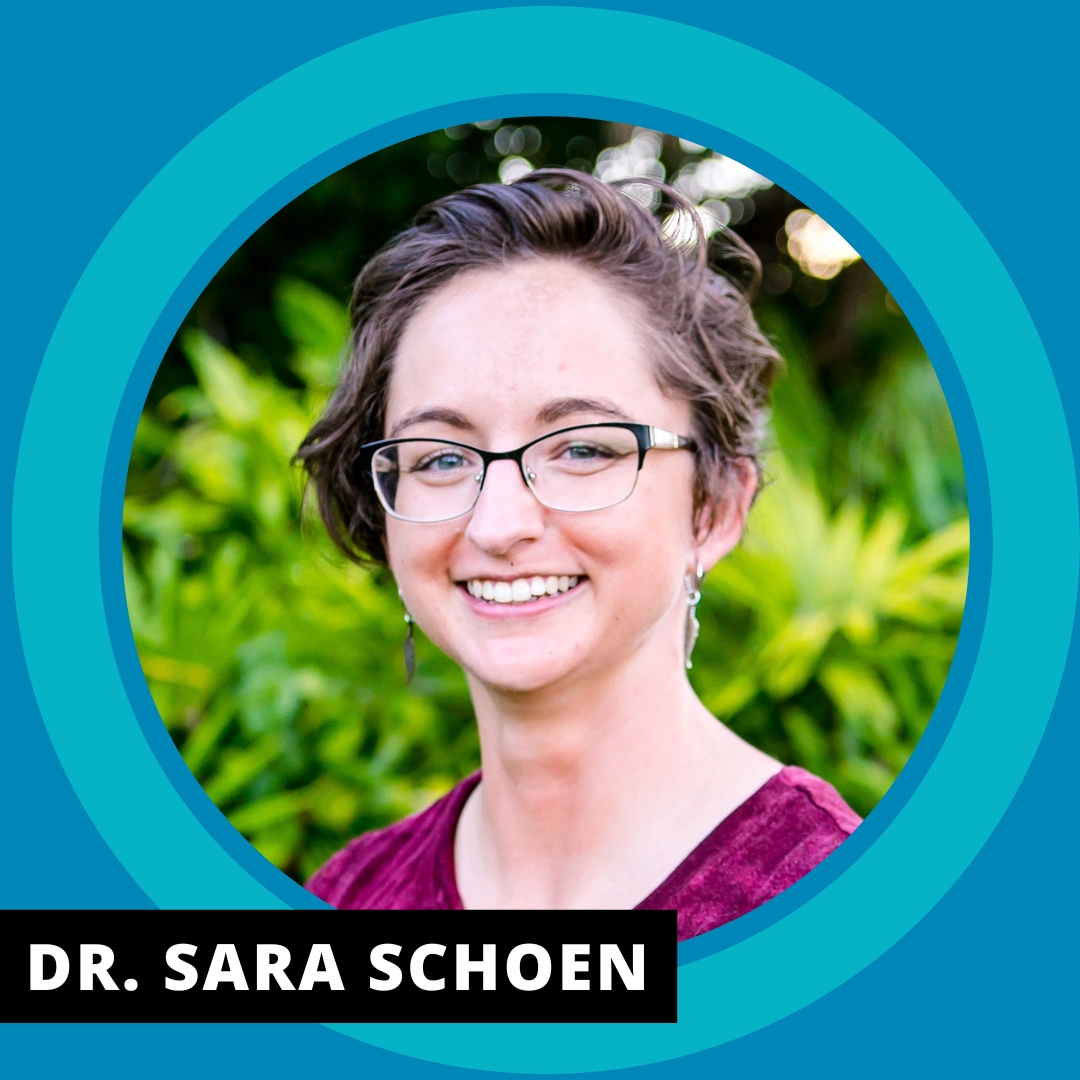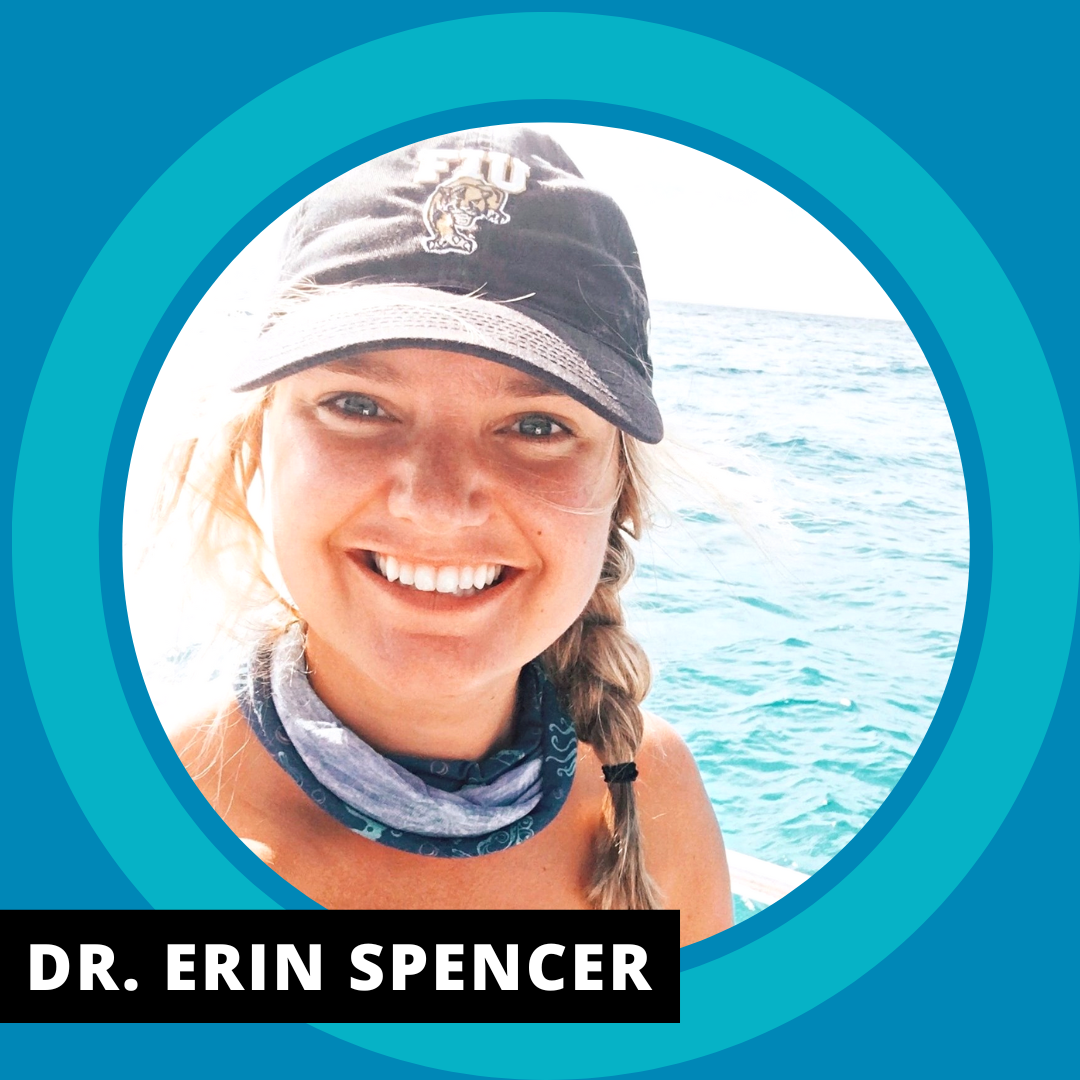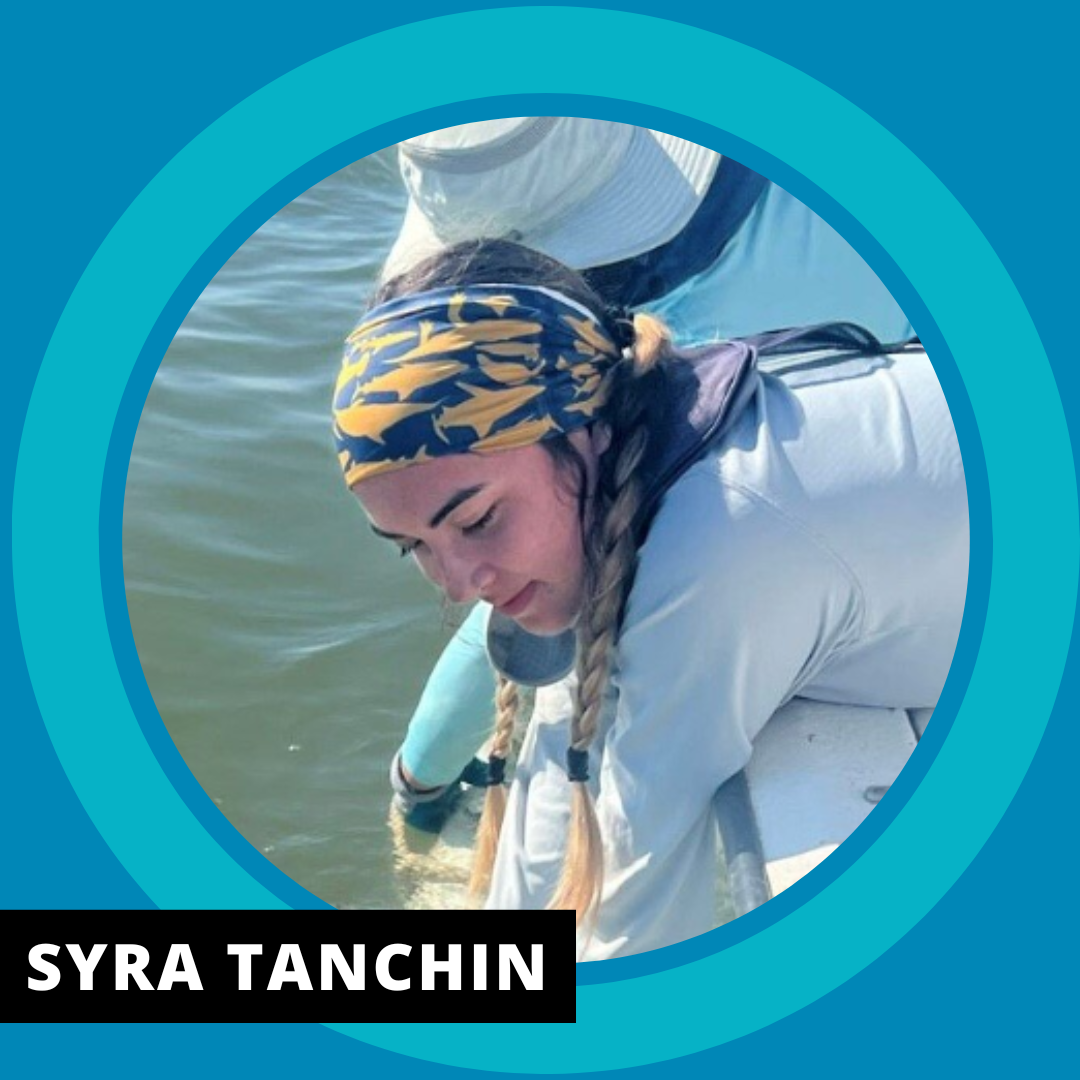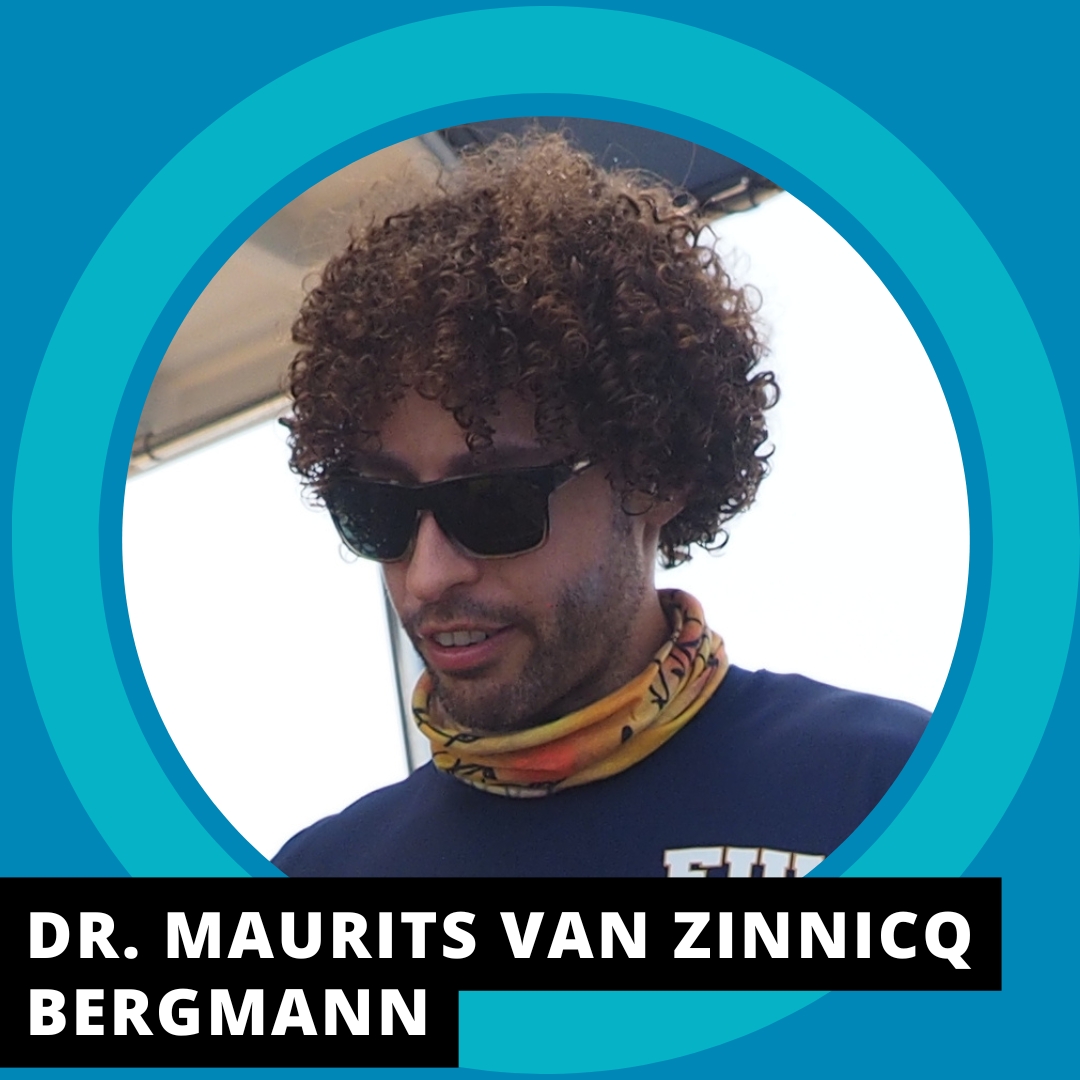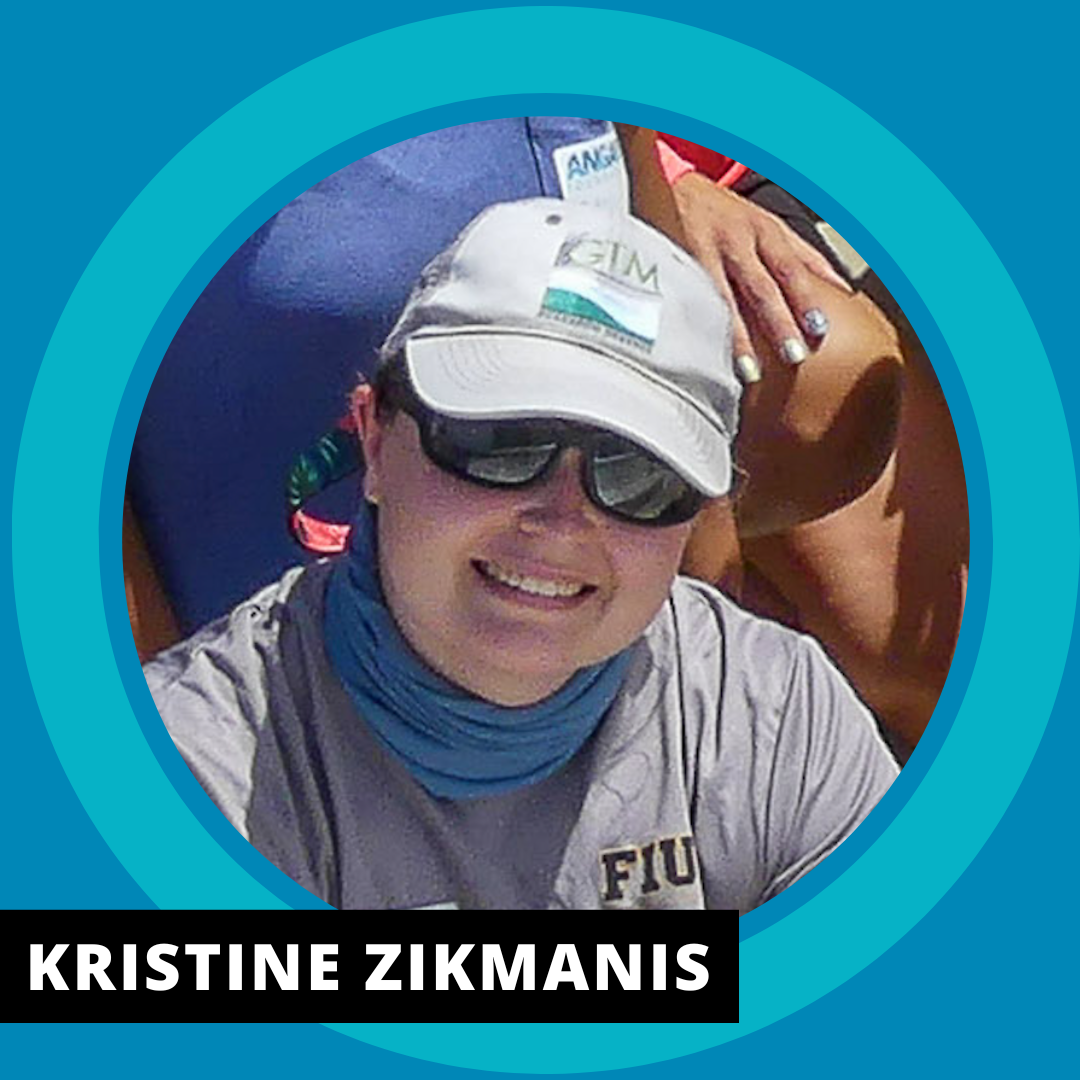Coastal Ocean Explorers: Sharks
We’re inspiring the next generation of scientists and conservationists through innovative hands-on ocean science education opportunities.
Coastal Ocean Explorers is an applied science research experience featuring expeditions on the water aboard R/V ANGARI that allow youth and educators to work directly with scientists studying our oceans and their inhabitants.


ANGARI Foundation has teamed up with researchers from Florida International University to immerse youth and educators in hands-on marine science onboard our 65-foot research vessel, R/V ANGARI. Our Coastal Ocean Explorers: Sharks program features full-day at-sea expeditions for educators and youth 12 to 18 years of age departing from Palm Beach County, Florida, as well as accompanying onshore educational programming delivered via scientist visits to schools.
Program participants receive instruction and training in relevant marine science field methods and ecological concepts before gaining firsthand experience on the water, working side-by-side with professional scientists and vessel crew to fish for, tag and collect valuable data in support of shark research and conservation. Additionally, participants gain experience with baited remote underwater video systems (BRUVS), conducting surveys in the Lake Worth Lagoon to study local marine life while practicing species identification and population assessment skills.
[All sharks were fished for, caught, studied and released for research purposes under Florida permits held by FIU scientists.]
Coastal Ocean Explorers: Sharks FAQs
Topics addressed during the expeditions are varied and range from the nature of science and practice of science, to marine biology, biodiversity, food web dynamics, bio-accumulation, human impacts on the environment and fisheries. The instructional method is informal, flexible and hands-on. Students will work alongside scientists to apply and advance their own science knowledge and skills in the field. Next Generation Sunshine State Standards targeted during expeditions may include:
- SC.6.N.1.5: Recognize that science involves creativity, not just in designing experiments, but also in creating explanations that fit evidence.
- SC.7.N.1.5: Describe the methods used in the pursuit of a scientific explanation as seen in different fields of science such as biology, geology and physics.
- SC.8.N.4.1: Explain that science is one of the processes that can be used to inform decision making at the community, state, national and international levels.
- SC.8.N.4.2: Explain how political, social, and economic concerns can affect science, and vice versa.
- SC.912.N.1.1: Define a problem based on a specific body of knowledge; pose questions, conduct systematic observations, examine books and other sources of information to see what is already known, review what is known in light of empirical evidence, plan investigations…
- SC.912.N.1.7: Recognize the role of creativity in constructing scientific questions, methods and explanations.
- SC.912.L.12.1: Discuss the characteristics of populations, such as number of individuals, age structure, density and pattern of distribution.
- SC.912.L.17.8: Recognize the consequences of the losses of biodiversity due to catastrophic events, climate changes, human activity, and the introduction of invasive, non-native species.
- SC.912.L.17.20: Predict the impact of individuals on environmental systems and examine how human lifestyles affect sustainability.
Within the Ocean Literacy Framework, the following Principles and Fundamental Concepts will be addressed:
- Principle #5 – The ocean supports a great diversity of life and ecosystems.
d. Ocean biology provides many unique examples of life cycles, adaptations and important relationships among organisms (symbiosis, predator-prey dynamics, and energy transfer) that do not occur on land.
e. The ocean provides a vast living space with diverse and unique ecosystems from the surface through the water column and down to, and below, the seafloor. Most of the living space on Earth is in the ocean.
f. Ocean ecosystems are defined by environmental factors and the community of organisms living there. Ocean life is not evenly distributed through time or space due to differences in abiotic factors such as oxygen, salinity, temperature, pH, light, nutrients, pressure, substrate and circulation. A few regions of the ocean support the most abundant life on Earth, while most of the ocean does not support much life. - Principle #6 – The ocean and humans are inextricably interconnected) will be addressed during Coastal Ocean Explorers programming.
b. The ocean provides foods, medicines, and mineral and energy resources. It supports jobs and national economies, serves as a highway for transportation of goods and people, and plays a role in national security.
c. The ocean is a source of inspiration, recreation, rejuvenation and discovery. It is also an important element in the heritage of many cultures.
d. Humans affect the ocean in a variety of ways. Laws, regulations and resource management affect what is taken out and put into the ocean. Human development and activity leads to pollution (point source, non-point source, and noise pollution), changes to ocean chemistry (ocean acidification) and physical modifications (changes to beaches, shores and rivers). In addition, humans have removed most of the large vertebrates from the ocean.
g. Everyone is responsible for caring for the ocean. The ocean sustains life on Earth and humans must live in ways that sustain the ocean. Individual and collective actions are needed to effectively manage ocean resources for all.
Absolutely! While most groups participating in Coastal Ocean Explorers: Sharks are local to South Florida and within short driving distance, educators from any school or organization within the United States may apply. Please note, however, that we cannot support travel or transportation expenses. Additionally, available funding to support expeditions is generally reserved for schools in and around Palm Beach County.
We recommend that anyone subject to motion sickness or concerned about seasickness speak with their physician to acquire the appropriate over the counter or prescription medicine ahead of the expedition. Whenever wave conditions are determined to be uncomfortable for shark research offshore, the expedition takes place in the protected waters of the Lake Worth Lagoon. Group leaders may request in advance that the expedition location be planned for the Lake Worth Lagoon, no matter the offshore conditions, if they so choose.
If approved for an expedition, you will be asked to submit a final passenger list with copies of all signed forms a minimum of 14 days prior to the expedition. Each participant (and a parent or guardian for those under 18) will need to sign off on our R/V ANGARI Expedition Code of Conduct, Appearance and Liability Releases. Failure to submit completed forms by the stated deadline may result in forfeit of the expedition.
- Hat, sunglasses, sunscreen, etc. to protect you from the sun
- Reusable water bottle
- Rubber soled, closed toe shoes you do not mind getting wet or dirty
- Clothing you do not mind getting wet or dirty, including a sweater, windbreaker and/or raincoat
- Hair tie or other accessory to secure longer hair
- Small bag or backpack for all your gear
- Any medications you may need
As with all R/V ANGARI expeditions, the health and safety of our crew, scientists and participants are our priority. During Coastal Ocean Explorers expeditions:
- If you are not feeling well, it is strongly recommended that you do not participate in the expedition or wear a facial covering while onboard to prevent exposing others to any illness.
- Masks are no longer required to be worn onboard; however, anyone who would like to wear a mask is welcome to and additional masks are available onboard for any participants who require one.
- Hand soap and sanitizer are readily available onboard. Everyone is expected to wash their hands with soap and warm water before and after working with the Scientists.
Yes, we encourage you to create a wait list so that another youth and/or chaperone (with completed paperwork) is ready to take the place of one who may be unable to make it due to unforeseen circumstances. The final passenger list with any planned alternates must be submitted no later than 14 days prior to expedition. Failure to submit your final passenger list by the deadline may result in forfeit of the expedition.
In cases of severe weather or sea conditions that make it unsafe to conduct research offshore, the expedition will continue inshore using the same hands-on research methods within Lake Worth Lagoon. The offshore-inshore decision will be made day of by the Captain based on current weather and safe operating conditions.
Expeditions will only be cancelled when both the ocean and the Lake Worth Lagoon waters become too rough to allow a safe and effective trip. In this case, the group leader or teacher would be notified of the cancellation, and they will notify your group. In certain cases, an expedition may be delayed or end early due to developing unsafe weather conditions, and these calls will be made day of as necessary for safety. There will be no rescheduling in the event of an expedition that is cut short due to weather.
Specialized research fishing gear, known as a drumline, is used to fish for sharks during our expeditions. Drumlines consist of a single, baited circle hook attached to monofilament that is connected via swivel to a heavy weight sitting on the seafloor. The drumline location is marked with a line and float that makes it easy to spot on the water’s surface and recover by boat. The drumline configuration allows sharks to continue swimming in a large circle around the rig once hooked. Hooks are checked every 45 minutes, and drumlines are recovered when fishing is completed for the day.
For baited remote underwater video system (BRUVS) surveys, the same type of bait used for drumline fishing is placed in a small bait cage at the end of an arm attached to the BRUVS frame. A GoPro camera is set up to record activity around the BRUVS during deployment. A BRUVS survey consists of lowering the apparatus down to rest on the seafloor for approximately 1 hour before being recovered. The BRUVS is marked with a line and float that makes it easy to monitor from a nearby vessel while deployed.
All drumline fishing and BRUVS surveys for Coastal Ocean Explorers: Sharks related research are conducted under Florida permits held by Florida International University scientists. Chum is never used to attract sharks, and survey and fishing gear are recovered at the end of an expedition.

